Principal’s Message
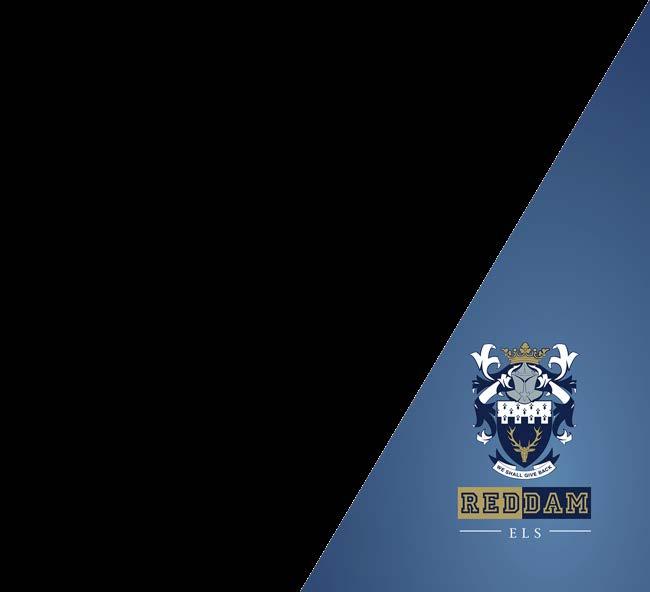
Dear Parents,
Central to the Reggio Emilia inspired approach to learning that we follow here at Reddam is our focus on collaboration and cooperation, which is used intentionally to promote connections with others. Encouraging children to work together on in depth projects allows children to engage in shared decision making, which gives them ownership and responsibility over their learning. Working in both small and large groups allows children to work together to problem-solve and engage in conversations that require negotiation so that children can be active participants in their learning.
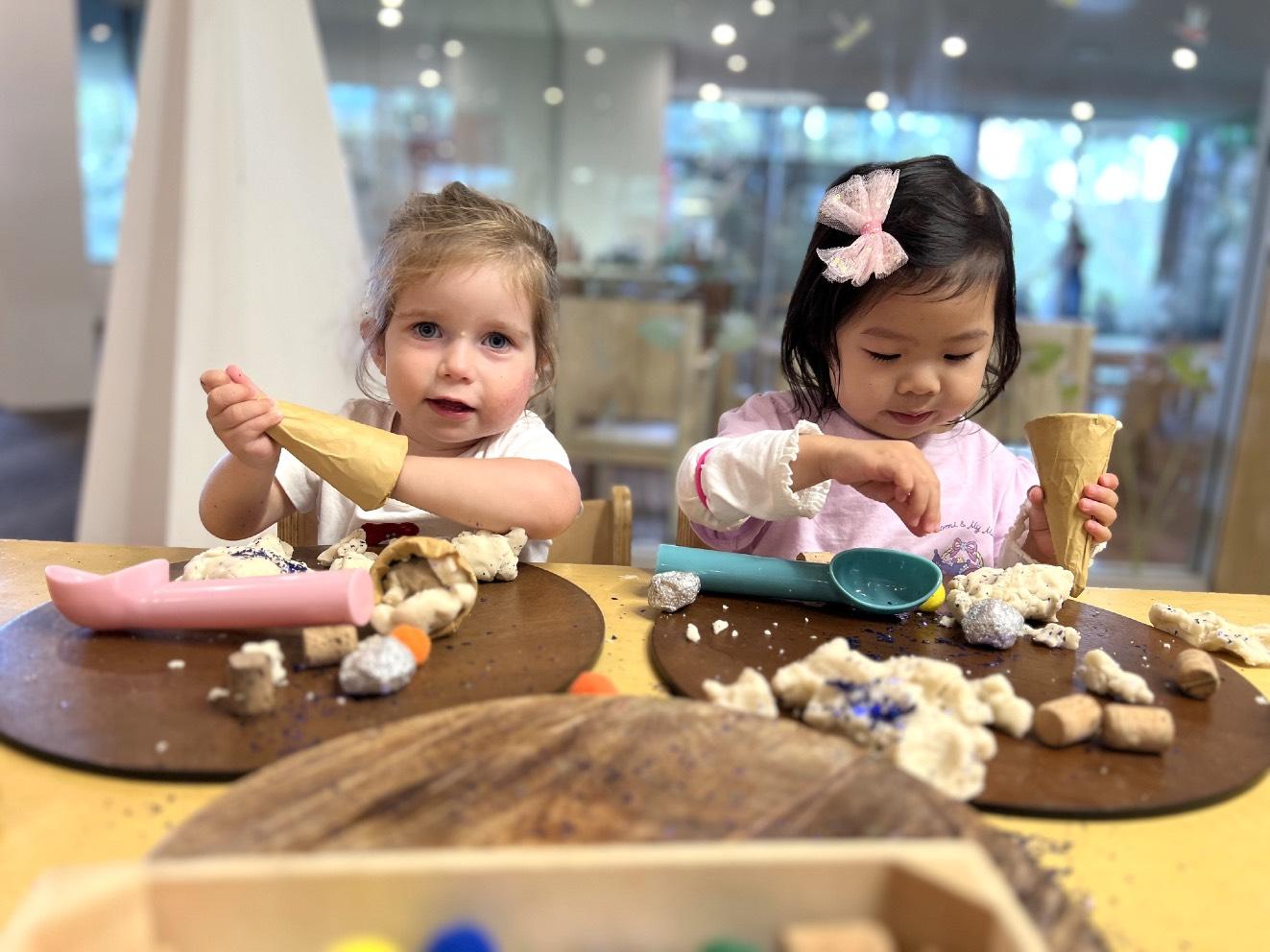
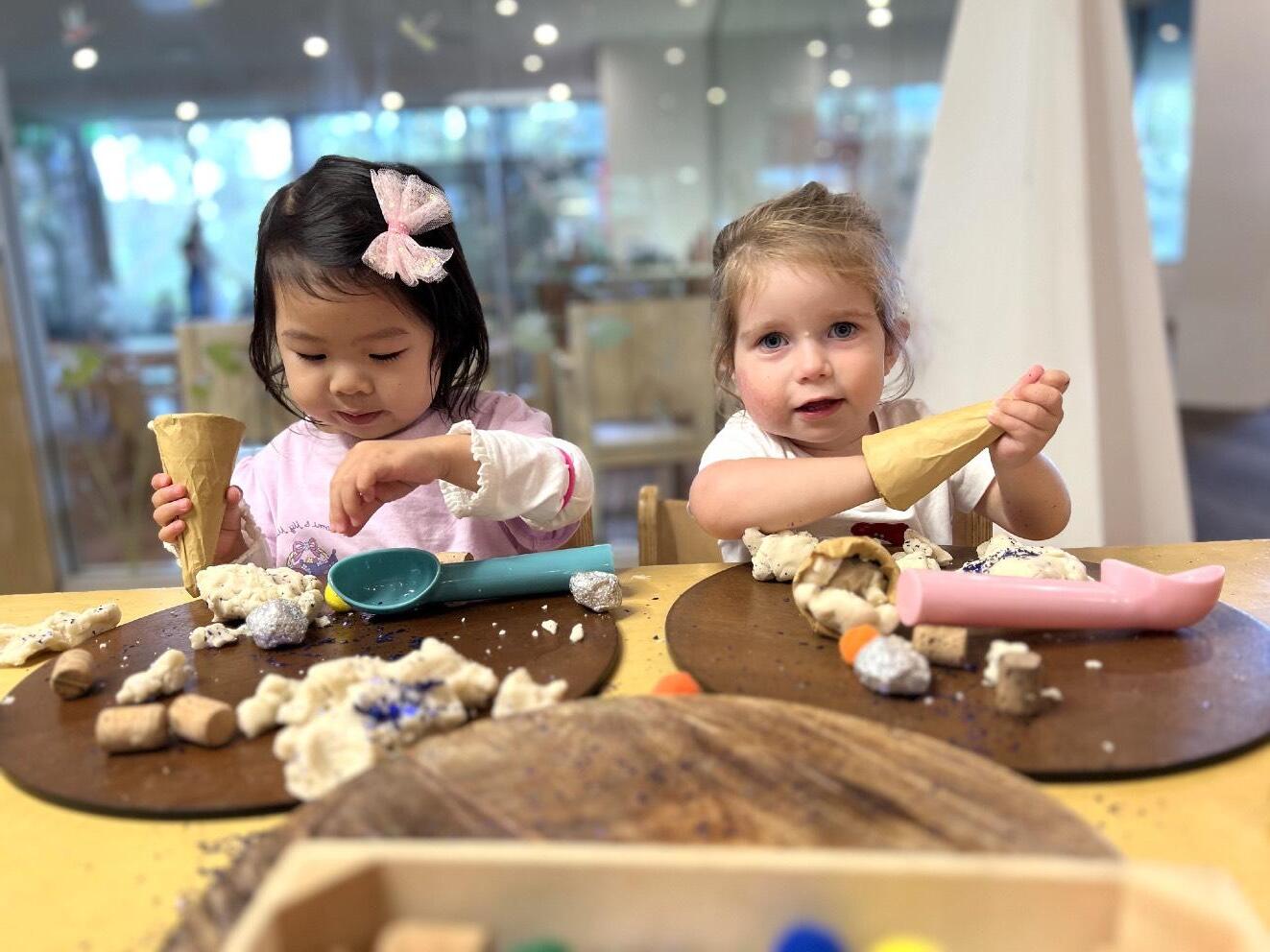
Working and learning together builds a sense of belonging for children as they learn not just from their teachers but from one another. Sharing their opinions with others and working together on common goals allows children to build trust and team working skills. These skills are then extended into the playground and into their spontaneous play experiences where we see the children deciding together what games they will play, what role each of them will hold and what outcome they are hoping to achieve. This provides them with important skills that extend well beyond their preschool years and into Primary school and beyond.
By collaborating with others, children discover each other’s unique skills, interests and capabilities. Rather than limiting their thinking the children expand their own repertoire of skills. By actively contributing to their Provocations and joint projects the children are more engaged in their learning and they are building strong and authentic relationships with others. For this reason our teachers ensure that the children are involved in formulating the curriculum and provocation focus.
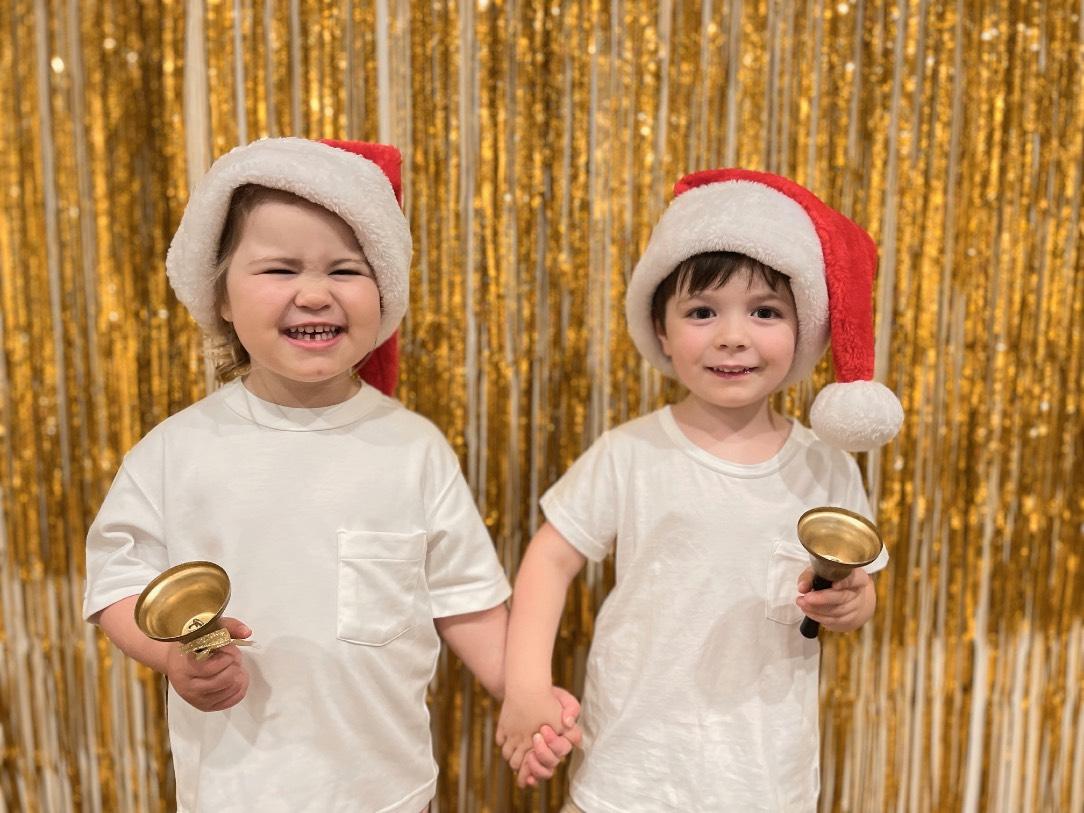
REDDAM EARLY LEARNING SCHOOL | ST LEONARDS NEWSLETTER
By Mrs Simone Cooke
17th February 2023
1
REDDAM EARLY LEARNING SCHOOL ST LEONARDS NEWSLETTER
Principal’s Message Continued…
Through their ‘mind maps of possibility’ and brainstorming sessions the children work together to select projects that are interesting and meaningful to them. They also feel genuinely listened to and feel their ideas and suggestions are valued and worthwhile.
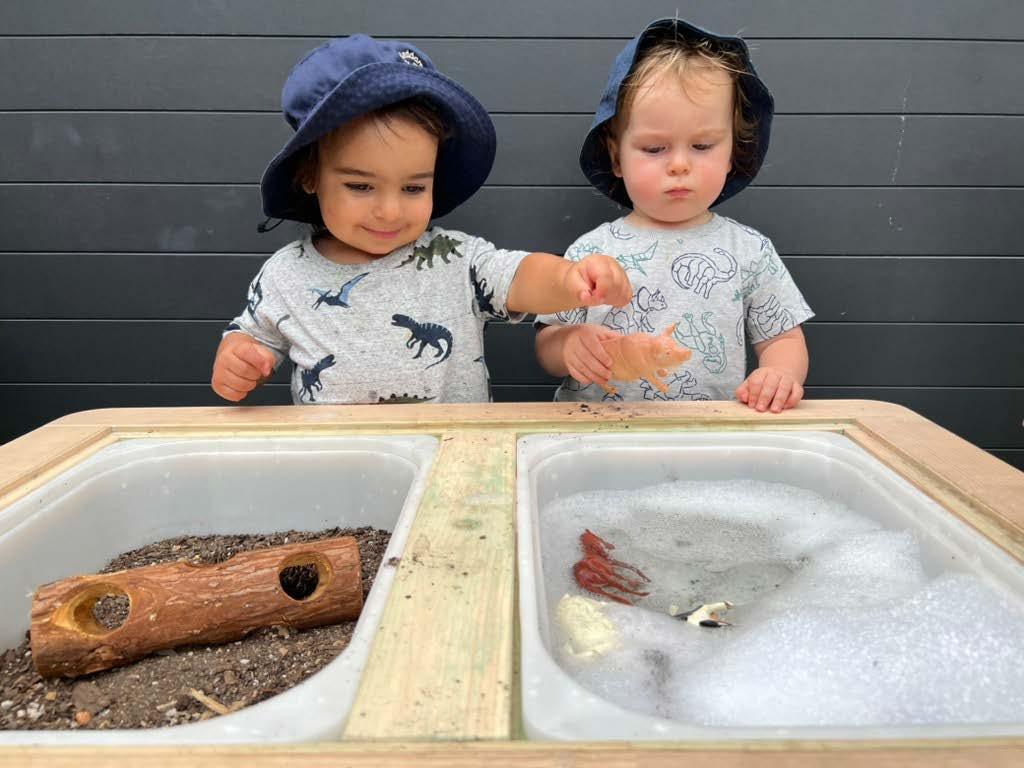
Collaborating with children means being responsive to their voices and allowing them to contribute to their learning. Our teachers understand the importance of offering our children opportunities to express their views and being listened to. By being active participants in the planning of their programme, learning is authentic and relevant and fosters a life-long love of learning.
We want our children to see what wonderful outcomes can be achieved if we work with others. By collaborating with each other our children learn the value of teamwork and they are able to see that we can learn so much more when we combine our ideas, thoughts and hands together. In the process they learn about the importance of sharing, turn taking, negotiation and even conflict resolution, which is part of the everyday learning of our busy children.
Wishing you all a wonderful weekend, enjoy the sunshine!
1st April 2022
REDDAM
LEARNING SCHOOL | ST
EARLY
LEONARDS NEWSLETTER
2
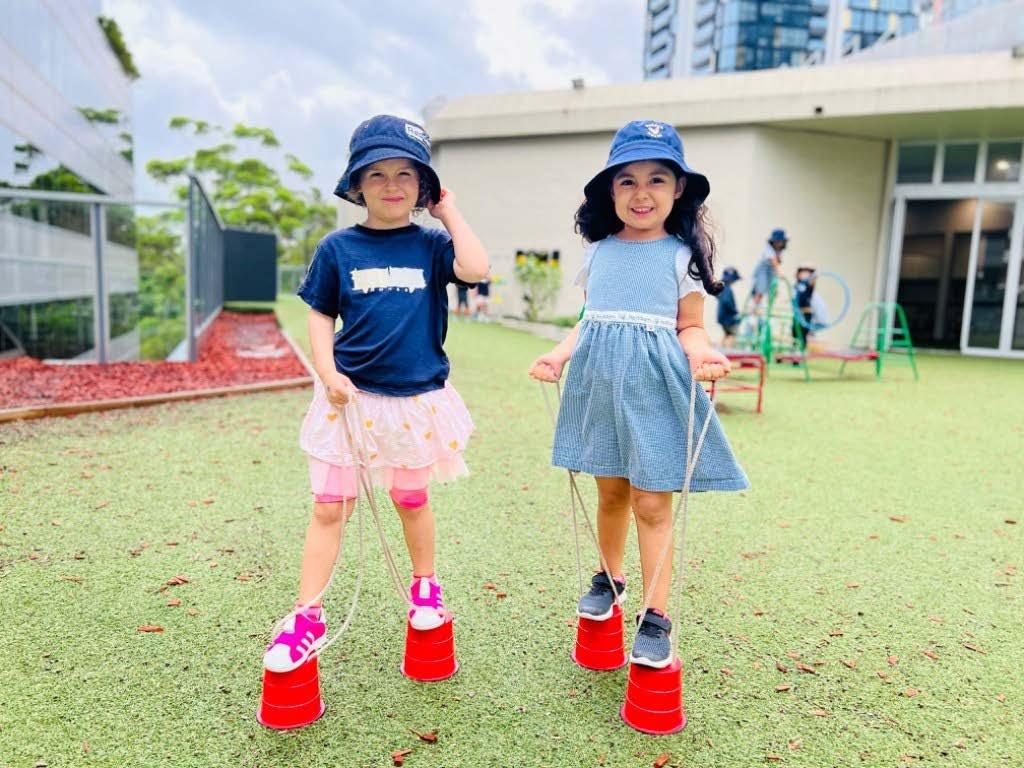
REDDAM EARLY LEARNING SCHOOL | ST LEONARDS NEWSLETTER 3
Stage 4R
Underwater World
By Ms Riina Andrews
This week, the question that we explored was “Why do waves make white foam?”. This question was put forward by Franco at a morning group time. “That is an interesting question Franco”, I answered, “let’s explore the answer together! But first, let’s ask our friends what they think the answer may be!”:
Risa – ‘bubbles in the ocean’ Ella – ‘to help waves go into the sea’
Joseph – ‘whales can swim’ Kyson – ‘bubbles make the foam’
Hazel – ‘because of the fish bubbles’ Sophie – ‘little bits of seaweeds make it’
Oliver – ‘it is soap bubbles’ Finn – ‘the fish turn into white foam’
Ethan – ‘plants and fish’ Franco – ‘the waves just turn into white’
Aneilia – ‘because they all mix up’ Morgan – ‘so whales can swim in the sea’
Ameilia – ‘because bubbles’ Summer – ‘a mix of seaweed and fish and waves’
Valyn – ‘the waves move the seaweed in and out’
Karthik – ‘the water goes white so people can dive under’
As you can see, we had some wonderful answers! The further our knowledge in this area, we watched a visual representation of ‘Sea Foam’ videos and found out that:
‘When large blooms of algae decay offshore, great amounts of decaying algal matter often wash ashore. Foam forms as this organic matter is churned up by the surf. Most sea foam is not harmful to humans and is often an indication of a productive ocean ecosystem.’
We then wished to create our own sea foam! Together we hypothesised the best way to do this. “Let’s get blue water” was exclaimed by some children, then “add sea animals” was the next instruction. Using these comments as a basis for our sea foam creation, we filled up water trays with blue water, added our favourite sea creatures and then started to shake the trays like waves. I then added shaving foam to create the sea foam and the children seemed to love it, swishing and swirling the trays to create more sea foam! Lots of dialogue between the children was shared during this time and more questions formed in their minds, which we will follow up on next week.
News Time
Next week, our News topic will be the letter A. Please send your child to school with an item that begins with this letter. We will then continue to proceed through the alphabet until we complete it all!
REDDAM EARLY LEARNING SCHOOL | ST LEONARDS NEWSLETTER 4
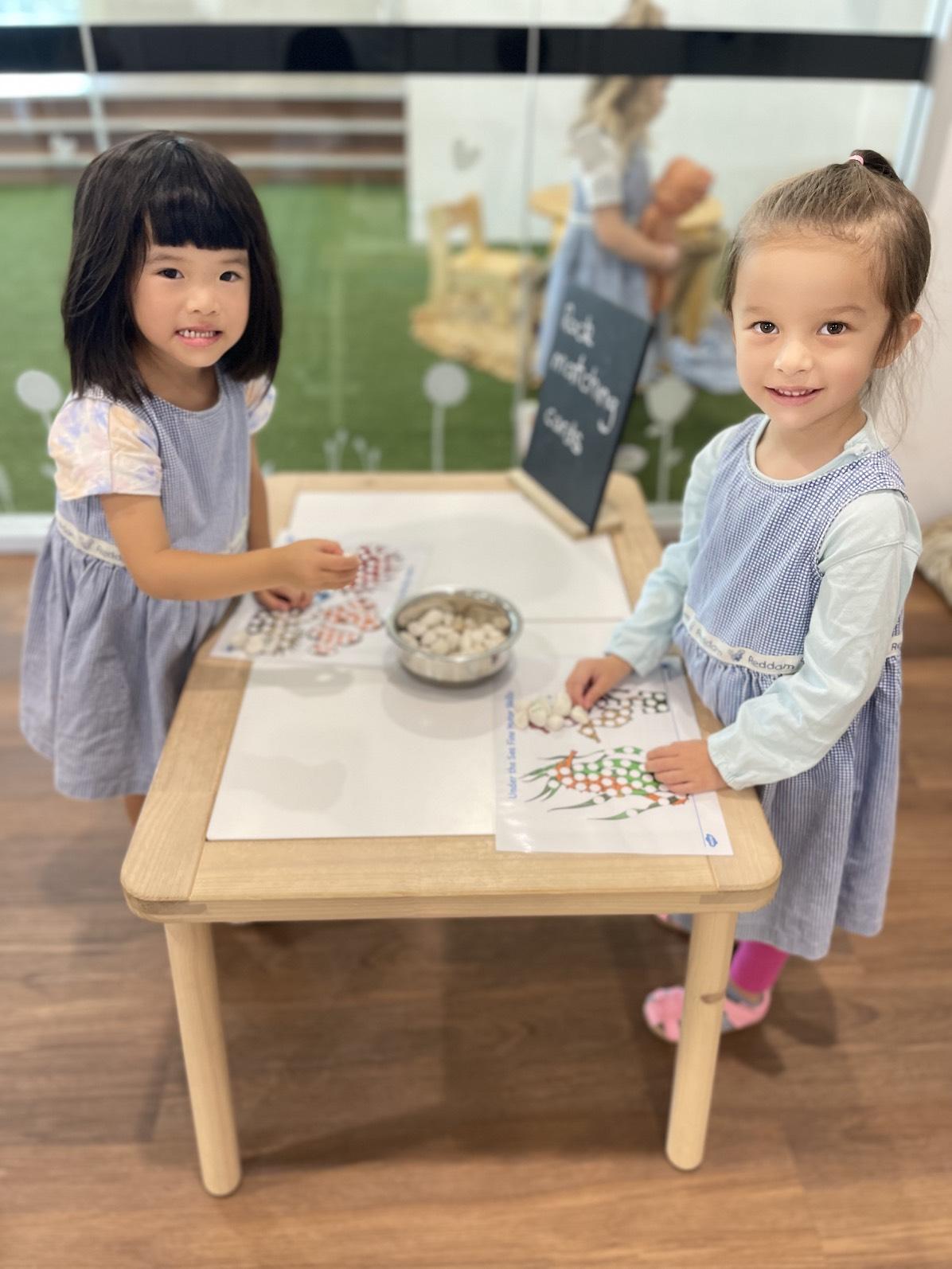
REDDAM EARLY LEARNING SCHOOL | ST LEONARDS NEWSLETTER 5
Stage 4R: Sea Foam Investigation
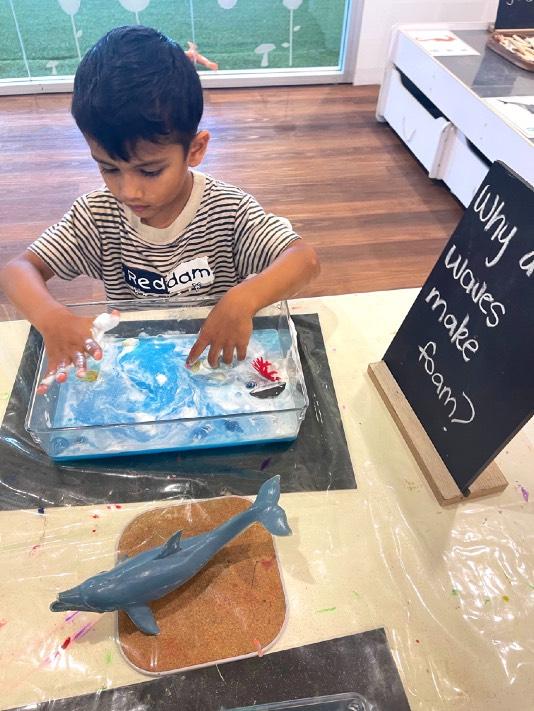
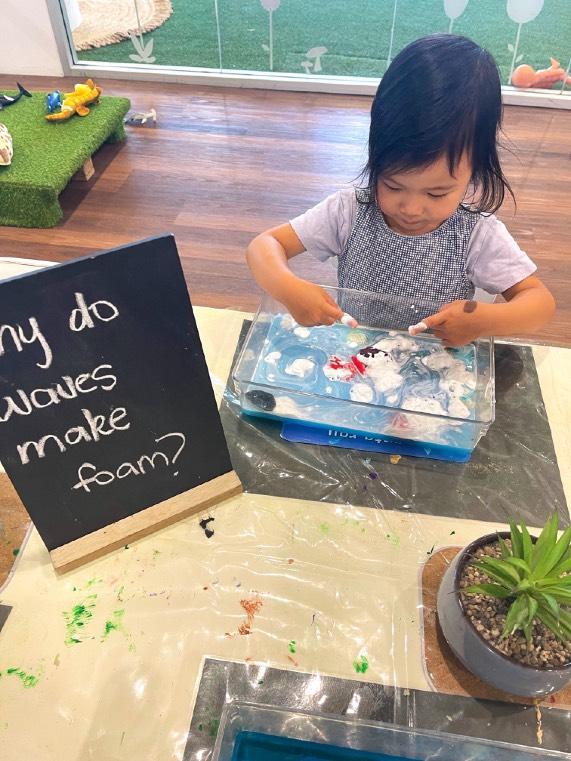
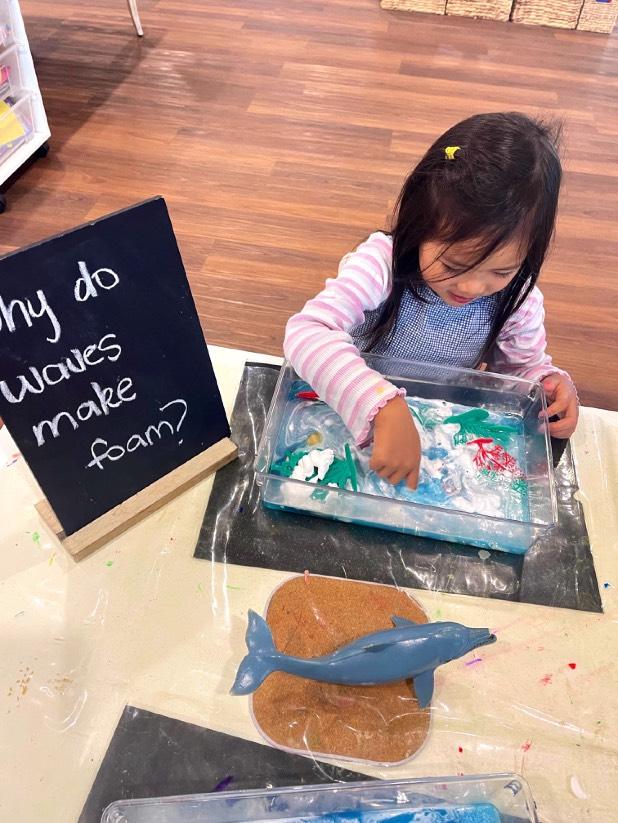
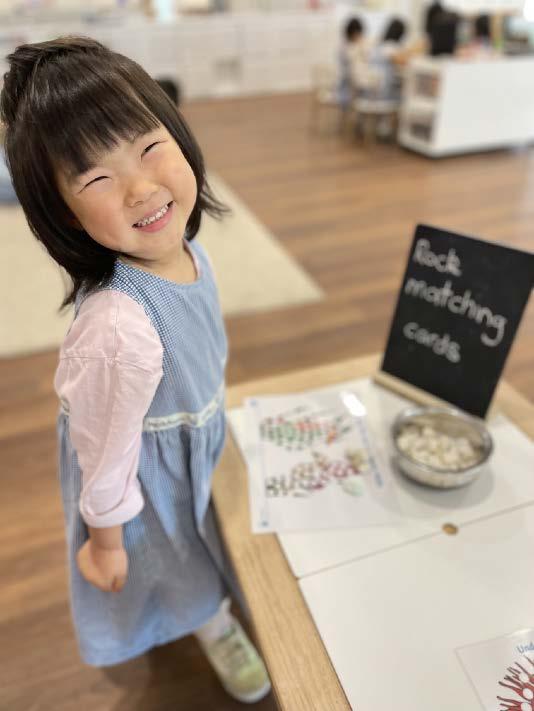
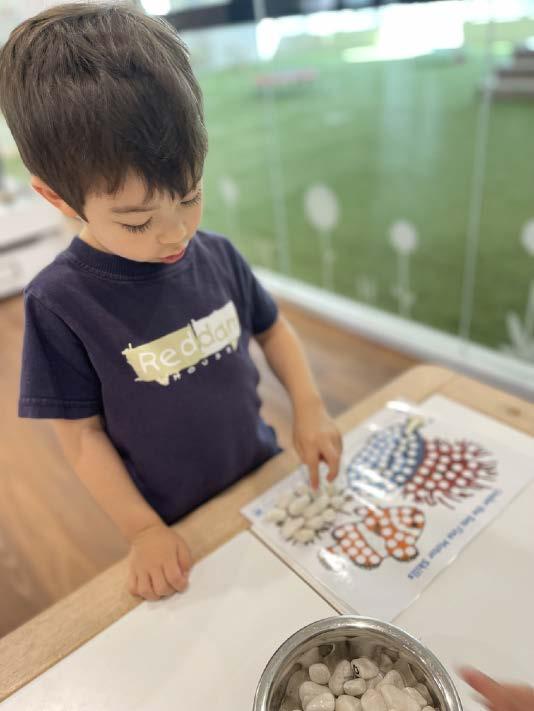
REDDAM EARLY LEARNING SCHOOL | ST LEONARDS NEWSLETTER 6
Stage 4R: Rock Matching
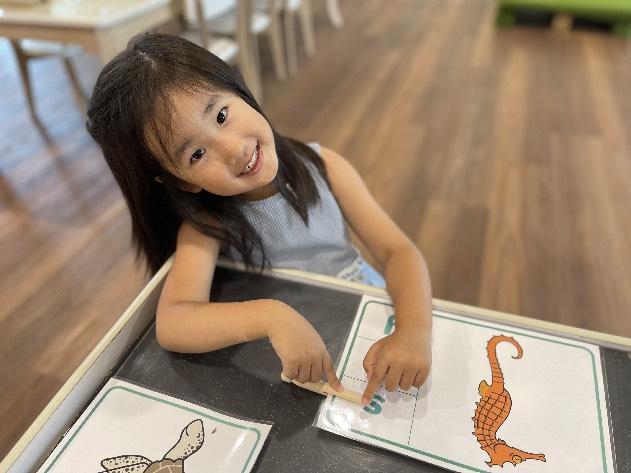
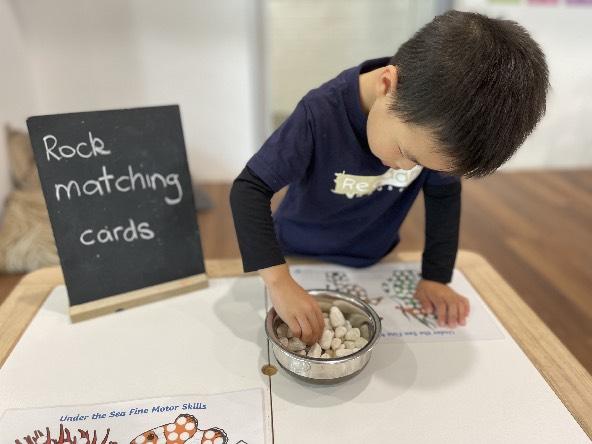
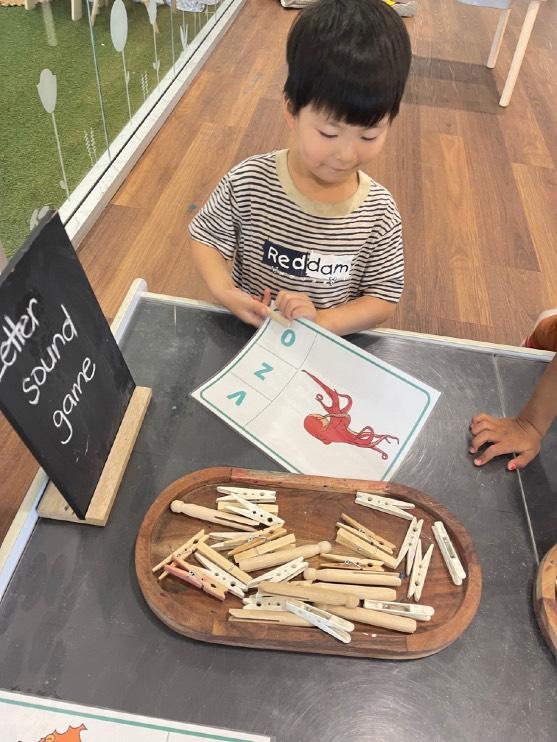
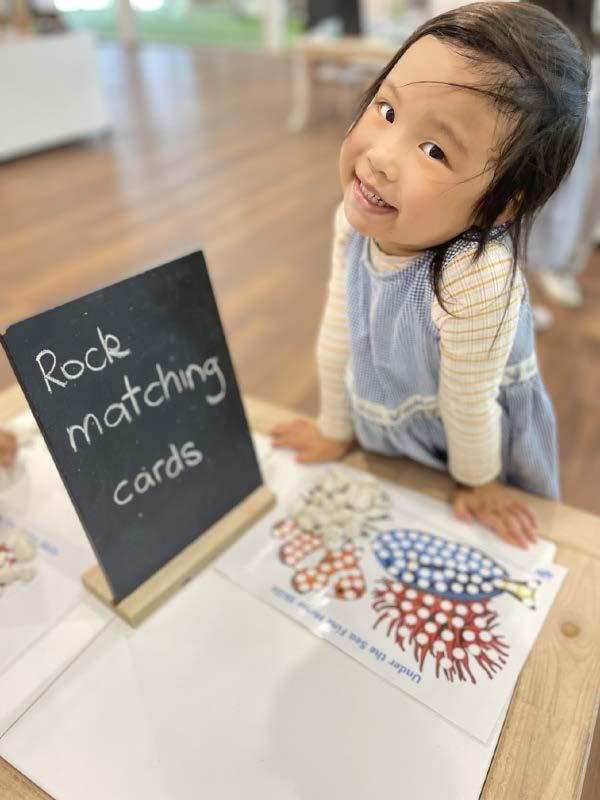
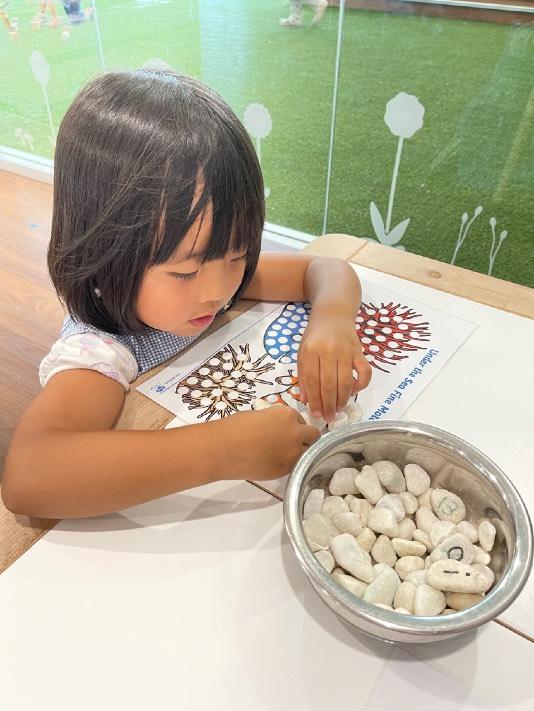
REDDAM EARLY LEARNING SCHOOL | ST LEONARDS NEWSLETTER 7
By Ms Emily Brazel
The Human Body
By gaining a greater understanding of what they do and how they work together, we can start to appreciate our bodies more and learn how to look after them. Therefore anatomy for kids is extra important. By learning about the human body from a young age, your children can start to learn more about illnesses, injuries and the like – so they know how to prevent them in future. And as kids start to understand the world around them, there’s no better place to start than themselves.
Our Organs
This week the children continued to learn about the organs in their body. Teachers decided to continued this provocation as it was a large interest of the children's. They showed excitement this week as teachers continued to inform them of information and the various roles that each organ plays. Throughout the week teachers invited children to participate in a number of activities that encouraged them to use their cognitive skills, fine-motor skills as they explored their various senses.
Let's Use Our Brain!
Cognitive skills allow children to understand the relationships between ideas, to grasp the process of cause and effect and to improve their analytical skills. Cognitive skill development can not only benefit your child in the classroom but in the outside world too. Miss Emily set out an activity allowing the children to practise their their skills and number recognition. The children were as well encouraged to create their own number sentence using the whiteboard, magnetic numbers, counters and brain! Firstly, children were asked to pick a magnetic number and place it on the board. Once that was complete they were encouraged to write that number down, practising their fine-motor skills and tripod grip and as well their number recognition. Afterwards, the children were asked to find that number using the counters. Each children showed great dedication to their work, hand-eye coordination, concentration skills and number and counting association. Well done Stage 4E!
Checking Your Heartbeat
This week the children dived deep into learning about the heart. For a group time experience teachers informed the children of their heart beat and how to check their pulse. It was interesting watching the children check their heart rate and some things they said. Following on from this an activity was set up for children to then use their handeye coordination to follow a heartbeat on paper. The children used natural resources for this activity, alongside their fine-motor skills. They were asked to put the white pebbles along the line of the heartbeat. This experience was a great way to practise developing motor skills, pincer grip and natural curiosity. Some of the children's responses included:
Valentina- “It feels like pumping” Milo- “It feels like your skin pumping up”
Ashton- “It's faster when running” Zac- “Feels like your hearts pumping the blood”
Stage 4E
REDDAM EARLY LEARNING SCHOOL | ST LEONARDS NEWSLETTER 8
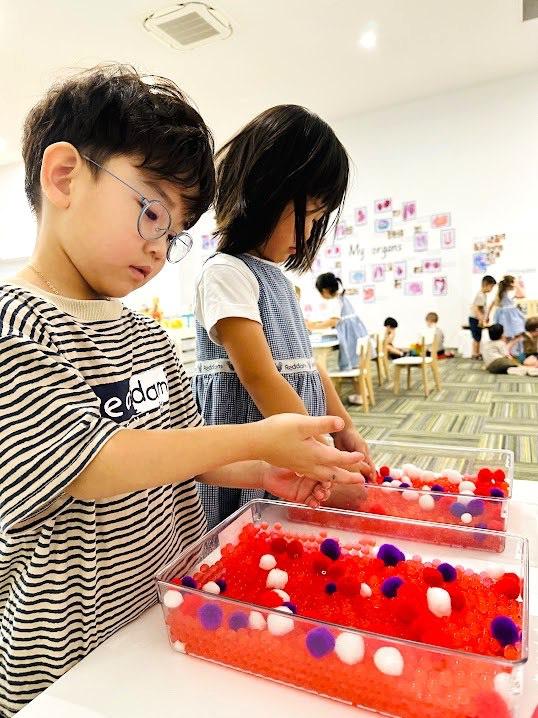
REDDAM EARLY LEARNING SCHOOL | ST LEONARDS NEWSLETTER 9
Stage 4E: Checking Our Heartbeat
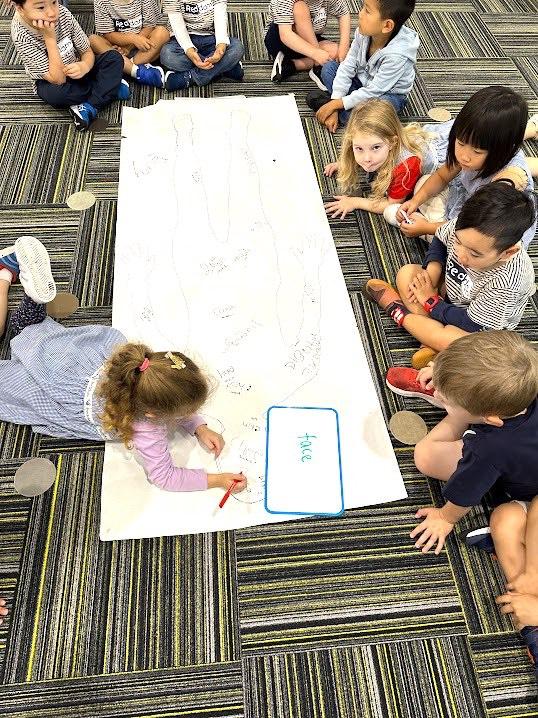
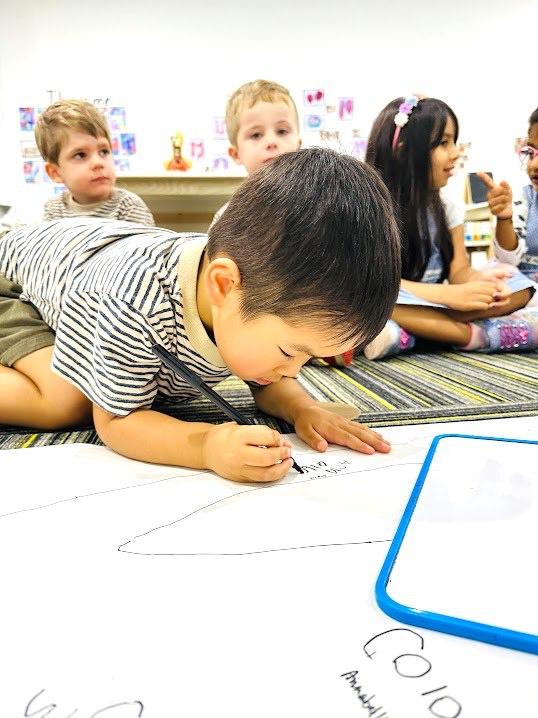
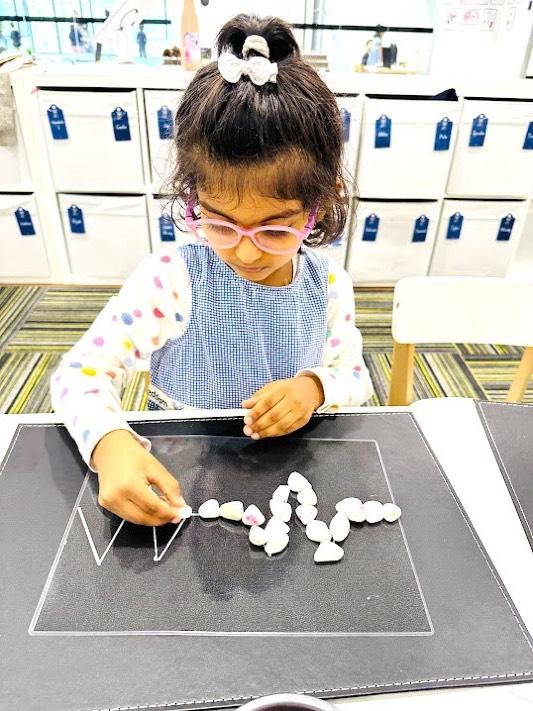
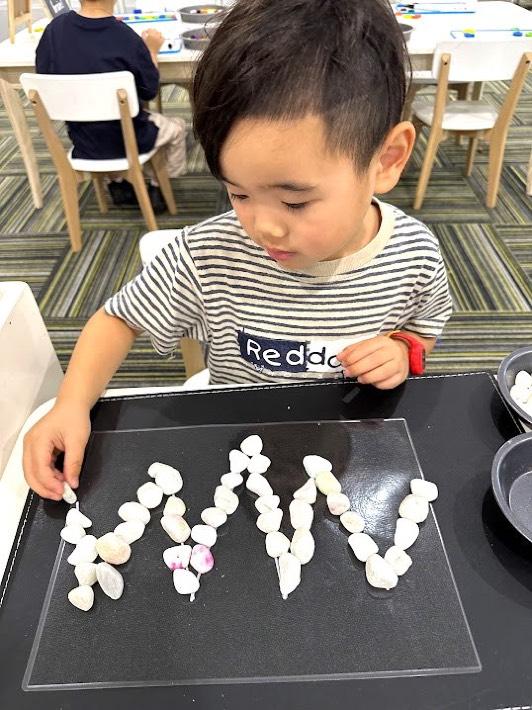
| ST LEONARDS NEWSLETTER 10
Stage 4E: Using Our Brains!
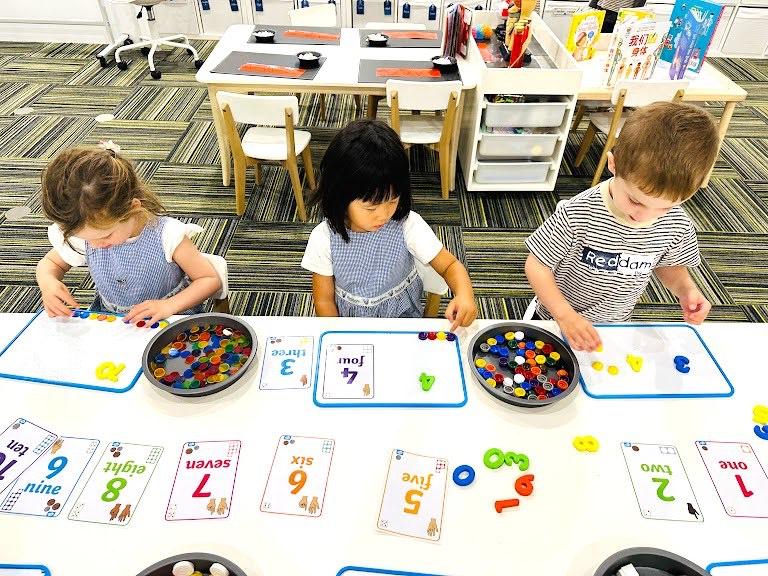
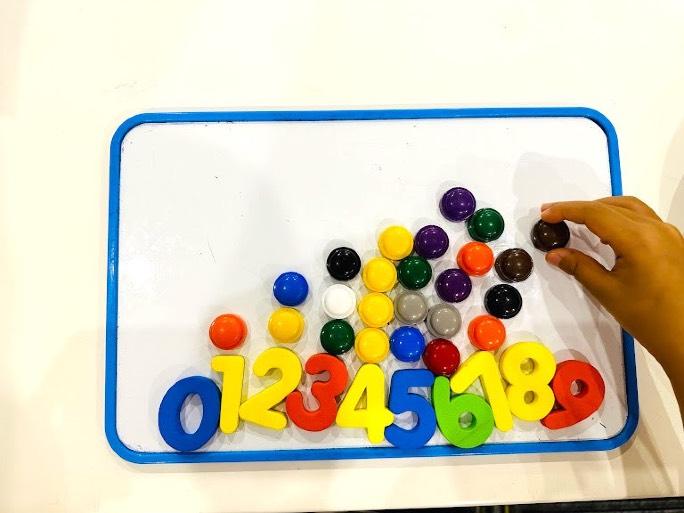

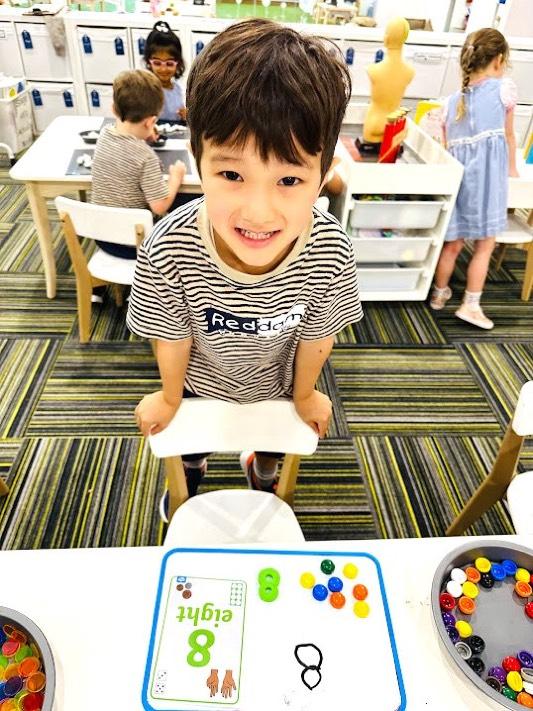
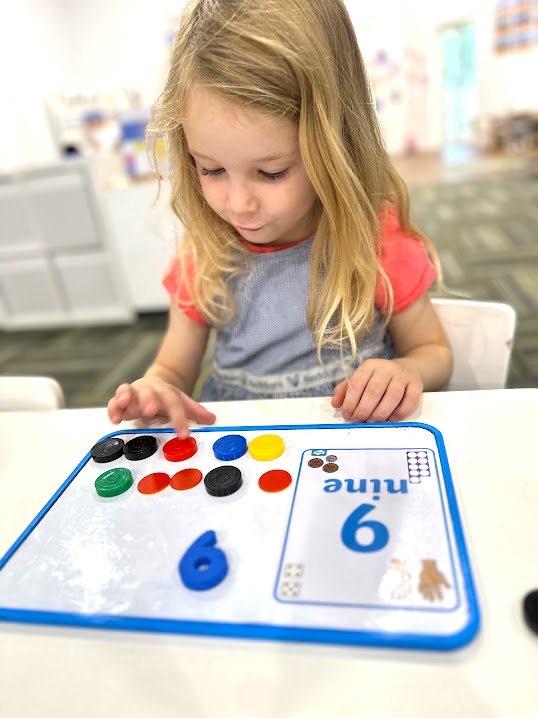
REDDAM EARLY
LEARNING SCHOOL
Stage 4D
Fruit and Vegetable Investigation
By Ms Sarah Ross
This week Stage Four continued their investigation into where fruits and vegetables come from and how they are grown. This saw the children observing and identifying the parts of a capsicum under a magnifying glass, making their own ‘lemonade’ and documenting their knowledge of what plants need to grow.
In literacy groups the children have been keen to identify the letters they know and share this knowledge with their peers. This has prompted many lovely invitations to write including our beautiful fruit writing tables. Many of the children have used this space to draw freely and practice the letters they know or attempt to draw different types of fruits and their corresponding names.
This interest in learning to write has prompted a writing activity where the children each spent time with the teacher revising their knowledge on what plants need to grow. From this the child formulated a sentence that they then recorded using markers on paper shaped like leaves and apples.
“Plants need water to grow” – Tianze “Plants need water, sun and time” – Henry “Plants need soil to grow” – Sarah “Plants need sun, soil, and water” – Jane
“Plants need soil, light and water” – Gisele
Each child was delighted and determined to practice this new skill with the support of their teacher and at the end coloured their leaves and apples in vibrant and imaginative colours.
In My Heart
The Stage Four children are already developing their own strategies to control their emotions and sharing these with one another. Navigating emotions is often a very prominent feature in the daily lives of our children, with this in mind we decided to hold discussions with the children about how different emotions can make us behave in different ways and how our actions can affect other people’s emotions too. To support these discussions, we explored the book “In My Heart” by Jo Witek and discussed how our hearts can experience so many different emotions that range from making us feel “as light as a balloon” to as “heavy as an elephant”.
As an extension of this interest the children were invited to engage in a social art experience where they had discussions about what they feel in their heart and used a range of collage materials to paint and glue on a heart of their own.
This has demonstrated Stage Four’s capacity to share their thoughts and feelings with others and speak about themselves in a positive way. Additionally, through these discussions the children gained understanding that sharing their feelings with others creates opportunity for others to support them and acknowledge why they are feeling certain ways.
REDDAM EARLY LEARNING SCHOOL | ST LEONARDS NEWSLETTER 12
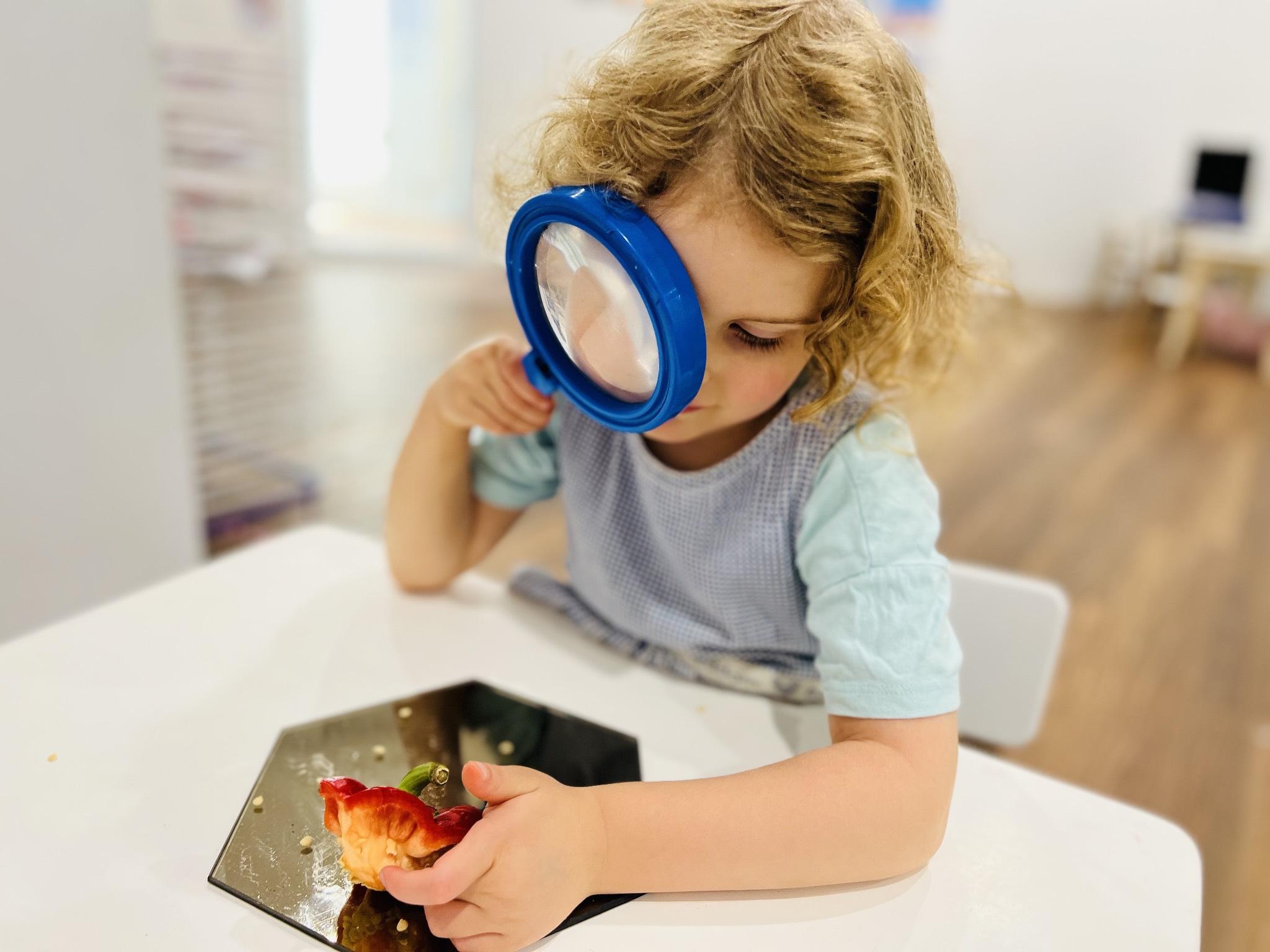
REDDAM EARLY LEARNING SCHOOL | ST LEONARDS NEWSLETTER 13
Stage 4D: Making Lemonade
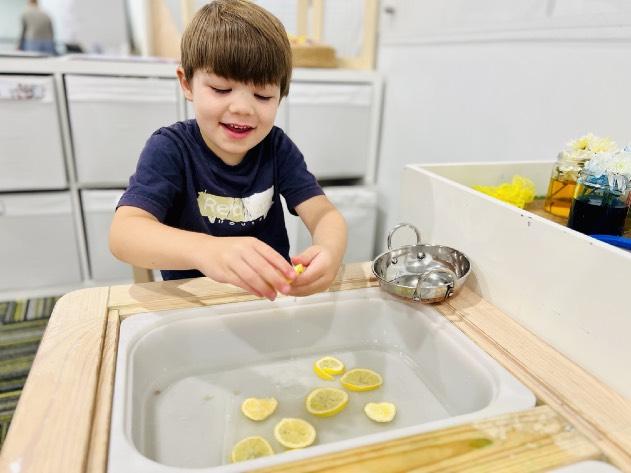
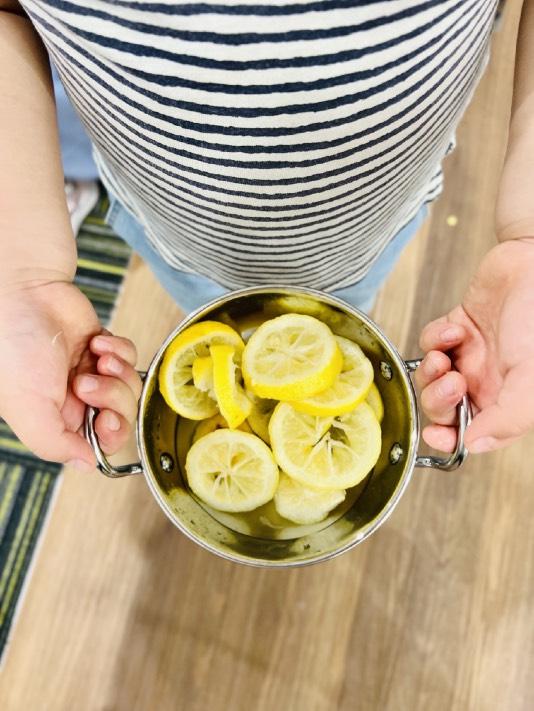
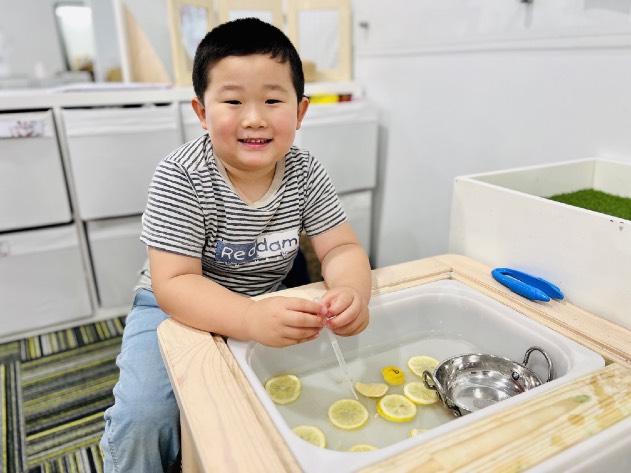
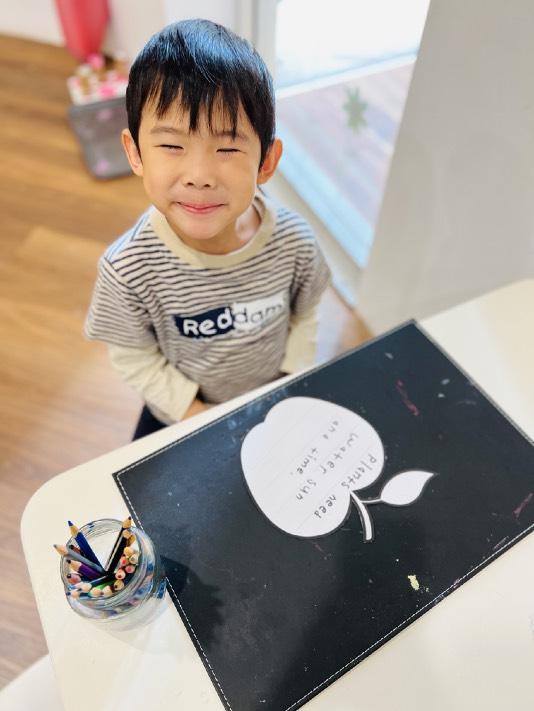
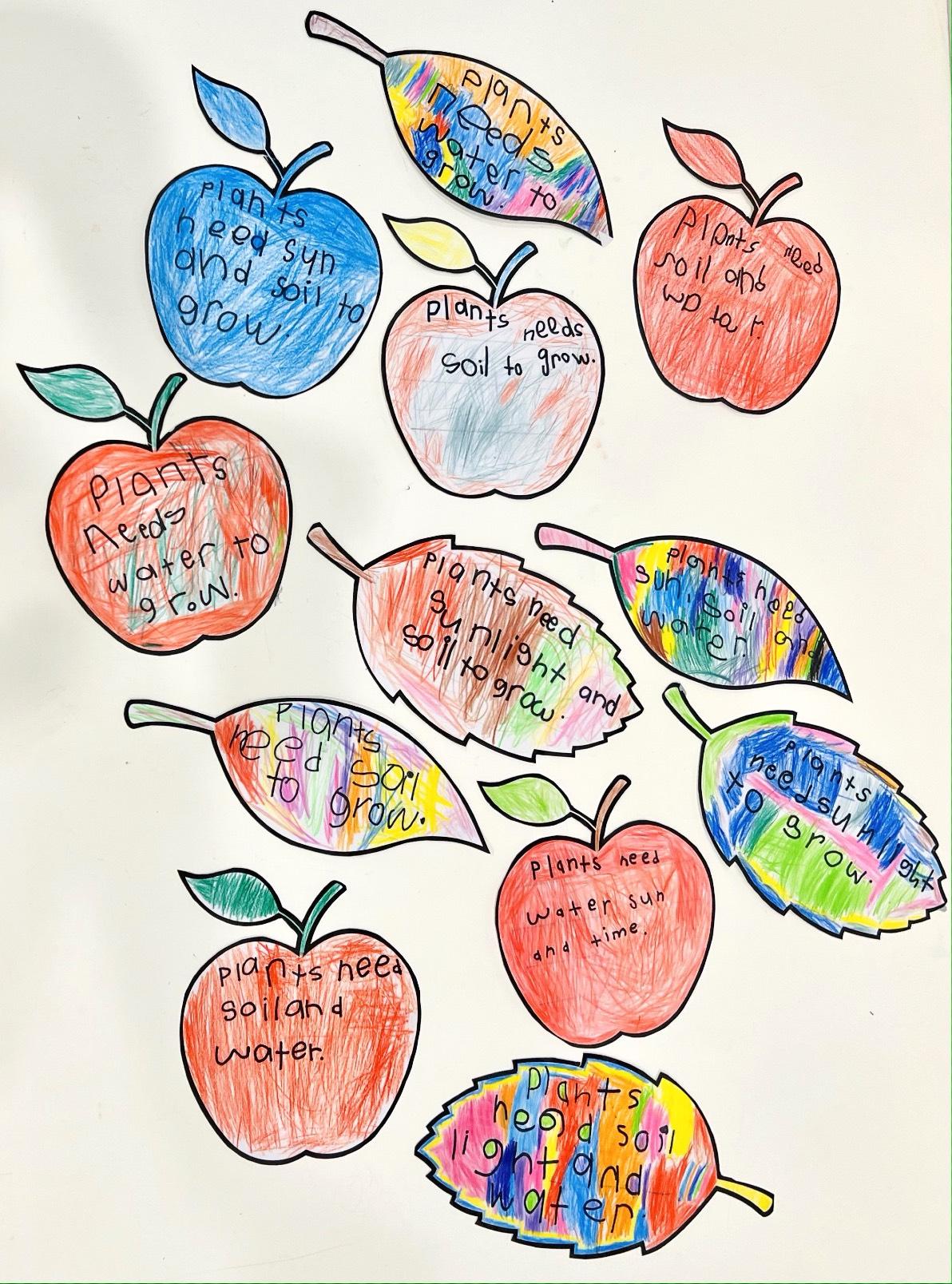
REDDAM EARLY LEARNING SCHOOL | ST LEONARDS NEWSLETTER 14
Stage 4D: Identifying Plants
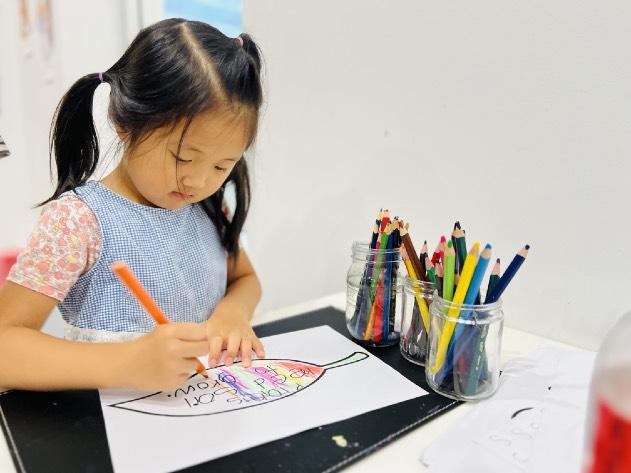
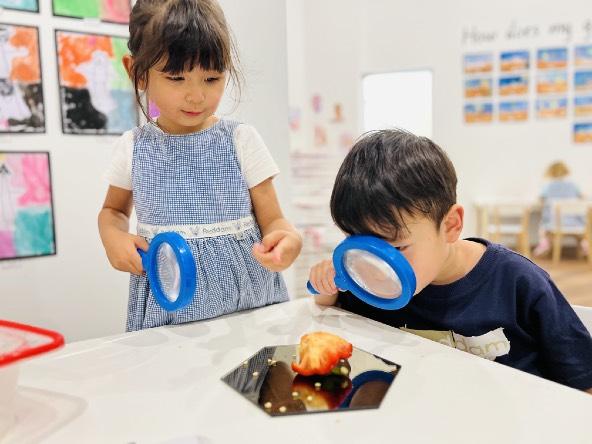
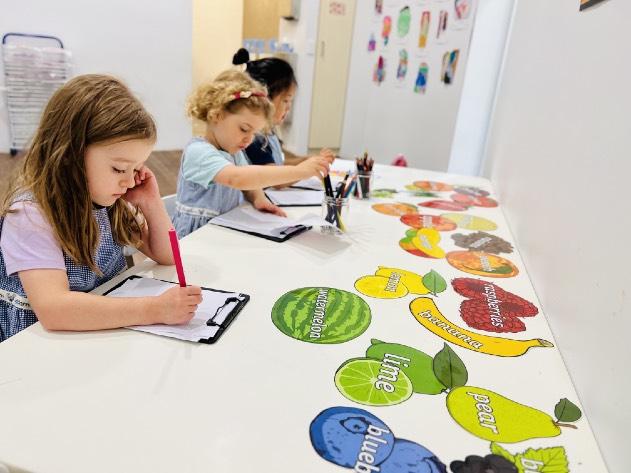
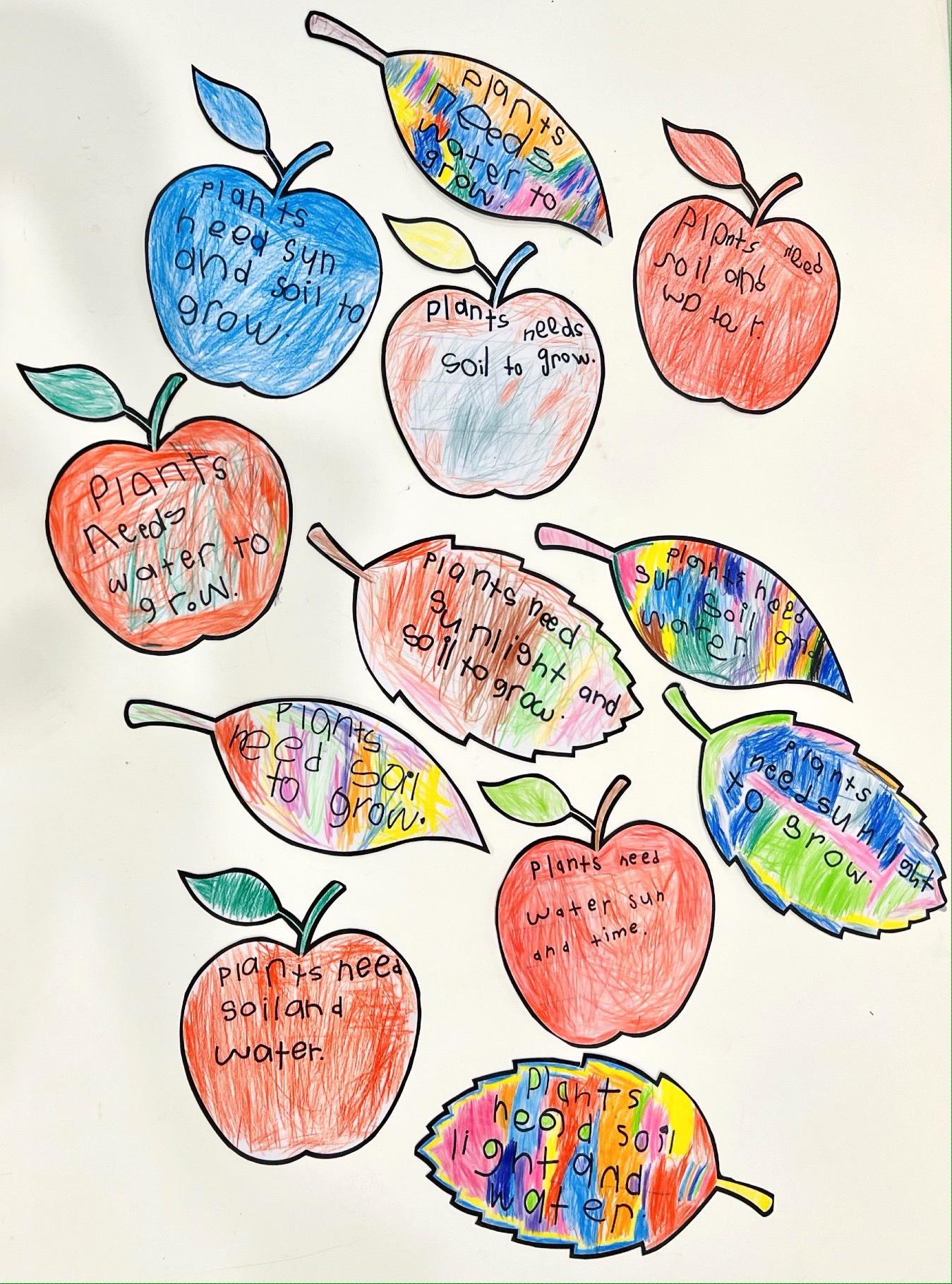
REDDAM EARLY LEARNING SCHOOL | ST LEONARDS NEWSLETTER 15
By Ms Emily Chacon
Marvellous Me
“Children’s identities, knowledge, understandings, capacities, skills and relationships change during childhood. They are shaped by many different events and circumstances. Becoming reflects this process of rapid and significant change that occurs in the early years as young children learn and grow. It emphasises learning to participate fully and actively in society.”
- The Early Years Learning Framework for Australia.
Our goal as teachers is to ensure that all children feel safe, secure and supported in their school environment, as well as gaining a sense of belonging. This week we explored all areas of our lives that make us feel confident and allow us to gain that feeling of being loved.
Throughout the week the children engaged in various group discussions and activities that reflected on each part of their communities they belong to, family, friends, school and cocurricular activities. During our class sessions we talked about what makes us connected and how it makes us feel. We created a mind-map of the children’s voices:
Mia Mc– “Mummy makes me happy”
Isabella – “playing soccer with my daddy makes me feel loved”
Charlie – “playing with my brother makes me happy”
Abigail – “playing with Amelie makes me happy”
Madeleine – “my friends make me happy”
On our big table we lay down a piece of butcher’s paper and across the week the children used coloured crayons as well as paint to create a class collage. It was wonderful to see the children working together and creating as a group. Once finished we waited for it to dry and then cut it into interlocking puzzle pieces, to represent our class belonging together.
On our other table, the children were encouraged to create a bracelet for either themselves or a friend. Friendships benefit children by creating a sense of belonging and security to their school environment, it also reduces stress and anxiety. Child psychologists find early childhood friendships contribute to children’s quality of life and ability to adjust to changes within their environments. Friendships also help children develop important life skills like getting along with other people and sorting out conflicts and problems.
For art the children were asked what family means to them, it was lovely to hear many different definitions.
Gemma – “Family means we play together”
Oliver – “Family means we eat with each other”
Amelia Z – “Family means we are happy”
Mara – “Family means we play”
Mia – “Family means we love each other”
With their description in mind, the children then drew their family with black markers and coloured them with watercolour paint. Every child had a different outlook on their home life and loved talking about their family members.
Stage 3/4
REDDAM EARLY LEARNING SCHOOL | ST LEONARDS NEWSLETTER 16
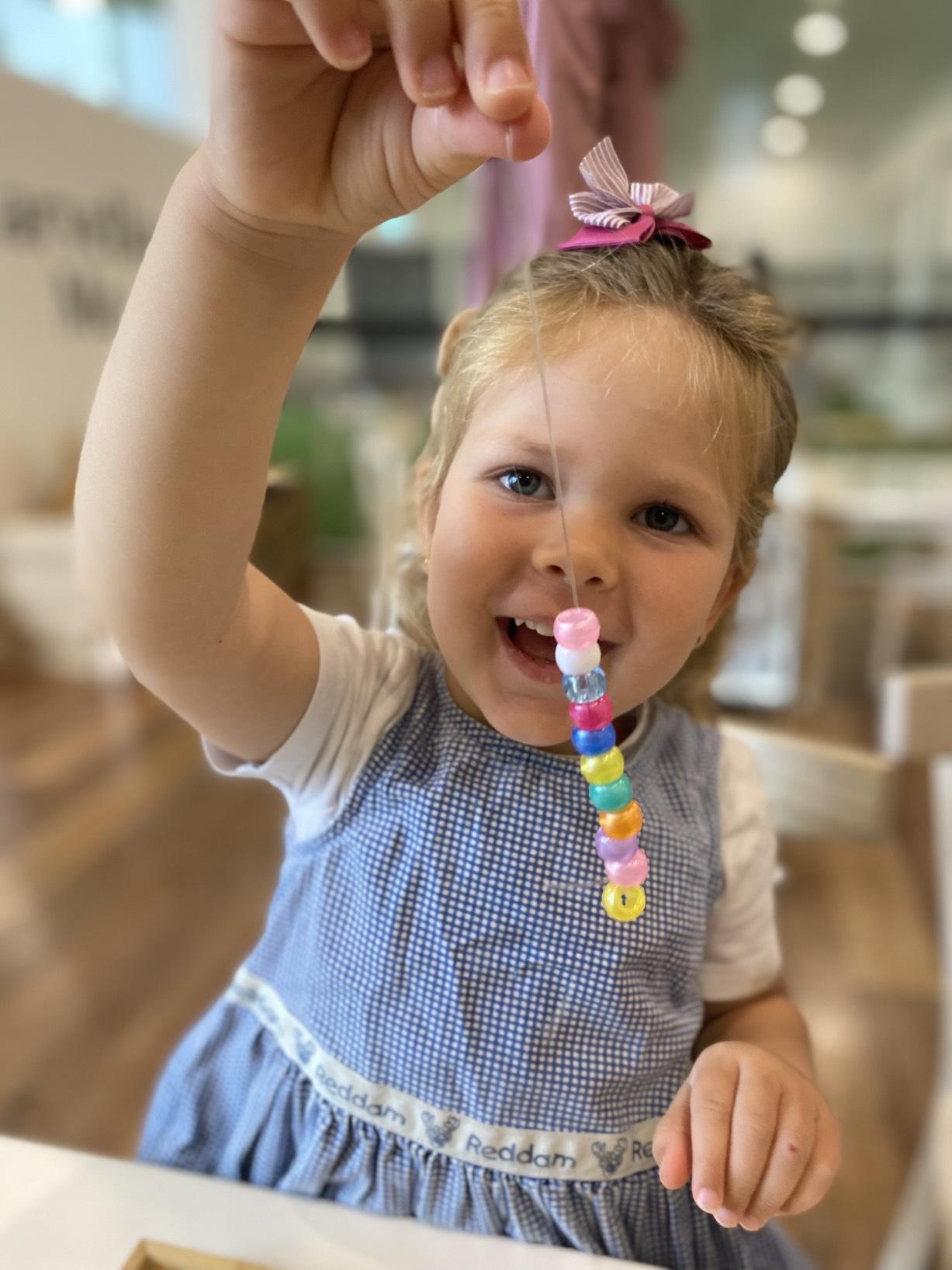
| ST LEONARDS NEWSLETTER 17
Stage 3/4: Valentines Love Bugs
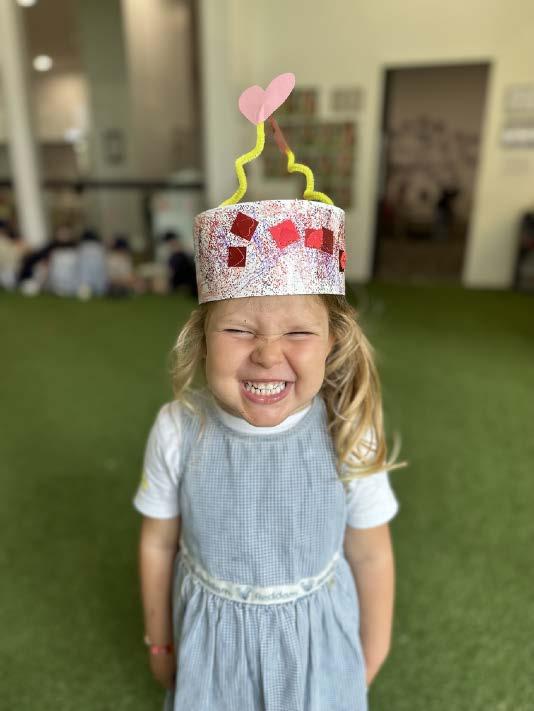
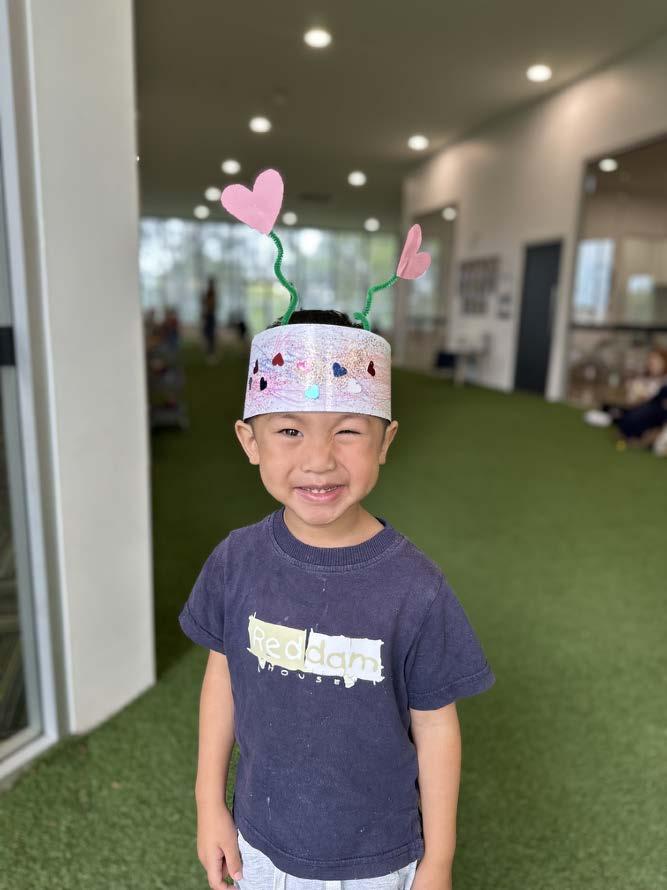
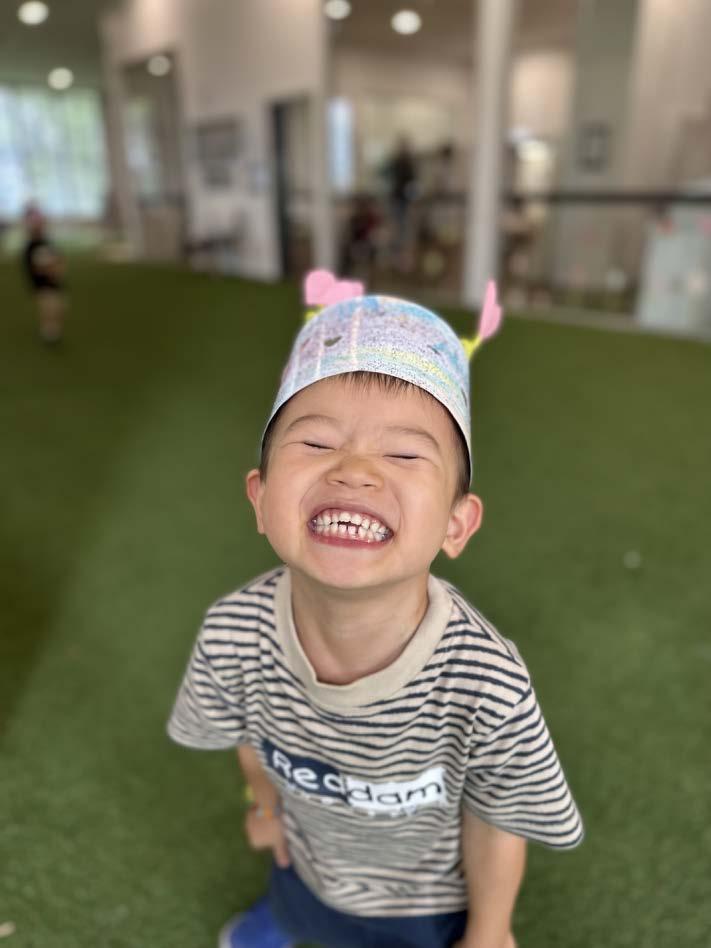
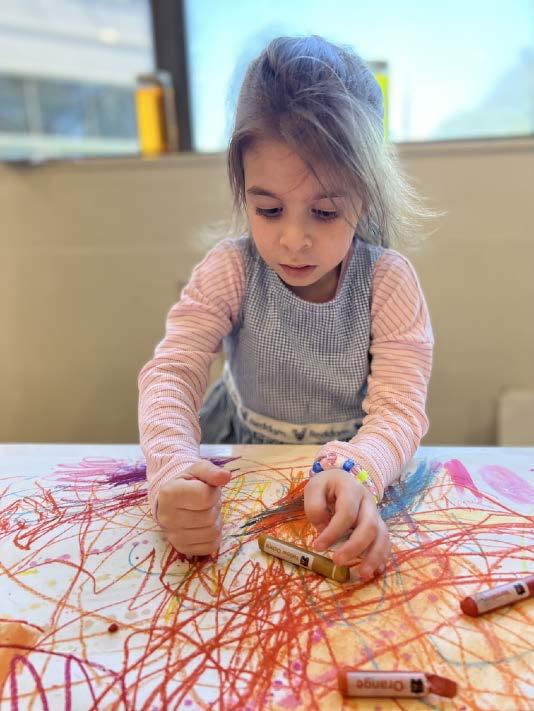
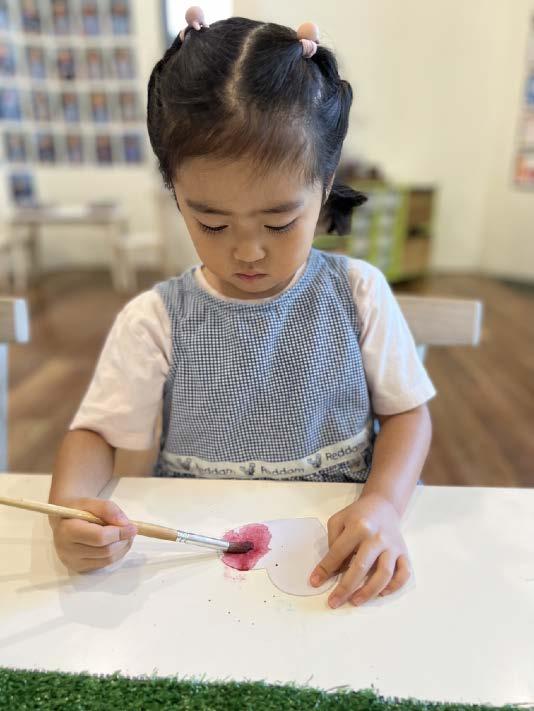
REDDAM EARLY LEARNING SCHOOL | ST LEONARDS NEWSLETTER 18
Stage 3/4: We Are Connected
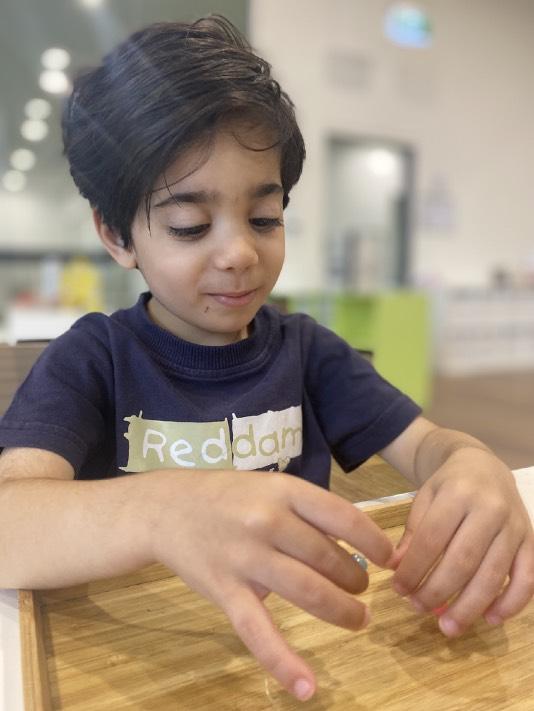
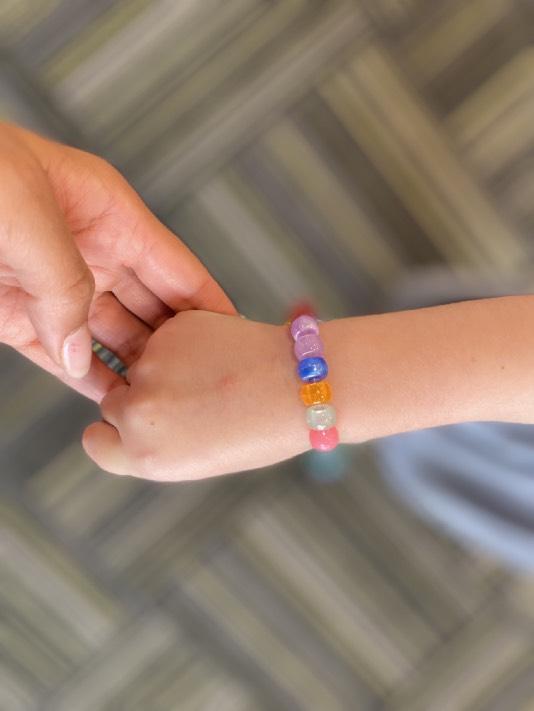
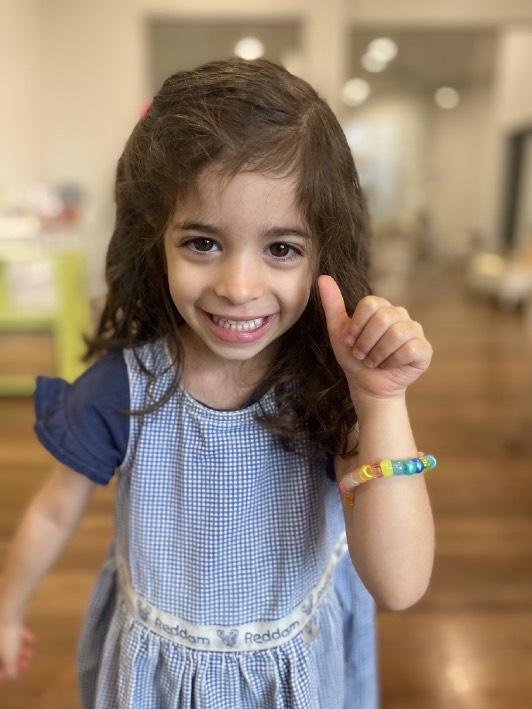
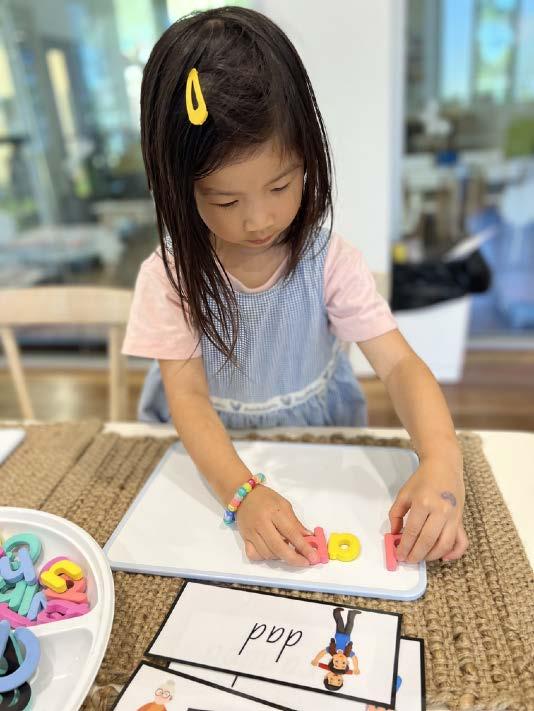
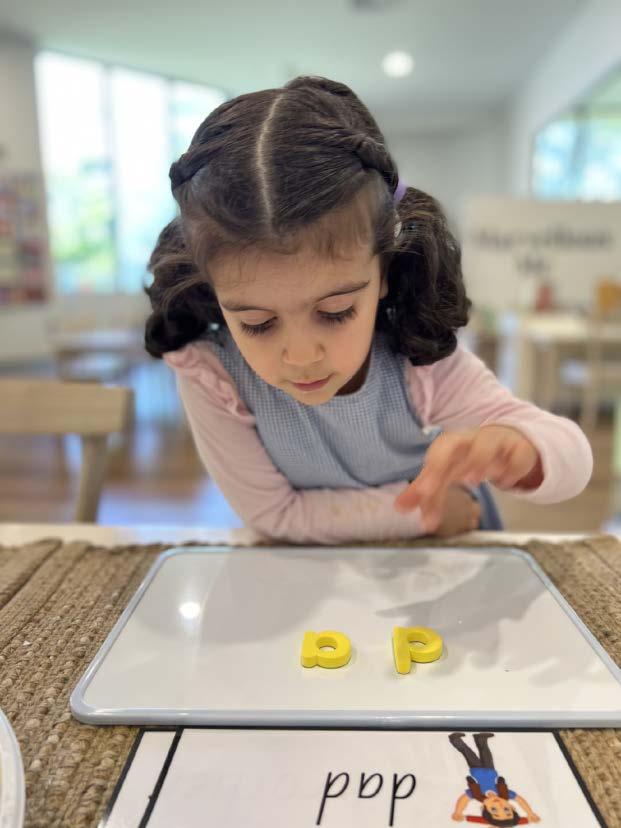
REDDAM EARLY LEARNING SCHOOL | ST LEONARDS NEWSLETTER 19
Stage 3E
Our Families
By Ms Sophie Schwarz
This week Stage 3 has been focusing on Family. During group time the children have been standing up individually in front of their peers and telling the class about their own families, who is in their family and their names. We discussed their extended families such as cousins and Grandparents and if they lived close to them.
During open discussion, the children have been encouraged to think about what is important to their own family, such as being kind, caring and loving to each other. We have been reflecting on special memories they have with their family, such as holidays or going to the beach as a family. We have encouraged children to think and discuss special traditions that their family have, for example, holiday celebrations and special meals.
Claris: ‘ Audrey plays with me, she is my sister. They take me to ballet class.’’
Aydin: ‘My family are kind’
Liam: ‘My family look after each other’
Travis: ‘My family is nice to me’
Sumire: ‘brother’
Bella: ‘I go to the park with Mummy and Daddy and George.’
Gabriel: ‘My Mummy and Daddy keep me safe’
Claudia: ‘My Daddy takes me to the swimming pool’
Mia: ‘Mummy plays with me.
Arthur: ‘My Mummy and Daddy give me cuddles’
Oli: ‘We went to Fiji’
The children have enjoyed copying words relating to families with magnetic letters, then wrote on the whiteboard copying the same word. This activity has engaged their fine motor skills, allowed the children to find the correct letters and tell us what letter it was while developing the word.
The children have really enjoyed this topic. It has allowed them to share special memories of their families with their friends. They were able to express themselves verbally, through writing and drawing their family.
REDDAM EARLY LEARNING SCHOOL | ST LEONARDS NEWSLETTER 20
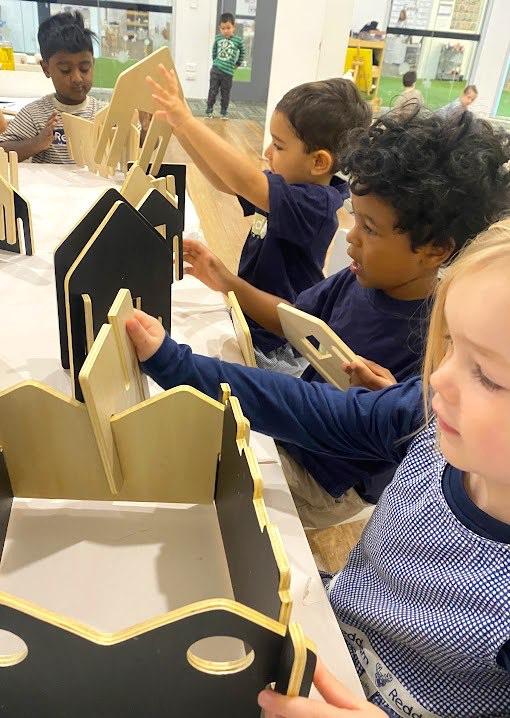
REDDAM EARLY LEARNING SCHOOL | ST LEONARDS NEWSLETTER 21
Stage 3E: My Family
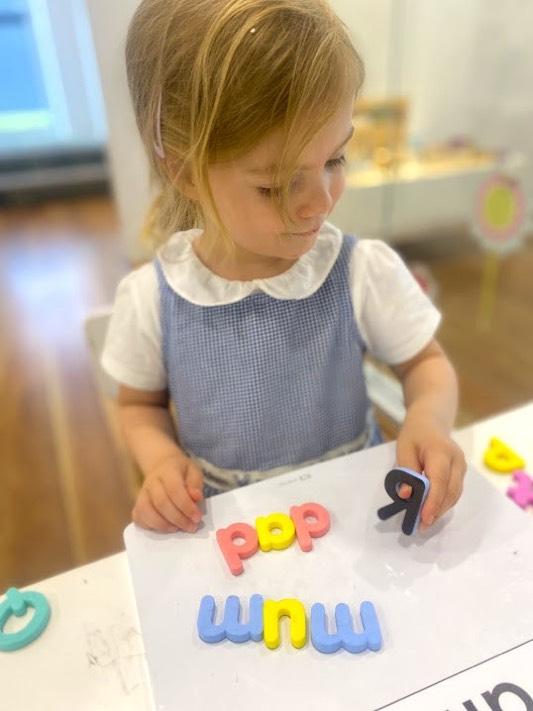
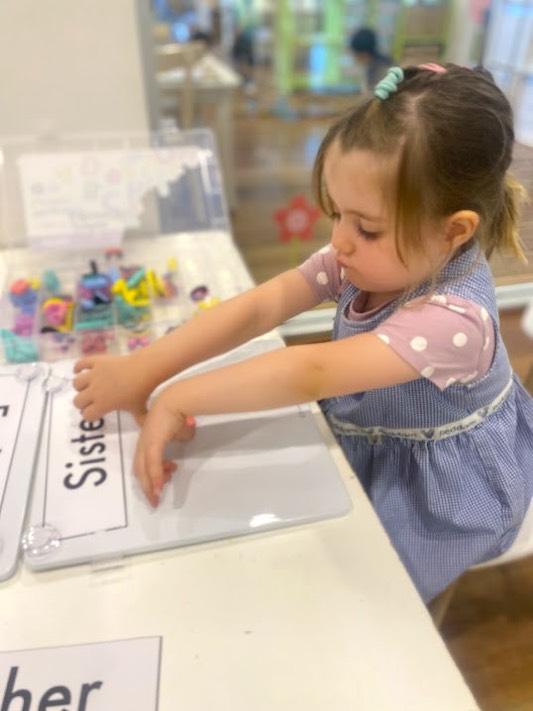
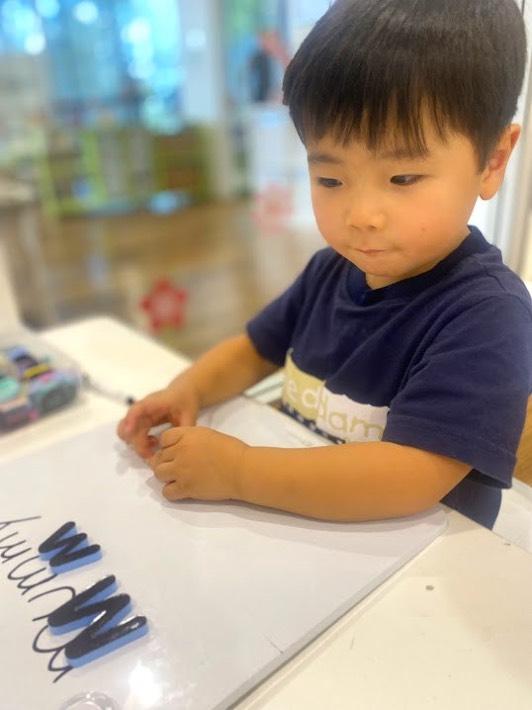
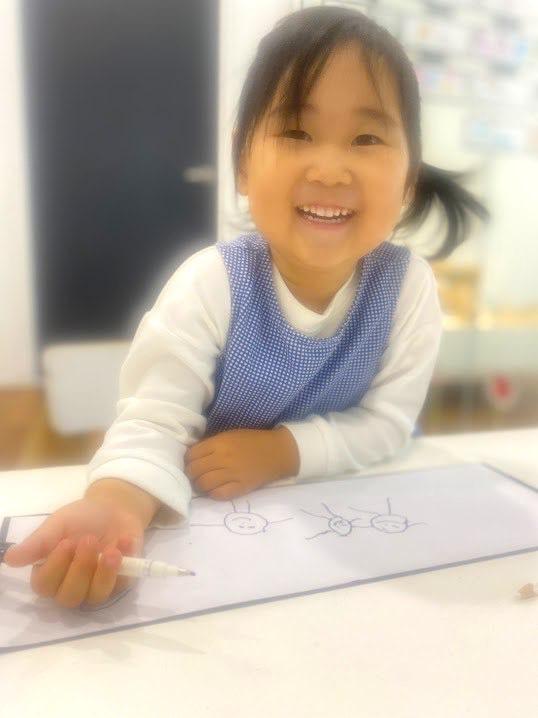
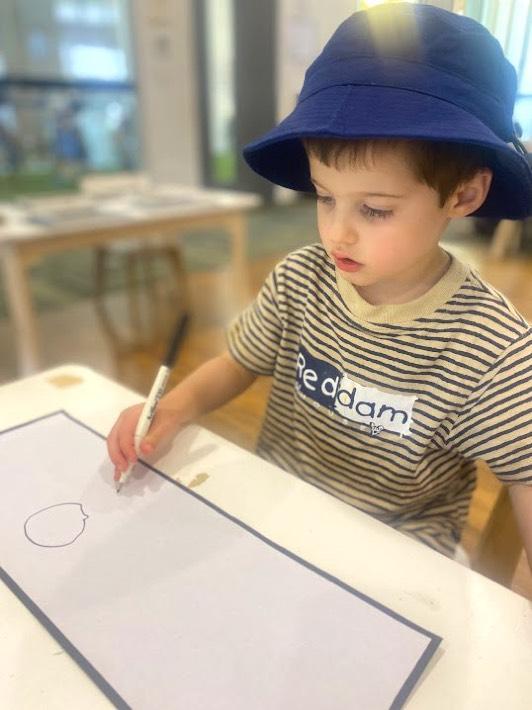
REDDAM EARLY LEARNING SCHOOL | ST LEONARDS NEWSLETTER 22
Stage 3E: Belonging
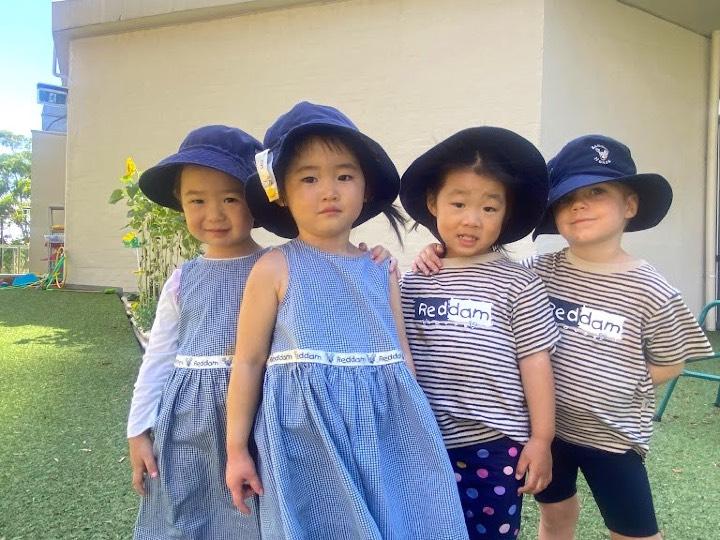
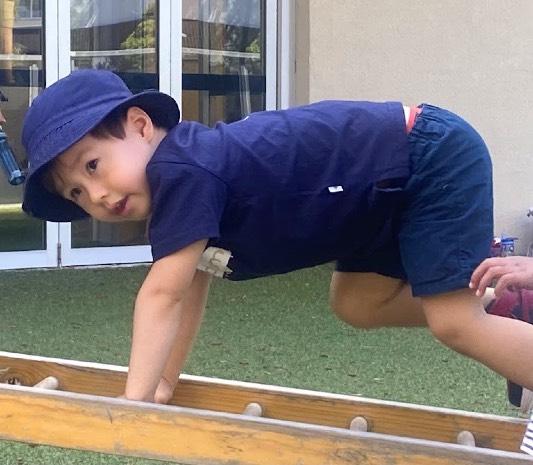
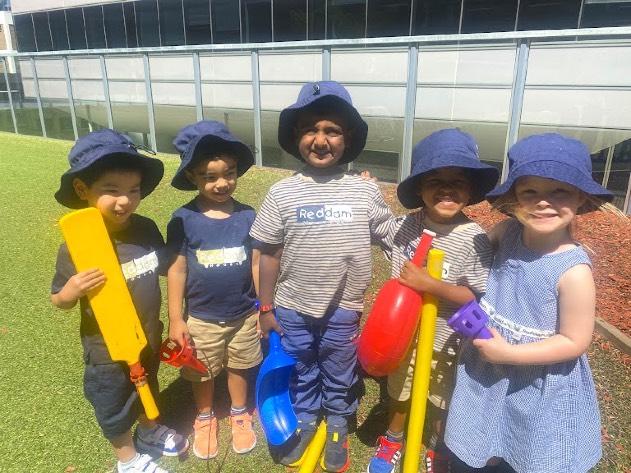
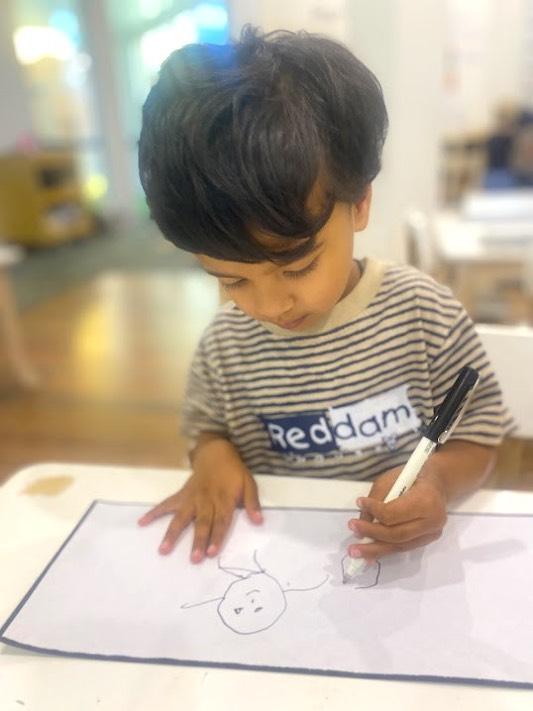
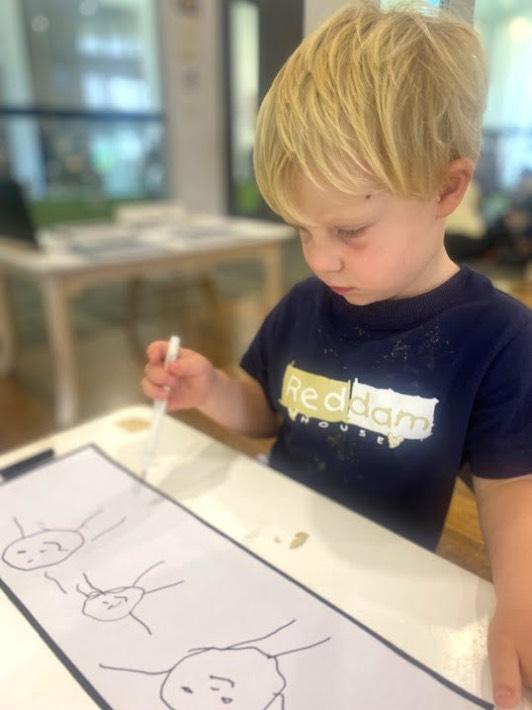
REDDAM EARLY LEARNING SCHOOL | ST LEONARDS NEWSLETTER 23
Stage 2/3 and 3R
Guess How Much I Love You
By Ms Gabriela Guimarães
February is a month devoted to celebrating love: love between couples, love among people, love shared from one person to another but the distinction between the different types of love is just as important. In early education, we seek to find learning opportunities in everything we do. We try to locate, acknowledge, and teach children about things when the opportunity arises. Monthly or annual celebrations are no different.
Valentine’s Day can be taken as an opportunity to introduce children to the concept of expressing their feelings for someone they care about, but it does not necessarily have to be in a romantic sense. Bonds of love can extend to immediate family, friends, family associates, or people who spend quality time with children.
It can be expressed verbally by showing appreciation for one another: “I love spending time with you.” It can be expressed physically such as encouraging pats on the shoulder and high-fives or through non-verbal communication such as body language or celebratory clapping. These actions signal to the other person that they are being appreciated; that they have done the right thing and such encouragement is likely to see that behaviour repeated.
Belonging stands as the third and final pillar within the Early Years Learning Framework and love in its varying forms plays an integral part of helping a child reach their intended learning outcomes. Knowing that a child is loved and appreciated helps them develop a strong sense of identity.
The same can be seen between children and their peers who can help others form their identity through expressed affection. Bonds such as those made by the love found in friendship help bolster a child’s emotional wellbeing, forming supportive friendship groups that can contribute toward creating effective communicators. Therefore, understanding the importance of recognising and encouraging love in its varying forms is an important lesson.
With these thoughts in mind, the greater lesson to be learned from Valentine’s Day is love does not have to be limited to romance but extends to friendship, support, and other forms as well. In addition, these should not be restricted to only one day a year. Instead, love between friends and love within the family should be promoted by expressing it often when it is warranted. As Nat King Cole once sang, “the greatest thing you’ll ever learn is just to love and be loved in return”.
REDDAM EARLY LEARNING SCHOOL | ST LEONARDS NEWSLETTER 24
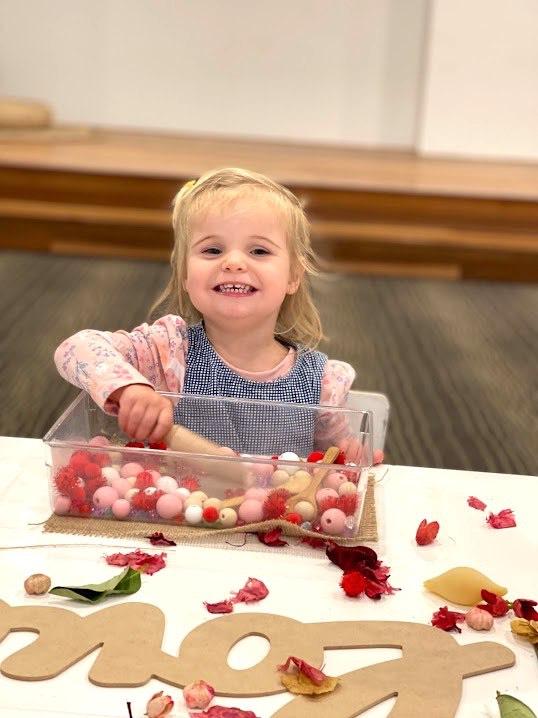
REDDAM EARLY LEARNING SCHOOL | ST LEONARDS NEWSLETTER 25
Stage 3R: Love is in the Air
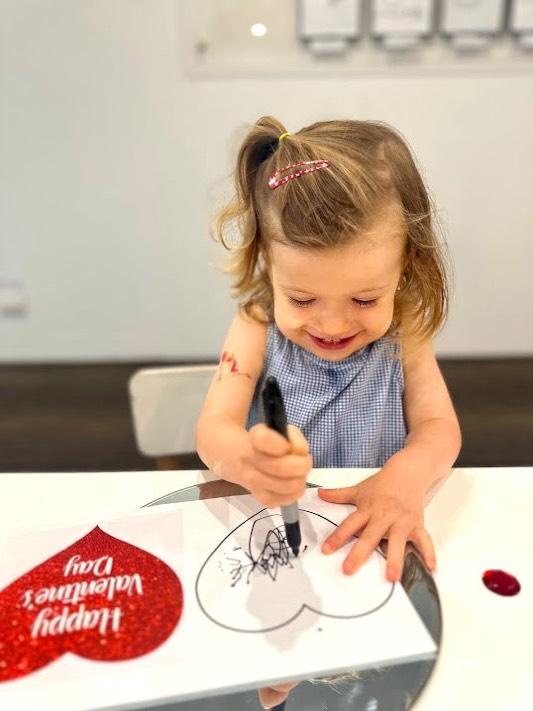
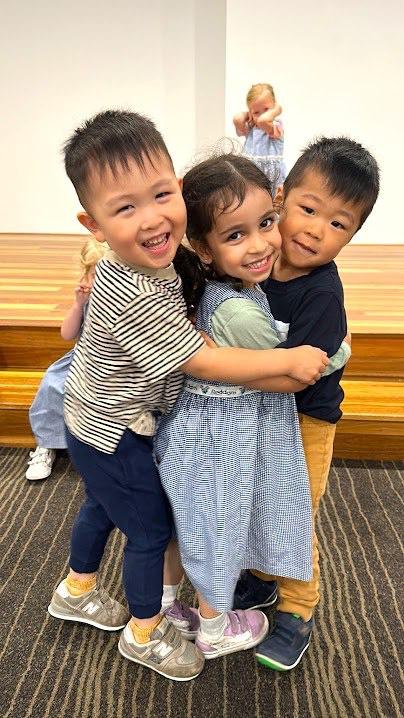
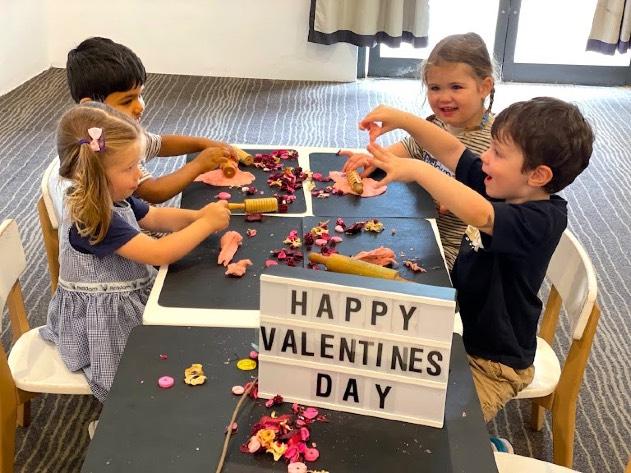
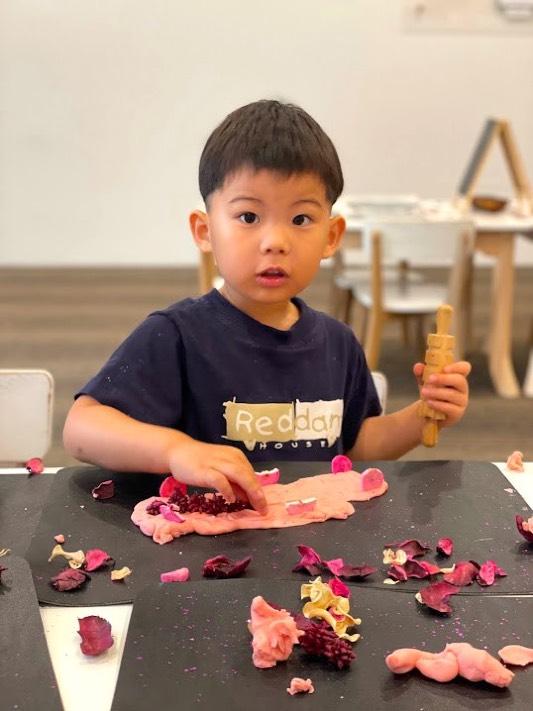
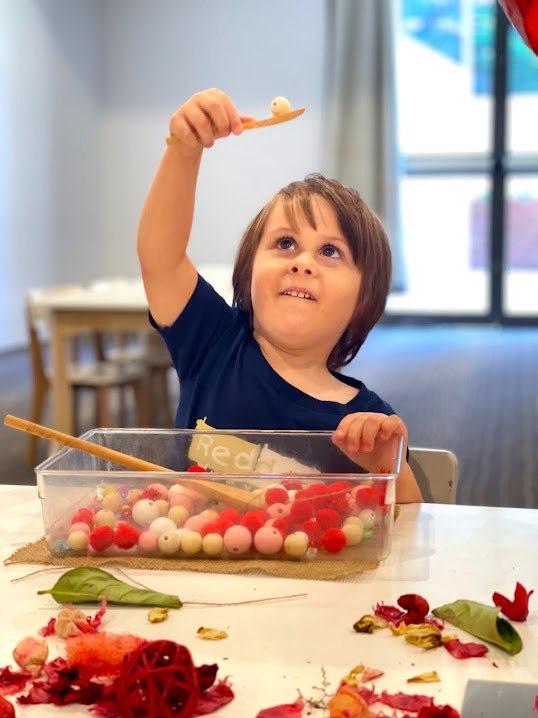
REDDAM EARLY LEARNING SCHOOL | ST LEONARDS NEWSLETTER 26
Stage 3R: Guess how Much I Love You
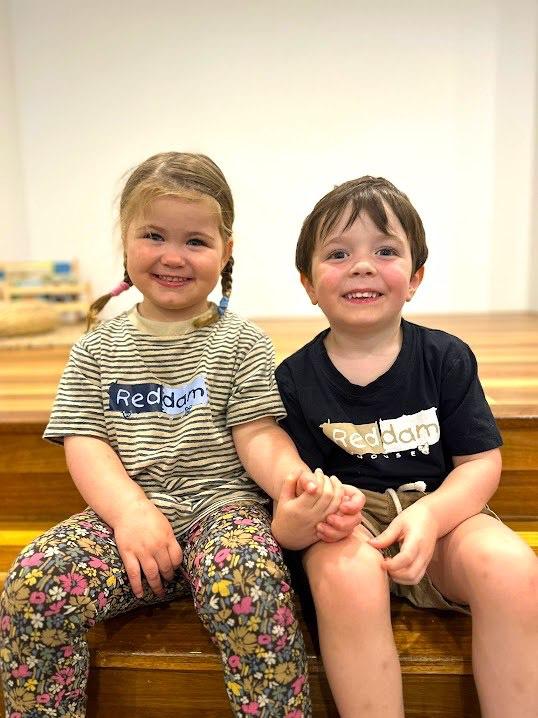
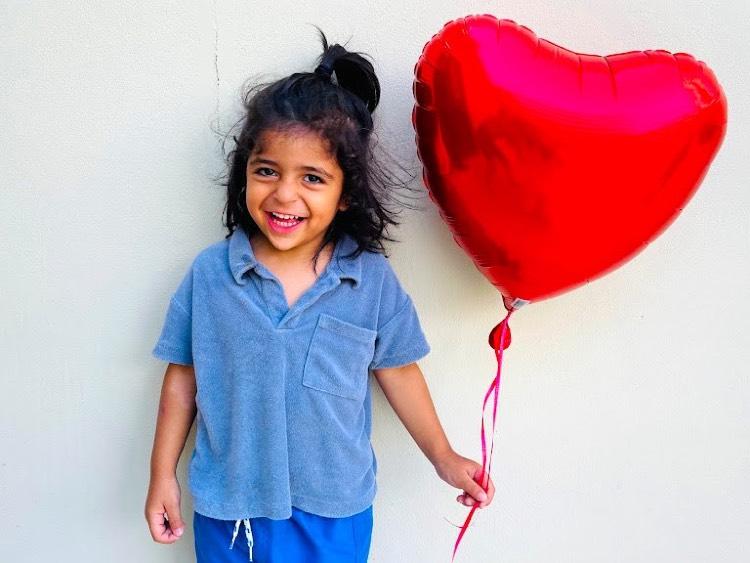
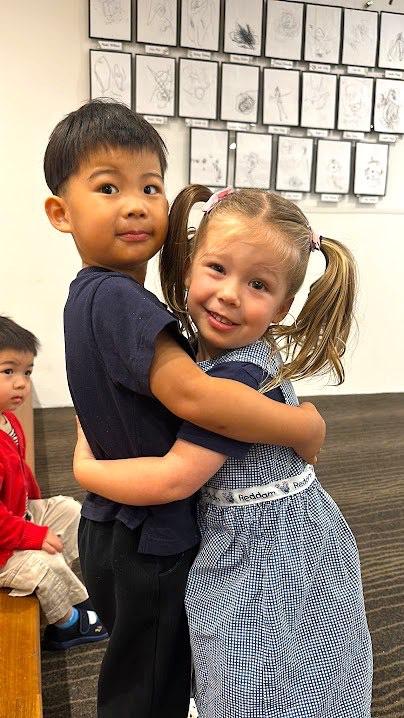
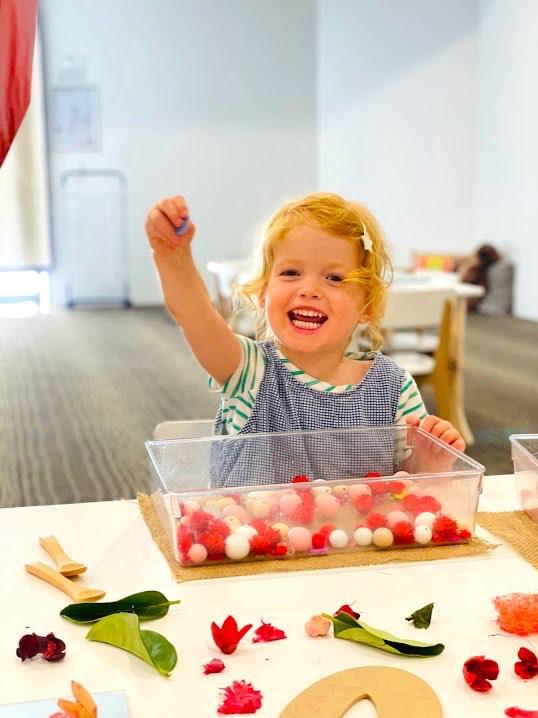
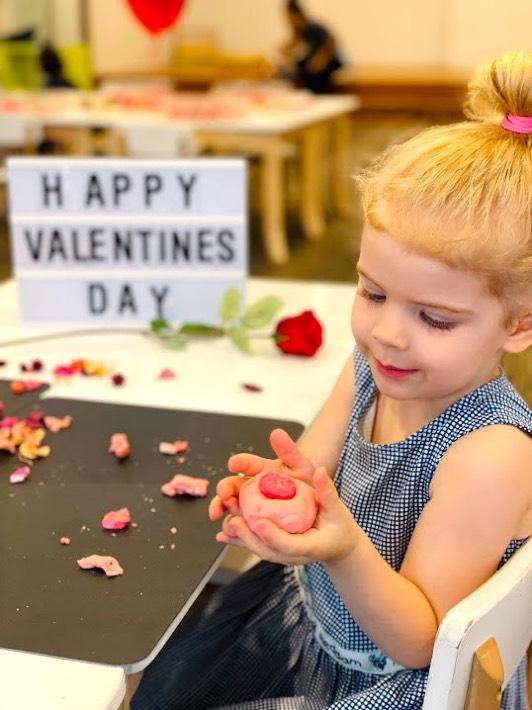
27
Stage 2/3: Love is in the Air
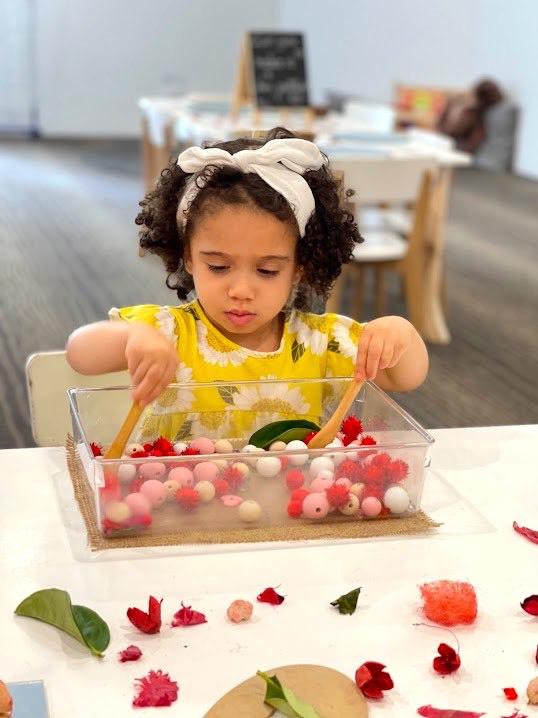
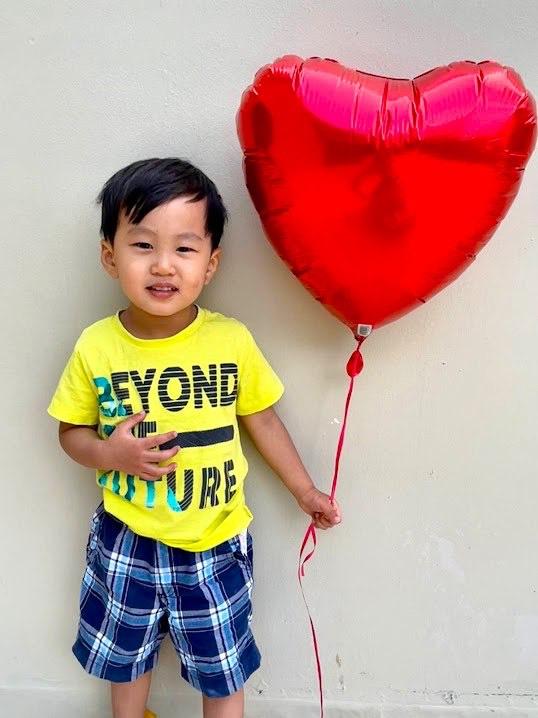
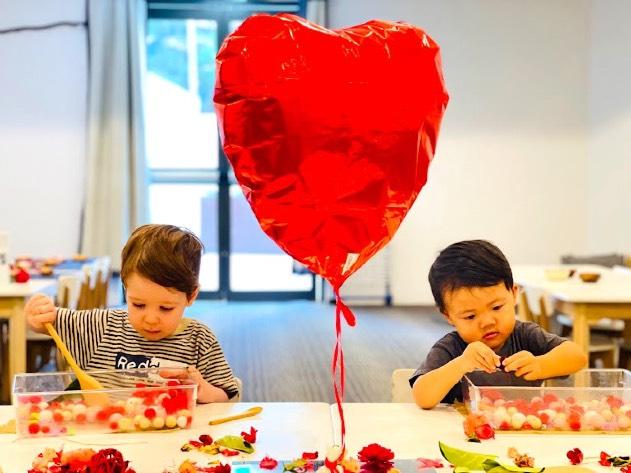
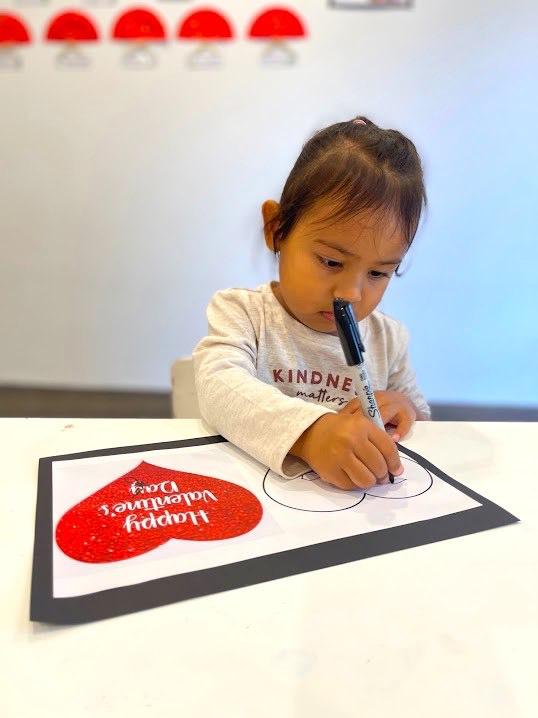
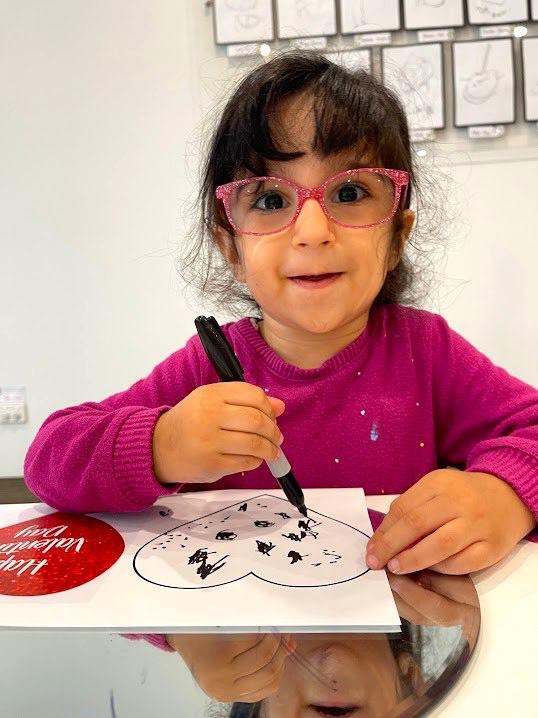
REDDAM
EARLY LEARNING SCHOOL
Stage 2/3: Guess how Much I Love You
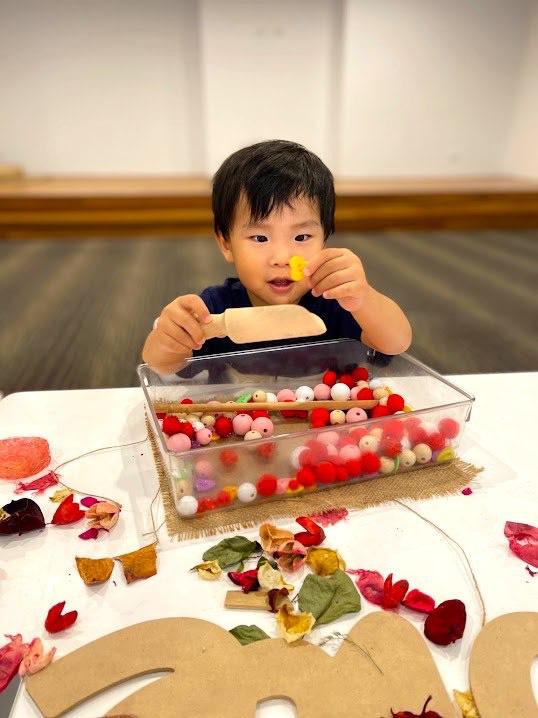
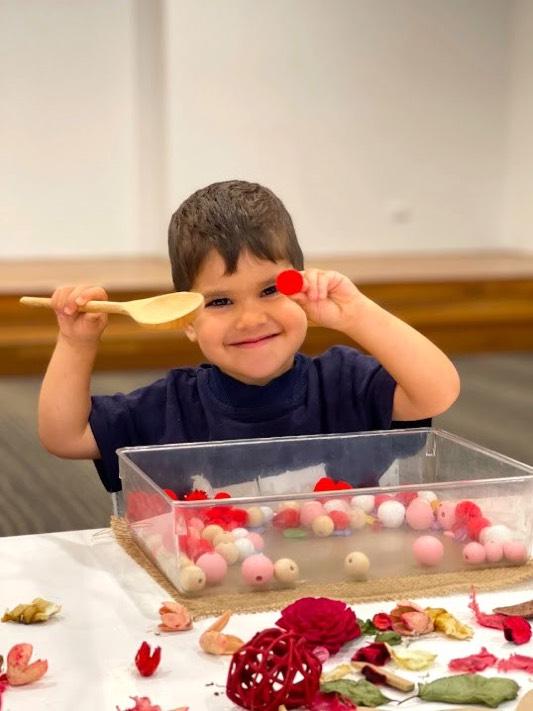
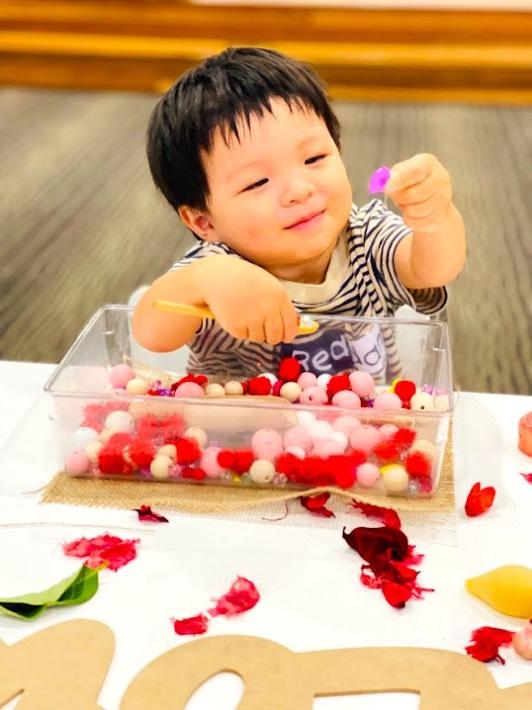
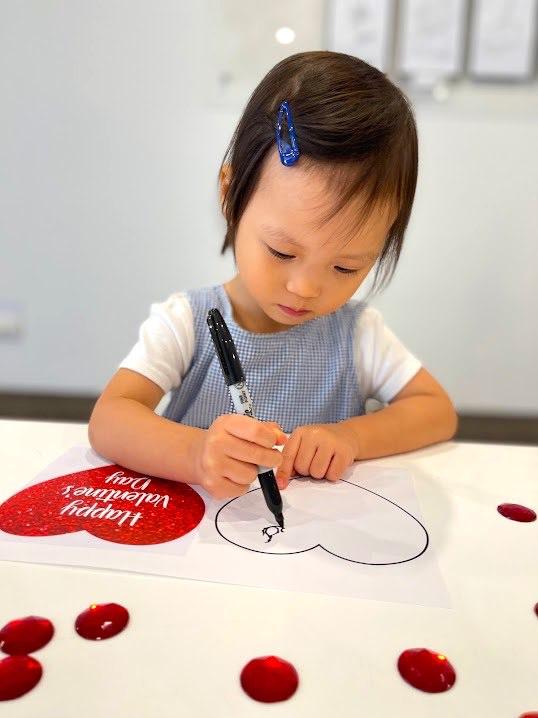
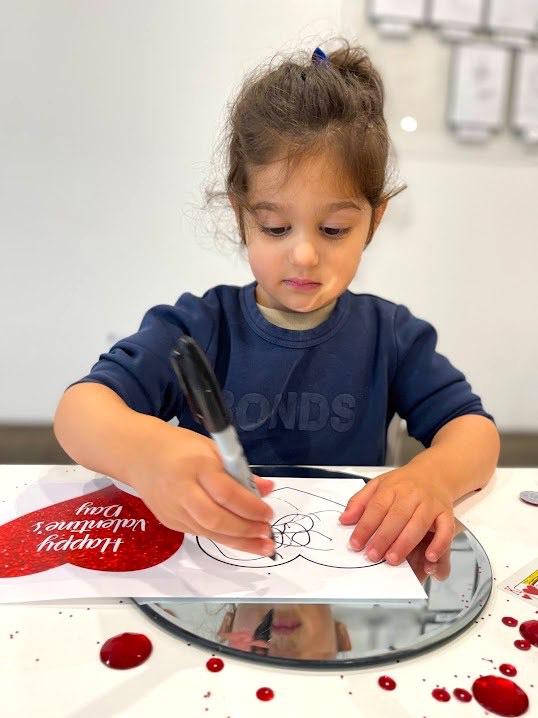
REDDAM EARLY LEARNING SCHOOL
Stage 2E
G is for Gardening
By Ms Madeleine Grant
We extended on last weeks flower provocation by venturing upstairs to the flower and vegetable gardens! First the children sat down in small groups and were given a handful of seeds to observe and examine. We asked the to think about seeds in both qualitative and quantitive ways; thinking about what colours, shapes and sizes they came in, how many they had, and what these seeds were for. Then they were given small trowels and asked to prepare the planter boxes for planting by stirring up the soil, placing the seeds, and burying them. Next they were given watering cans and asked to give the seeds a good drink of water to help them grow. We finished the experience by allowing them to explore the flower beds, using their gentle hands to carefully touch the plants, and asking them to describe what they could find.
H is for Heart
To tie in with Valentines Day, the children made heart themed artworks! They used cookie cutters in various sizes, and dipped them into shades of pink, purple and red paint. They pressed the cutters onto their paper and were delighted to see the heart shaped prints they left behind. During group times we talked about love; what is love, and what do we love? We read “When I’m Feeling Loved” by Trace Moroney, part of the wonderful “When I’m Feeling” series that explores the range of human feelings and emotions in a child friendly way. We talked about the tings the children loved; their families, their friends, their favourite toys, even their favourite foods! Love is a concept that is complex and yet also so simple, and in the early years it is important that children know they are loved, so they can learn to love in return.
I is for Ice Cream
For the letter I we set up a sensory and dramatic play table inspired by ice cream! Here the children found white play dough, cones, and scoops, as well as glitter, pom poms, corks, and other loose parts to help them create delicious-looking ice cream treats! They sat in pairs and were allowed to approach the task however they wanted. Some focused on kneading the dough, while others collected the loose parts. Once they were comfortable with the experience we showed them how to use the scoops to create balls of ice cream to place in the cones! They then used the loose parts to decorate their desserts, and loved showing off their creations to their friends
Housekeeping
Can all parents please ensure all children’s clothing and belongings are clearly labelled!
REDDAM EARLY LEARNING SCHOOL | ST LEONARDS NEWSLETTER 30
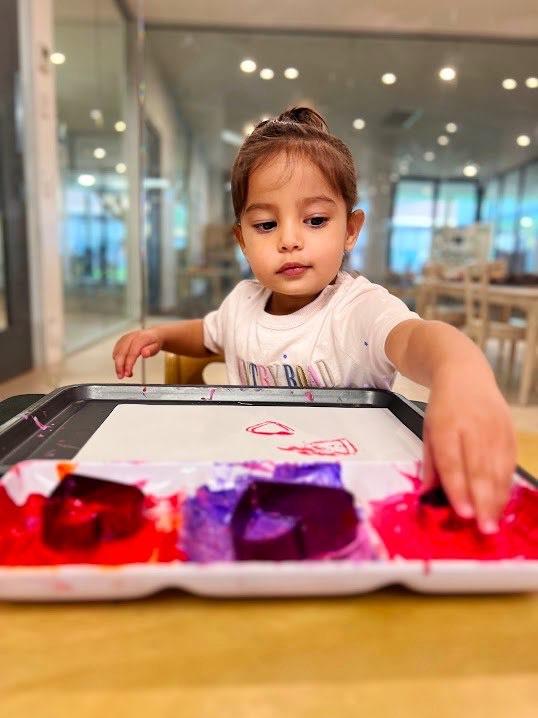
Stage 2E: G is for Gardening
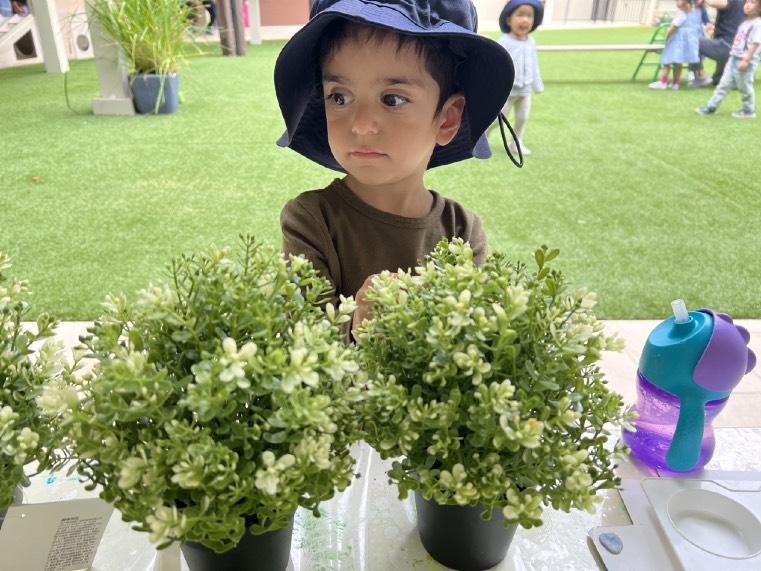
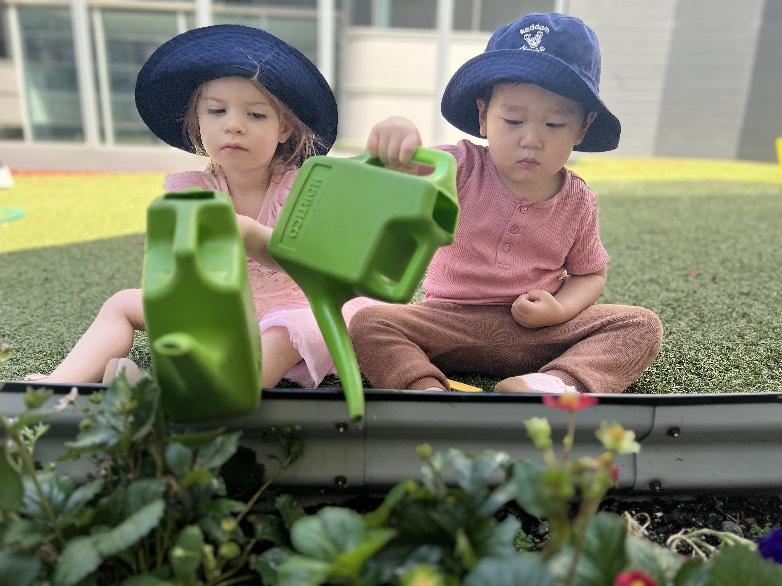
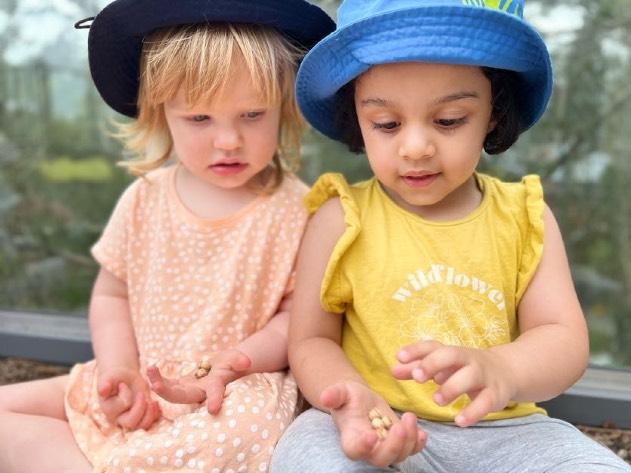
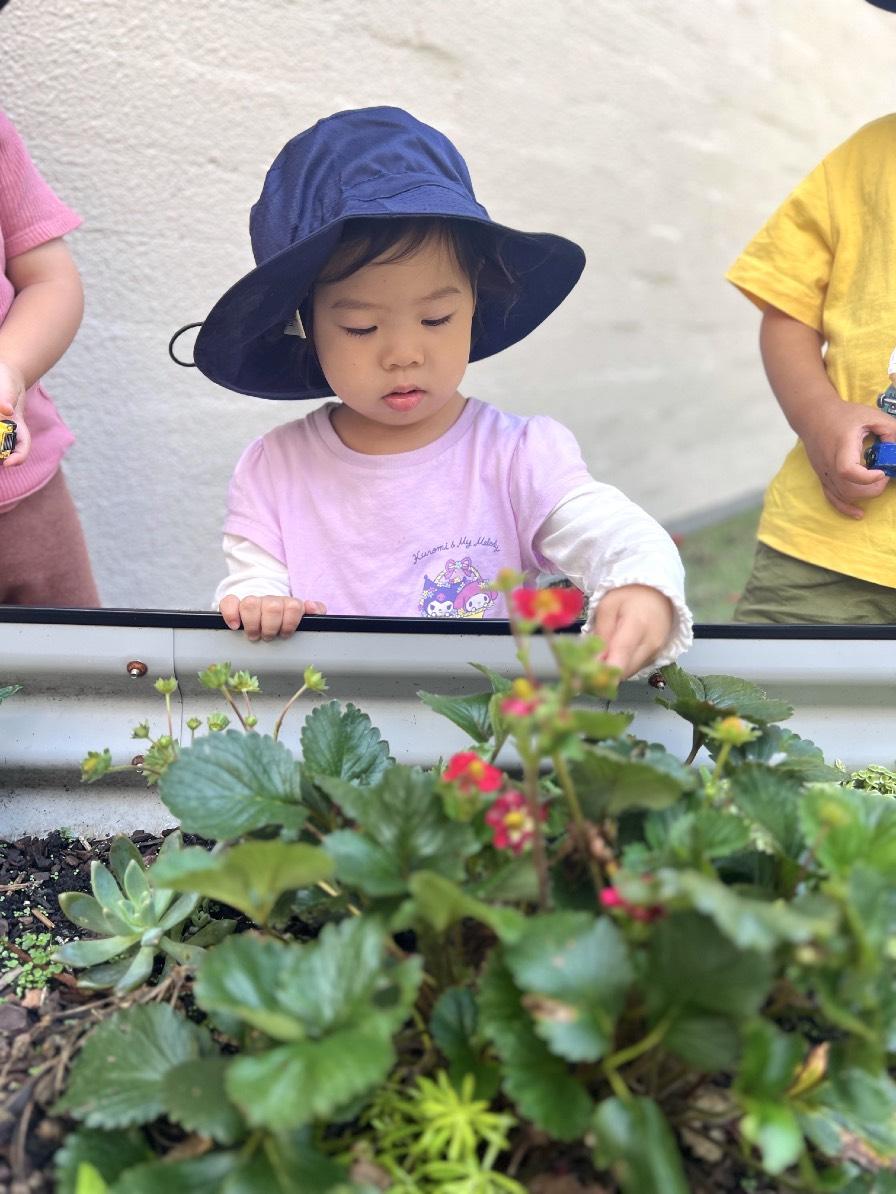
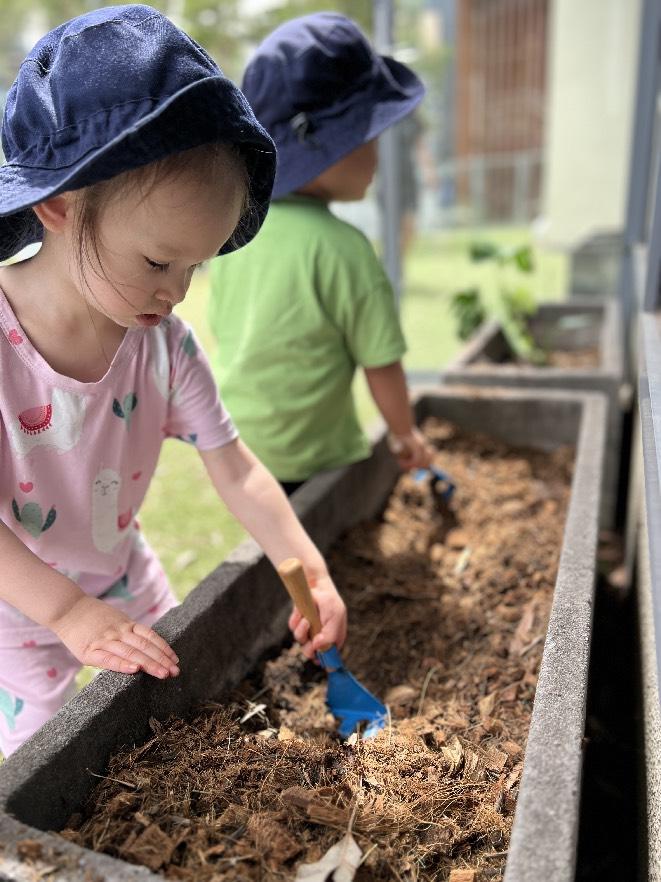
REDDAM EARLY
LEARNING SCHOOL
Stage 2E: I is for Ice Cream
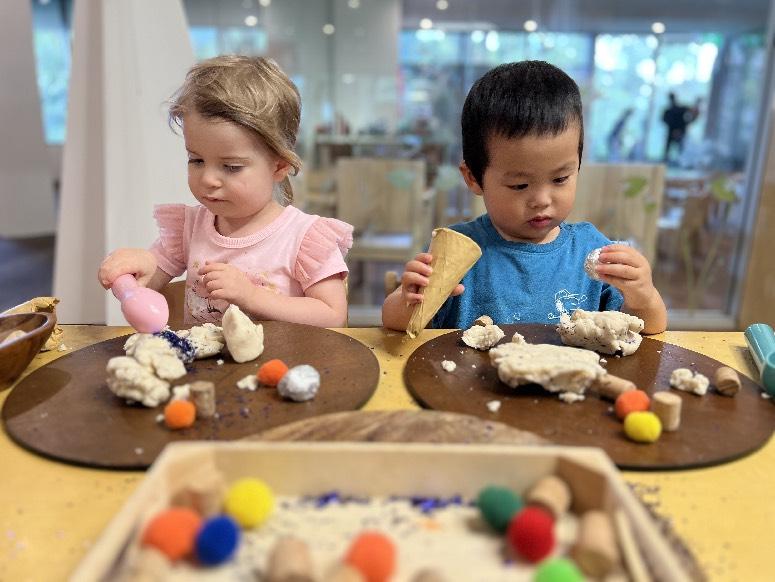
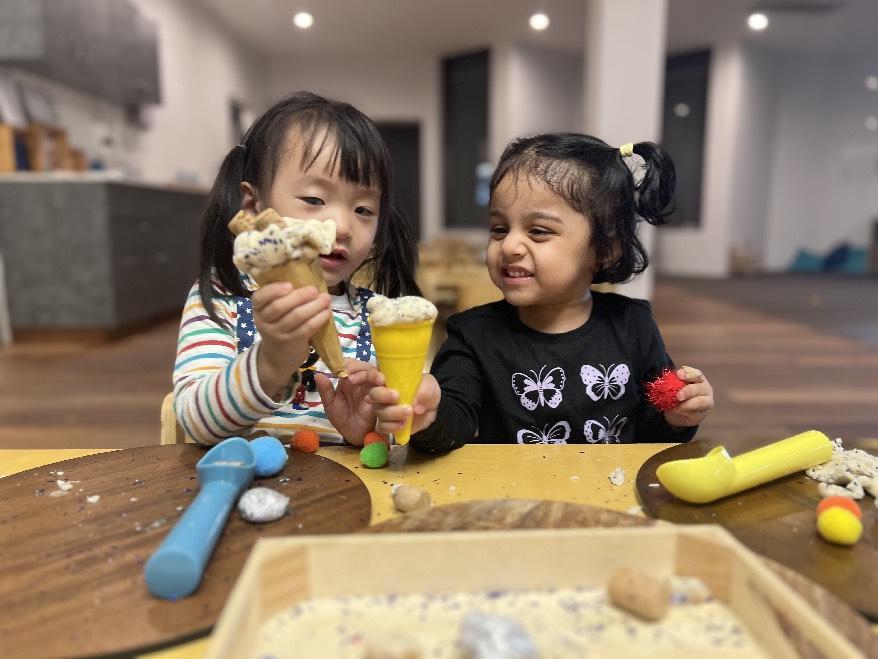
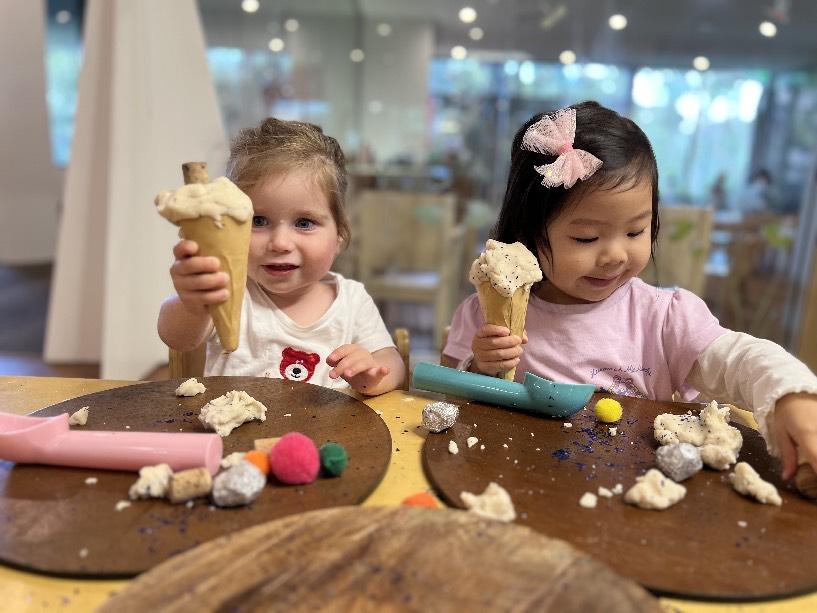
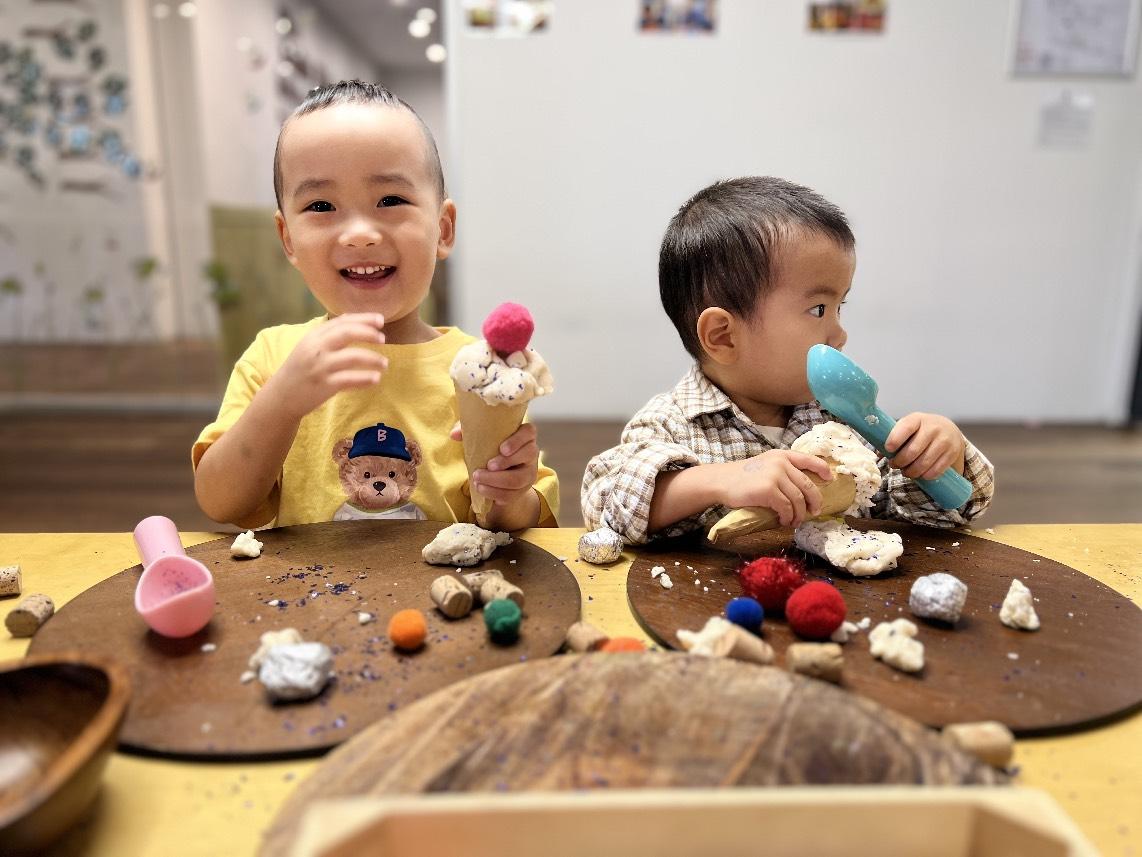
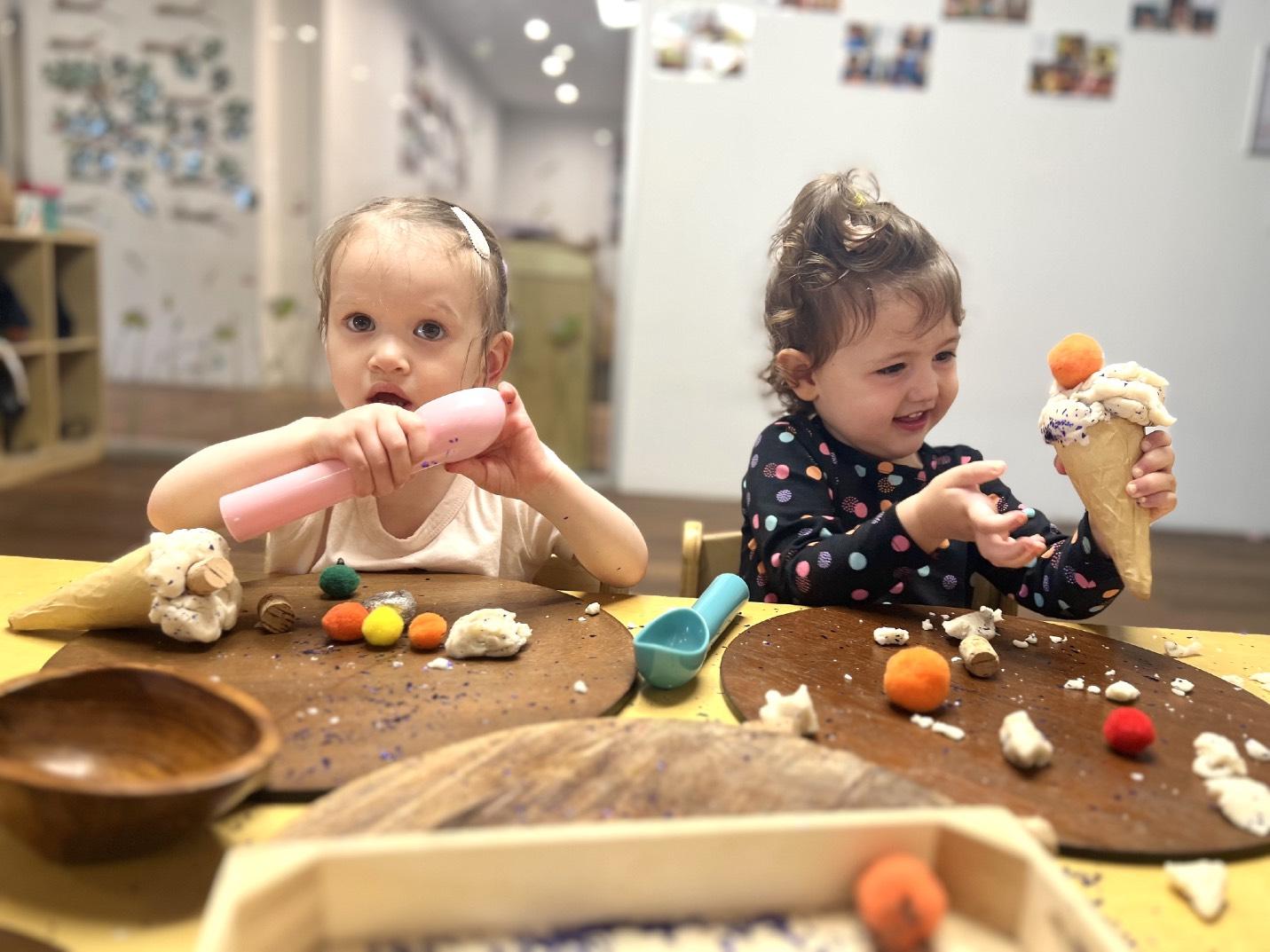
33
By Ms Ailene Caballes
Celebrating Valentine’s Day and Exploring Alphabet Provocation: “E is for Emergency” and “F is for Farm”
Such an exciting start of the week at Stage 2R this week as the children celebrated love and kindness on Valentine’s Day! Educating children on the importance of being kind and caring towards one another by sharing and using gentle hands with friends is in line with our Reddam school practice of being gracious and courteous. The children had a wonderful time painting their kindness-heart hats as a reminder to be loving, kind and caring towards one another as friends. The children also enjoyed receiving their special kindness cards from Ms Ailene with fun heart shaped erasers and dinosaur badges to play with.
“Play is the Work of Childhood” - Jean Piaget
In accordance with Piaget’s theory on the stages of play that children learn and develop through, research discovered that children at this stage of their development explore their learning environment through pretend play or dramatic play. Dramatic Play can take form through role play where the children can exercise their imaginative and creativity skills and be whoever they would like to be. Role play helps children in the early years make sense of the world around them. The “E is for Emergency” provocation helps to strengthen the children’s creative and imaginative learning and development. It also helps to further develop their verbal communicative skills as they converse with their friends and educators.
Froebel's philosophy on early-years education is based on the four principles of free selfexpression, creativity, social participation and sensory motor expression that contributes to every child’s early years learning and development. In relation with Froebel’s theory, the “F is for Farm” provocation helps to encourage children to explore farm animals and their environment. The sensory experience provides children the learning opportunity to experience water play as they help give the farm animals a bath. The provocation supports their development of fine motor skills and builds on their creativity and imaginative skills.
Next week, the Stage 2R children will be exploring the letter G and letter H in our funfilled provocations!
Stage 2R Parents and Families Notice Board:
Please continue to send through your family pictures if you haven’t yet so I can add them to our family tree display. A friendly reminder to please label all of your child’s belongings to avoid them getting lost or misplaced. Thank you.
Stage 2R
REDDAM EARLY LEARNING SCHOOL | ST LEONARDS NEWSLETTER 34
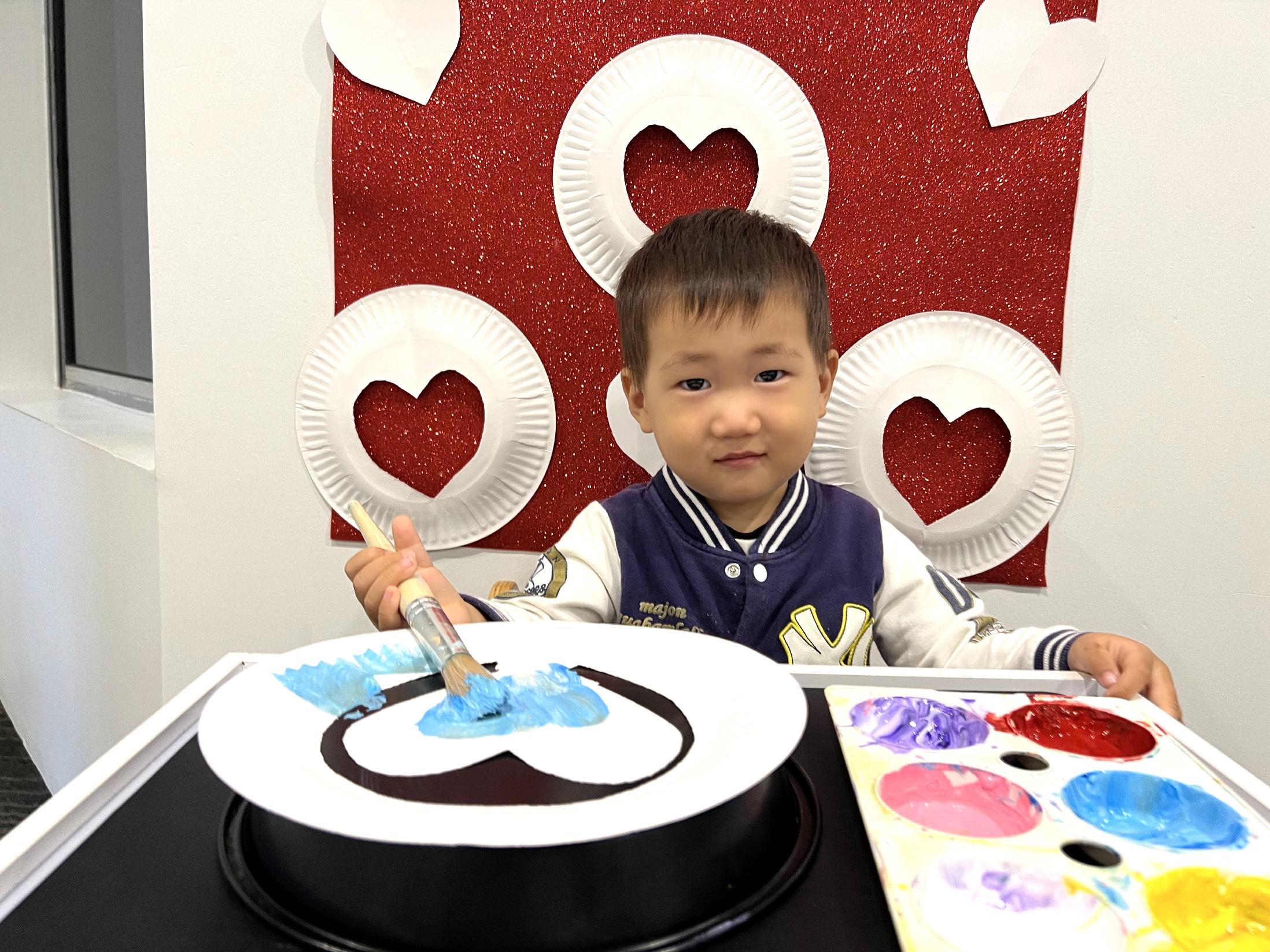
Stage 2R: E is for Emergency
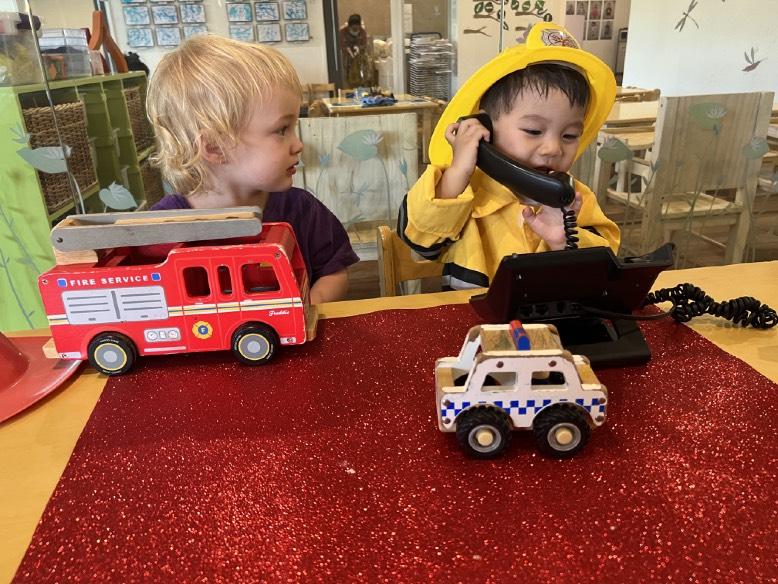
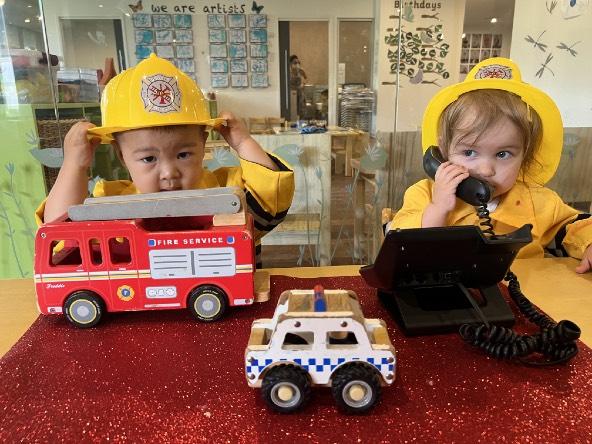
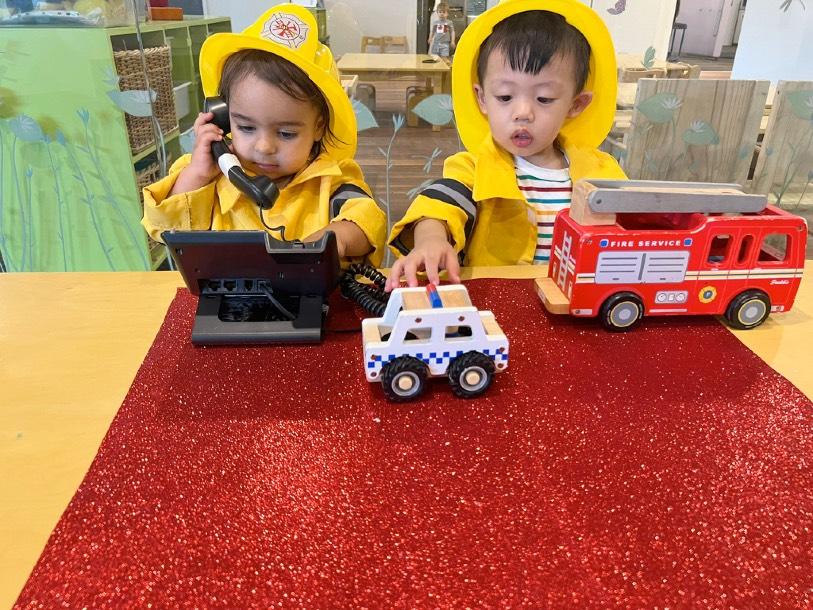
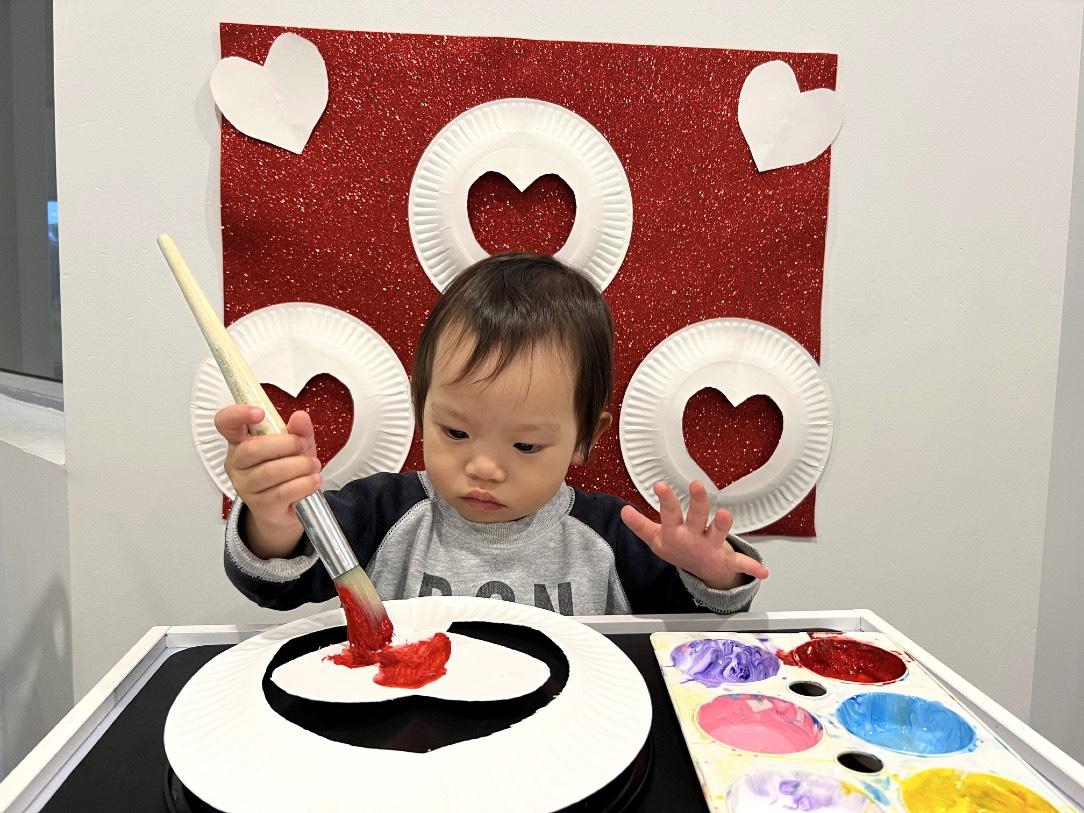
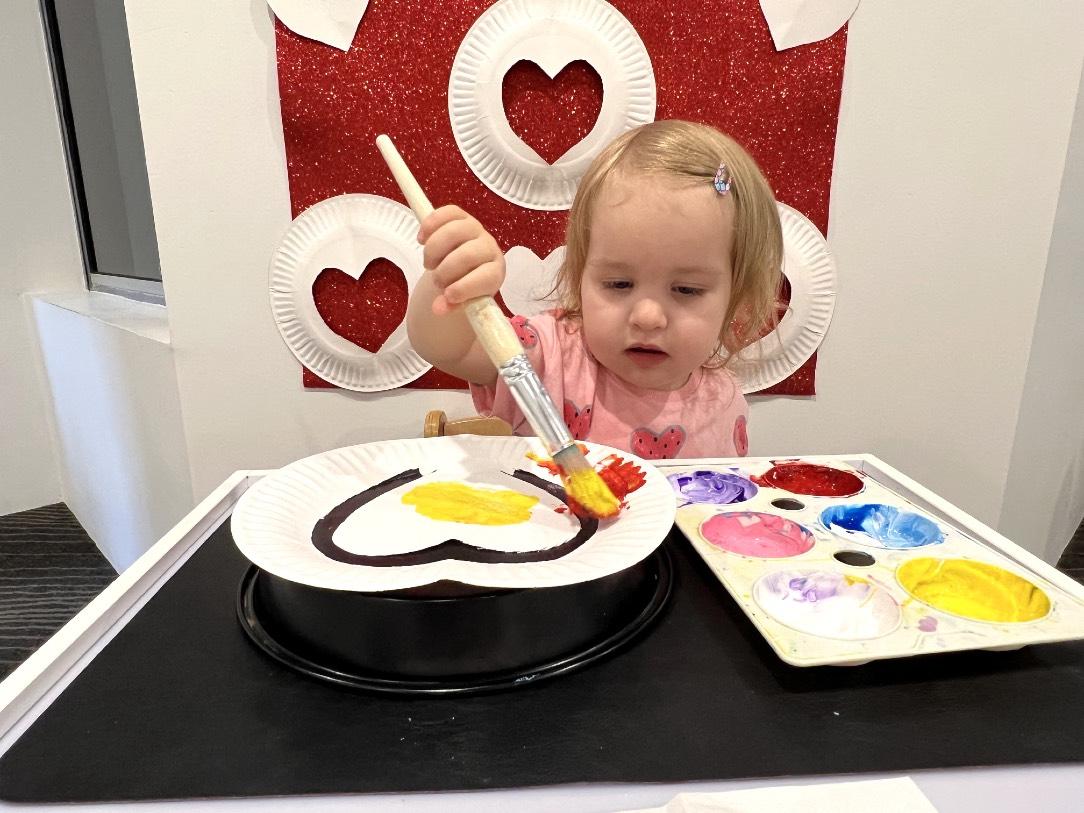
| ST LEONARDS NEWSLETTER 36
Stage 2R: F is for Farm
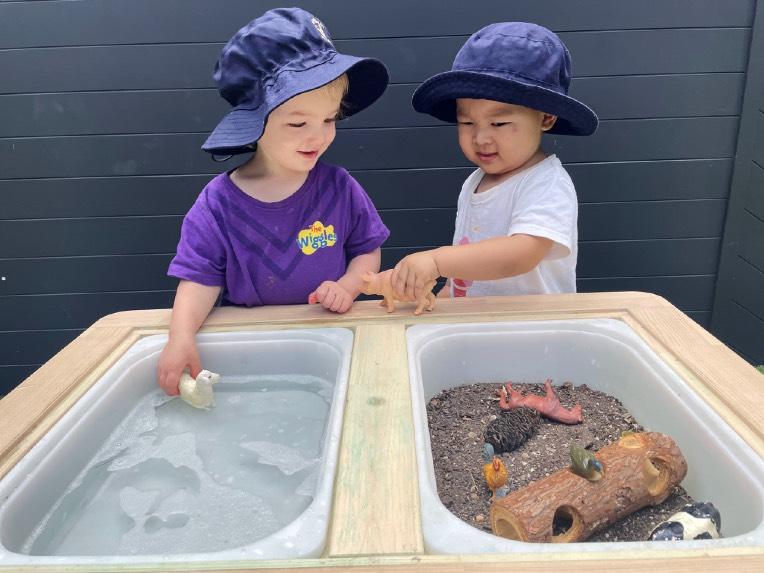
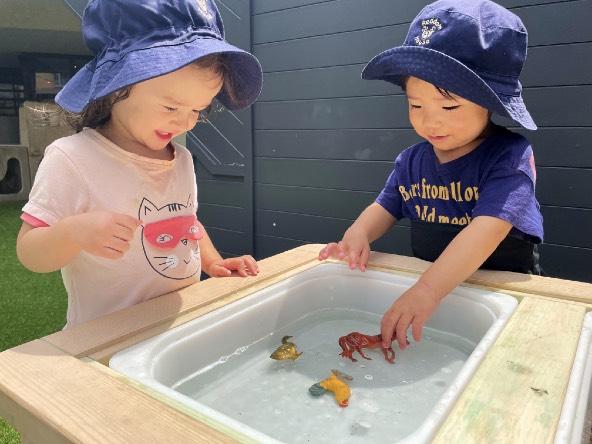
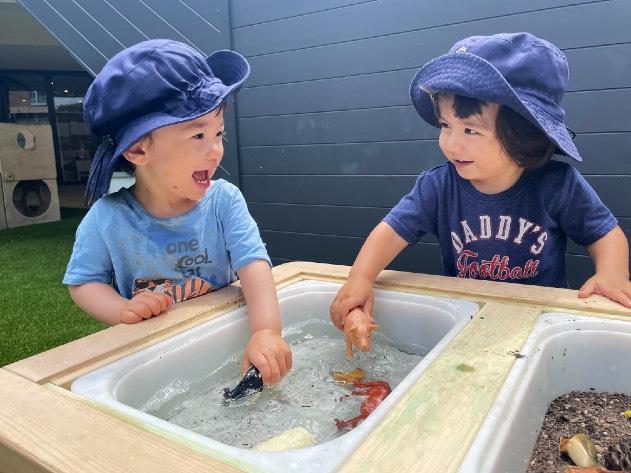
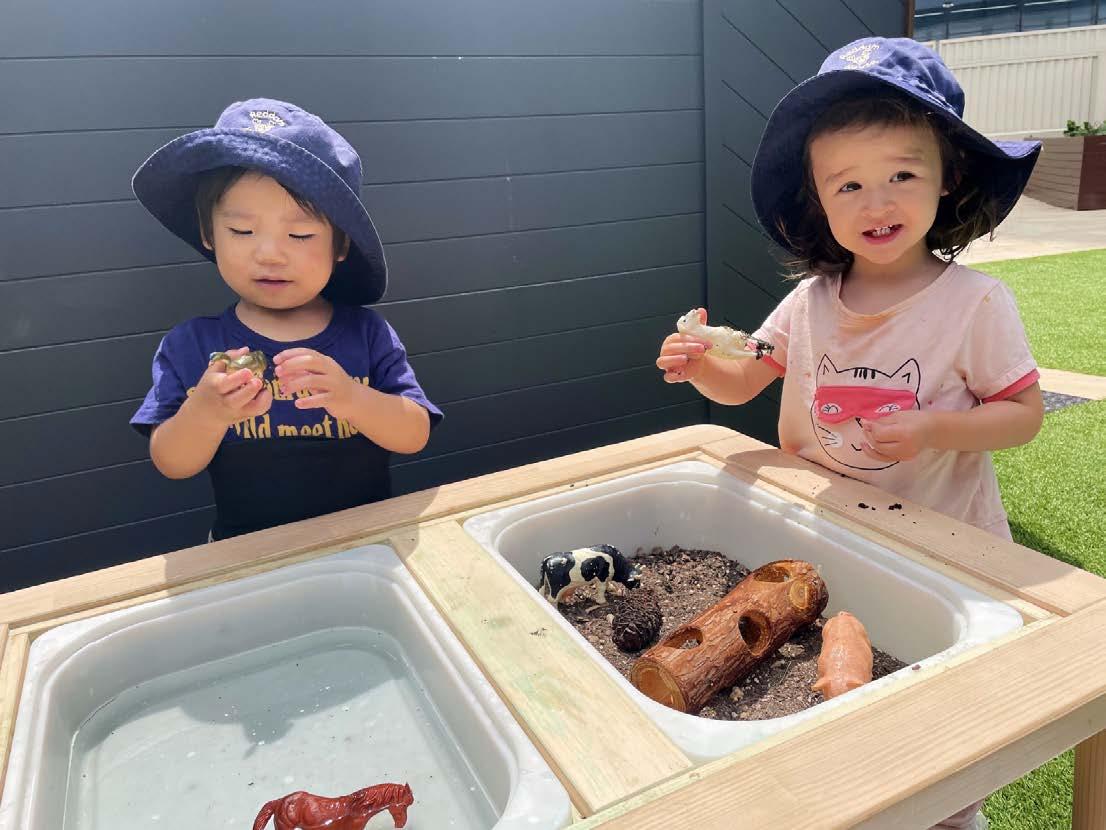

REDDAM EARLY LEARNING SCHOOL | ST LEONARDS NEWSLETTER
By Ms Alessia Angilletta
“Play is the highest form of research”
- Albert Einstein
Dear parents
We continue to learn about Ocean and sea animal, the children are mesmerised by the decoration and picture of the sea and of different marine life, during group time we had the opportunity to discuss the differences and we continue to do so during this week provocation, that was great as it really support speech development, colour recognition as well as other cognise skills and create bond with their peers.
This week’s activity include Ocean foam sensory tray, sensory bag table and a very colourful Ocean habitat tuff tray.
The first activity was so much and the whole class enjoyed very much, we used shaving foam and differ food colouring to recreate the ocean foam from the waves, the children used a natural wooden stick to move the foam around to find the fish hidden under it, one used their hands some were a bit reluctant and used the stick, either way this activity really supported their fine motor skills.
The sensory bags on the table were also another favourite, each bag had different items in it some had shells, some had fish and sand other had squids and octopuses in it, this gave them an opportunity to see the difference of marine life, of colours and textures as well, great for mindfulness, focus and over all motor skills
The tuff tray also provided a great opportunity for the children to work collectively with their peers, use their words as they stood next to each other and observe the different features of the tray, moreover it helped them bond with peers and develop connection with one another.
Art focused on using bubble wrap and bright neon colour to create their very own starfish, we have it displayed on our classroom wall, feel free to some and check it out at drop off or pick up.
Stage 1E
REDDAM EARLY LEARNING SCHOOL | ST LEONARDS NEWSLETTER 38
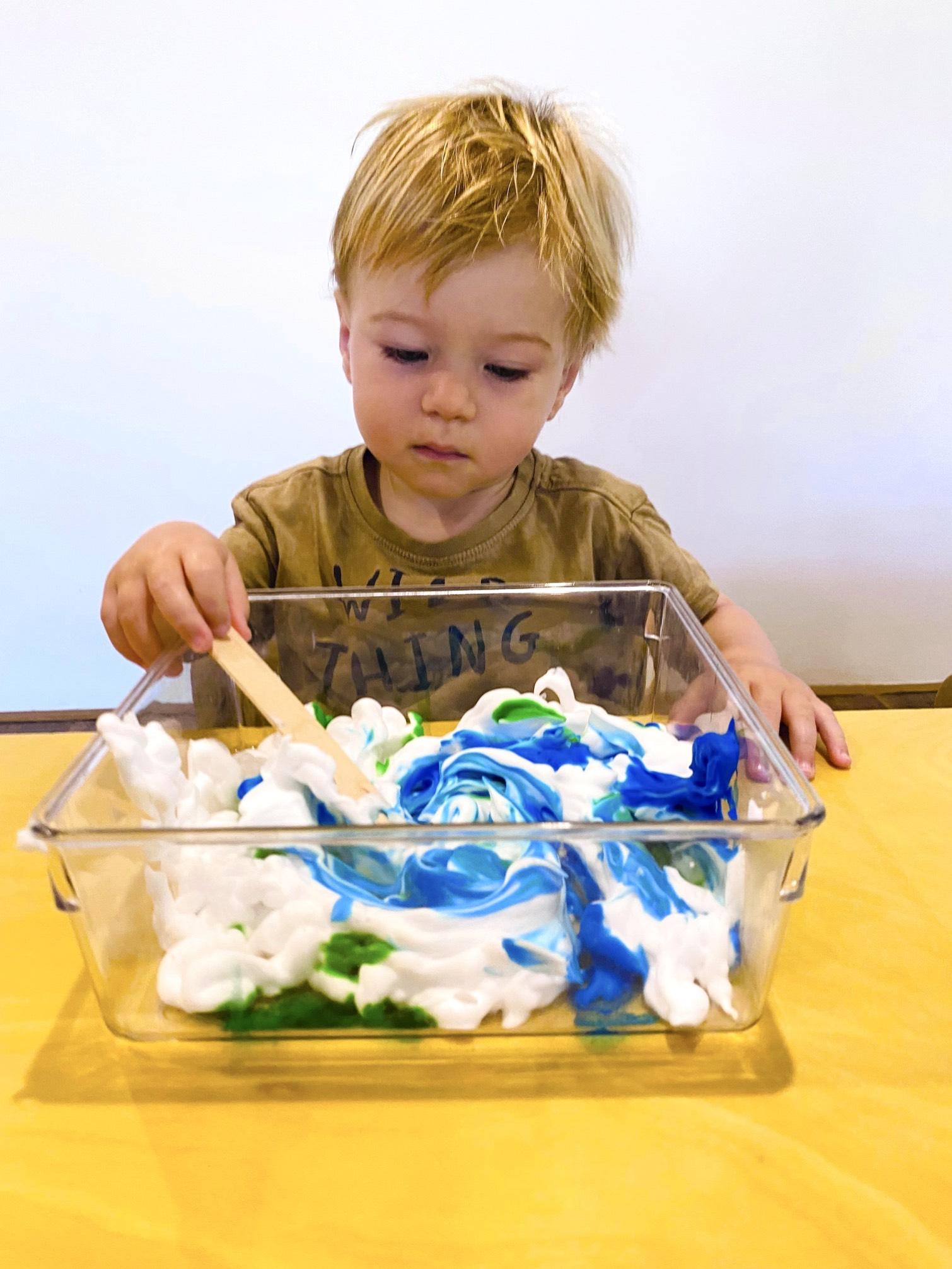
Stage 1E: Ocean Sensory
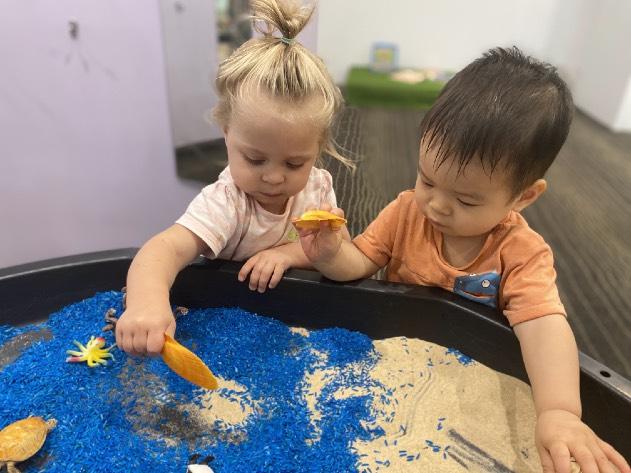
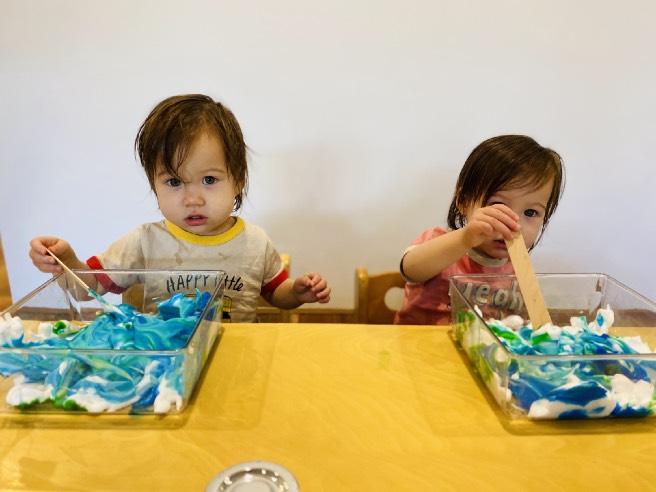
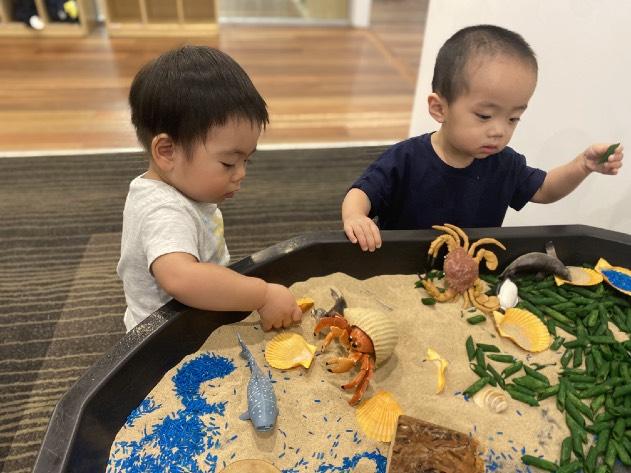
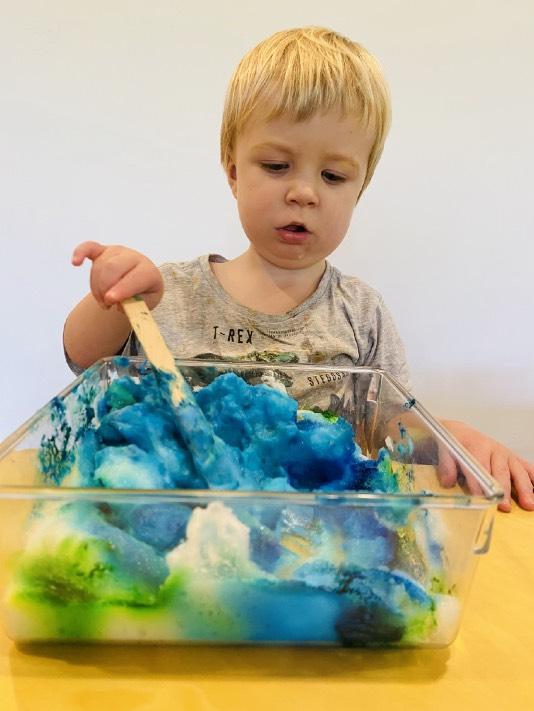
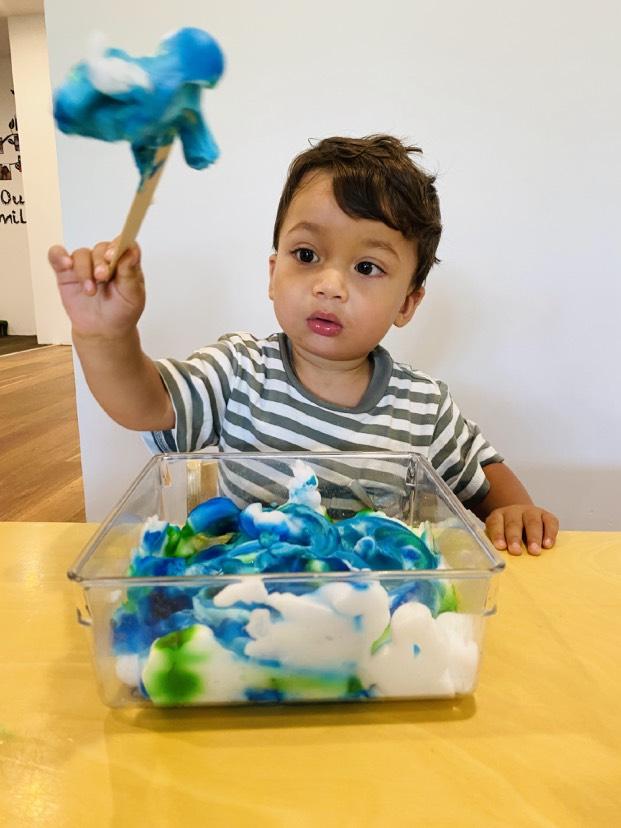
REDDAM EARLY LEARNING SCHOOL | ST LEONARDS NEWSLETTER 40
Stage 1E: Under Sea Invstigation
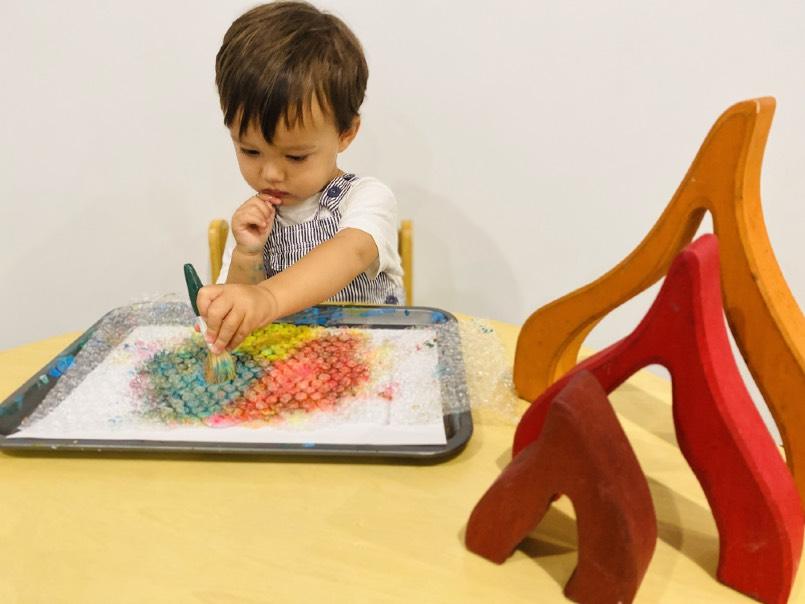
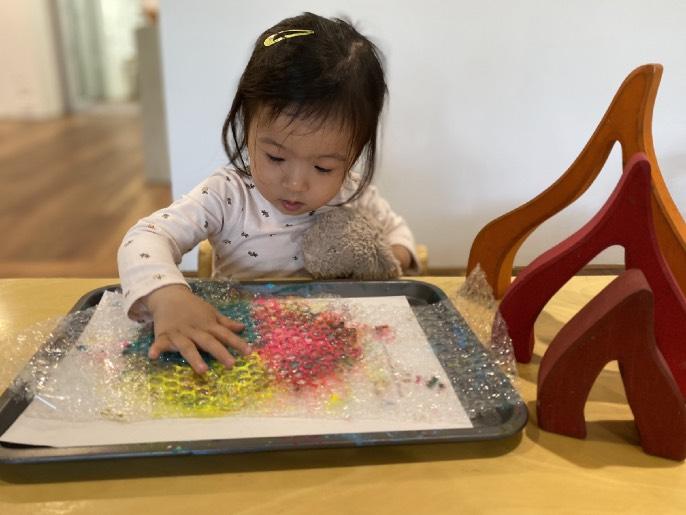
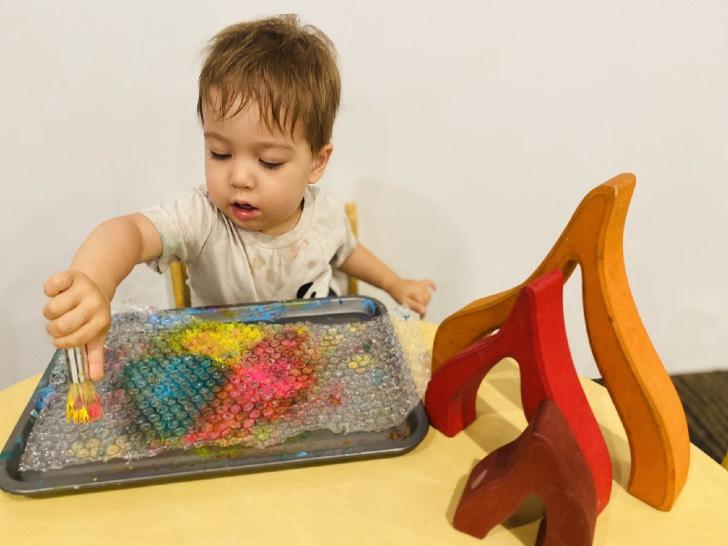
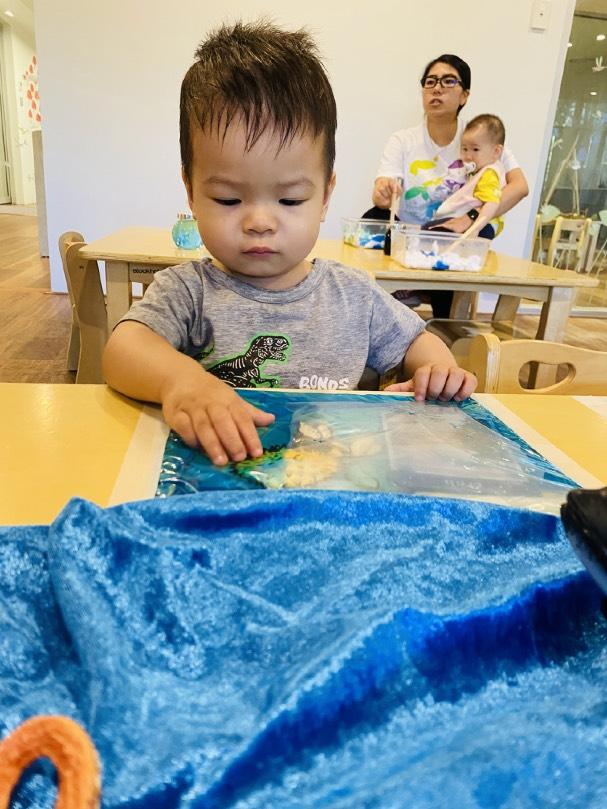
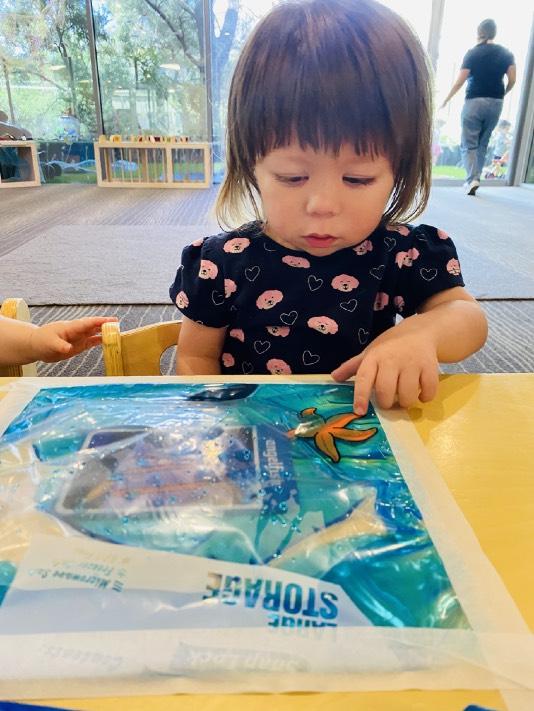
REDDAM
EARLY LEARNING SCHOOL
Stage 1R
Incy Wincy Spider
By Ms Amanda Felton
Oh! Look there is a spider…as we dangle the spider in our dramatic drama experience. With amazement upon the everyone’s little faces. And wanting to grab and touch the spider was just great amusement for spoke of the Babies. There was some Babies who really didn’t want the spider to come close. As we sang the nursery rhyme Incy Wincy spider, many of the Babies bobbed to the actions of what the spider is doing with a lot of enthusiasm . The vocal movements of sound that really engage each of the Babies as it would draw their attention to and focus. Wonderful effort Babies!
We also turned our attention to painting the spider, by using a net brush and dabbing into two tone paint and then stamping onto the paper. The actions and movement of experience helps Babies to form and develop their confidence and coordination, along with focus, as this can be challenging for young Babies of this age.
Drama
Full of movements and expressions of sounds that really help young Babies to develop their confidence, skills in thinking and physical learning and focus as they have to focus on what their teacher is instructing them to do.

42
Stage 1R: Incy Wincy Spider
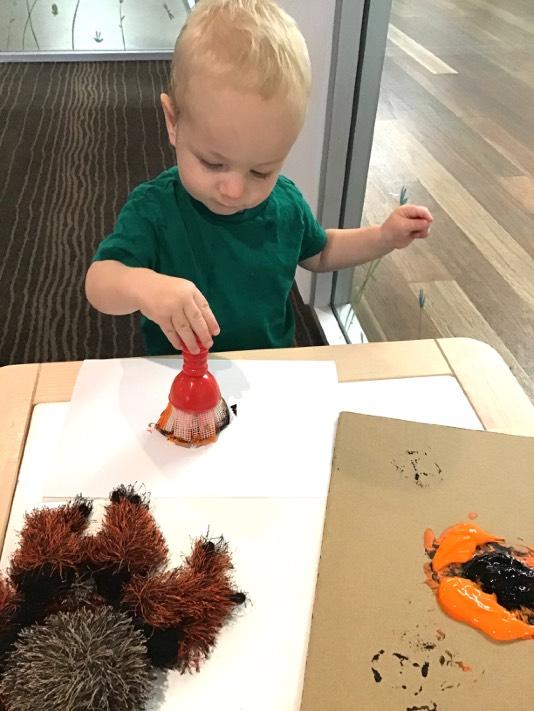
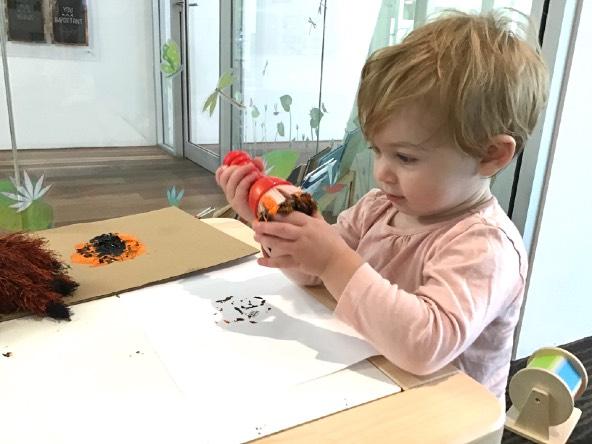
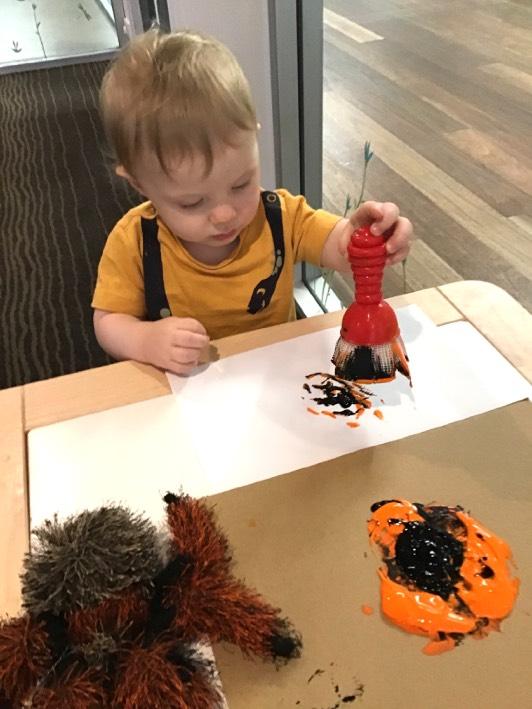
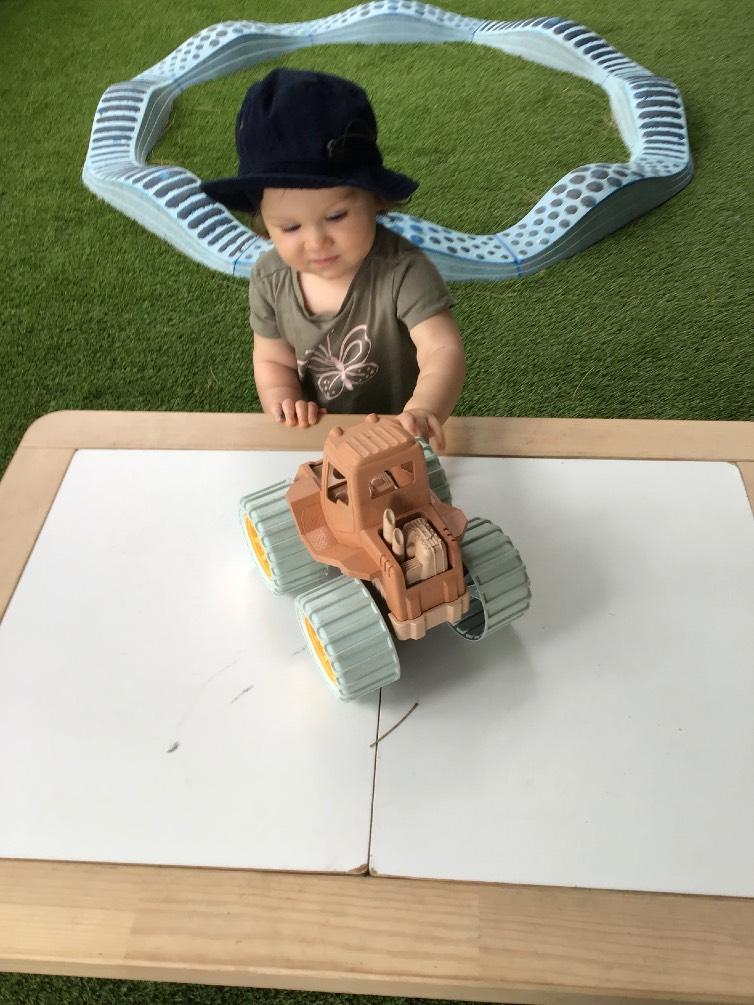
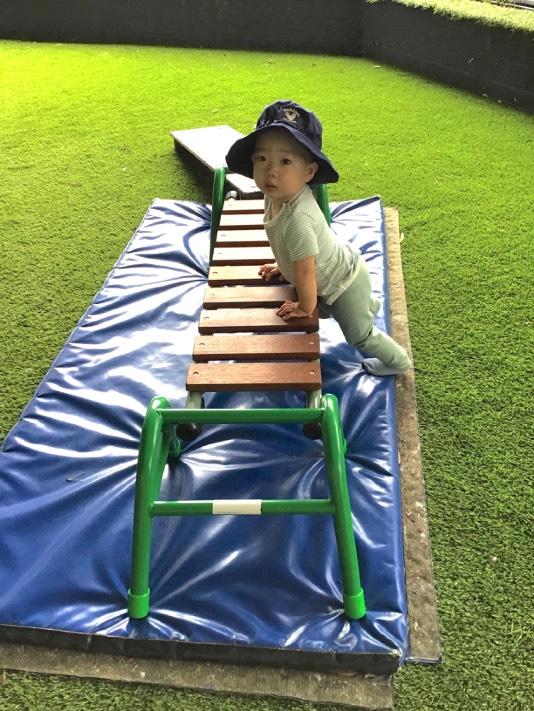
43
By Ms Laura Hudson
This week in the Nest, Stage 1 and 2 this week the children went on an expedition Under the Sea! At the beginning of the lesson the children practiced shaking the parachute, freezing skills, colour recognition, and singing skills. Jesse said the parachute looks like the waves in the sea. Lucas in Maddie’s class had a beautiful smile on his face the whole lesson.
Next, I handed out the “fishing rods” (ribbons) and asked the children to follow the various movements I did. We made a circle shape, a rainbow shape, and used the ribbon as a tail they all loved the ribbons and moved them beautifully. The children were good at packing away the ribbons and I said I have brought back Peter Rabbit (puppet) They loved it the last time I brought him in. Seeing their faces light up and their imagination switched on to think it was real!
For the final activity we listened to classical music using our hands and bodies to act as different sea creatures. They all wanted to tell me what their favourite was!
In Stage 3 and 4 the theme this week was The Toyshop and Mrs Smelly Cheese (using the idea of Toy story). We started on the parachute as usual and warmed our body up by doing the train. Well, done to Olivia in Stage 2/3 who did wonderful train arms.
The children began by moving around the space in different ways e.g. Like they were a train, a robot, and aeroplane etc and on the command ‘Freeze’ they had to stop as quick as they could. The first couple of rounds we used mime and then introduced sound building up to a sound scape. Next, I told the children that I would be someone else and use a head scarf to show I was someone else. I asked the children to think of their favourite toy and to show their toy through their stance as well as portray any sound it may have. They were going to be this toy on the toy shelf.
Next, I told the children that the key we had found last week opened the door to a shop. Let’s go and see who’s shop it is? Transform into a lady called Mrs Smelly Cheese. Mrs Smelly Cheese owns a toyshop that is famous for all its magnificent toys (I asked the children to turn into a toy and show me what it looks like on the toy shelf) Every time Mrs Smelly Cheese leaves the shop (hides in a corner or turns her back on the children so she can’t see them) All the toys make as much noise as they can and move like their toy! But when Mrs Smelly Cheese returns all the toys must freeze and trick her. Because while she has had her back turned Mrs Smelly Cheese’s toys have been up to mischief! Like Red light, green light!
The children practised a couple of times, so they got into the routine of moving and being noisy and freezing. I then used a scarf to transform myself into Miss Smelly Cheese.
Drama
REDDAM EARLY LEARNING SCHOOL | ST LEONARDS NEWSLETTER 44
Each time I left and came back I acted surprised at the toys being in different positions. I pretended I had left a door open, and the wind had blown the toys across the shop, I also pretended they were running out of batteries. Lastly on her return I told them “I have terrific news the lady I have been talking about has decided to buy all of the toys (but the ones I am playing with are my favourites and I’d never sell them). I am going to the bakery to get a chocolate cake to celebrate”. On my return I described the cake to the children and then suddenly Miss Smelly Cheese remembers she’s forgotten the candles, plates, forks, and napkins. She leaves the cake in the middle of the room “I wonder if my toys will eat my chocolate cake”? she says. Yes, I’m sure you can guess what happened next.
On the next arrival Miss Smelly Cheese notices the cake had disappeared and the toys have chocolate all over their faces, on their noses, lips, behind their ears in their hair on their stomachs etc. She then wipes up the mess and throws the napkins away. This will be the last time she leaves the room and tells the children to be as loud as they can!
When Miss Smelly Cheese comes back, she tells the children that she think’s they’ve been making lots of noise while she’s been gone and is going to test them by asking them if they think ‘Mrs Smelly cheese is completely bananas if so, it means she will have to close her shop!’ the children all shout out “yes Mrs smelly cheese” and then she pretends to cry but say’s “oh well it’s not so bad, at least I get to play with my favourite toys”!
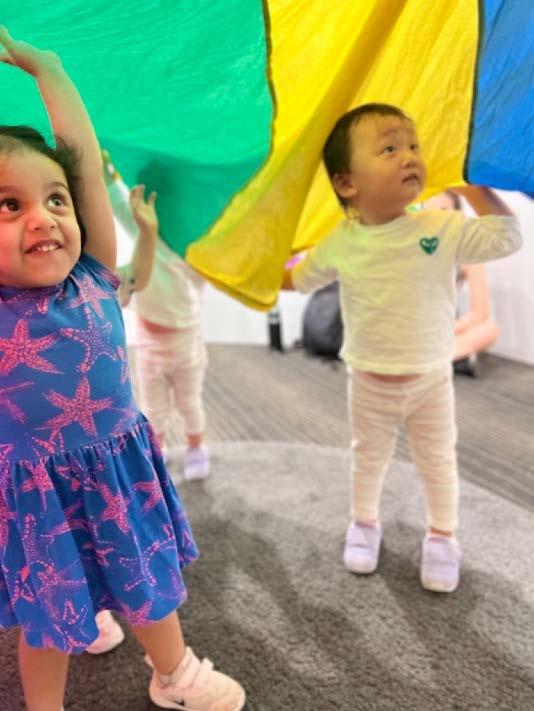
Well done Everyone another wonderful term of drama!
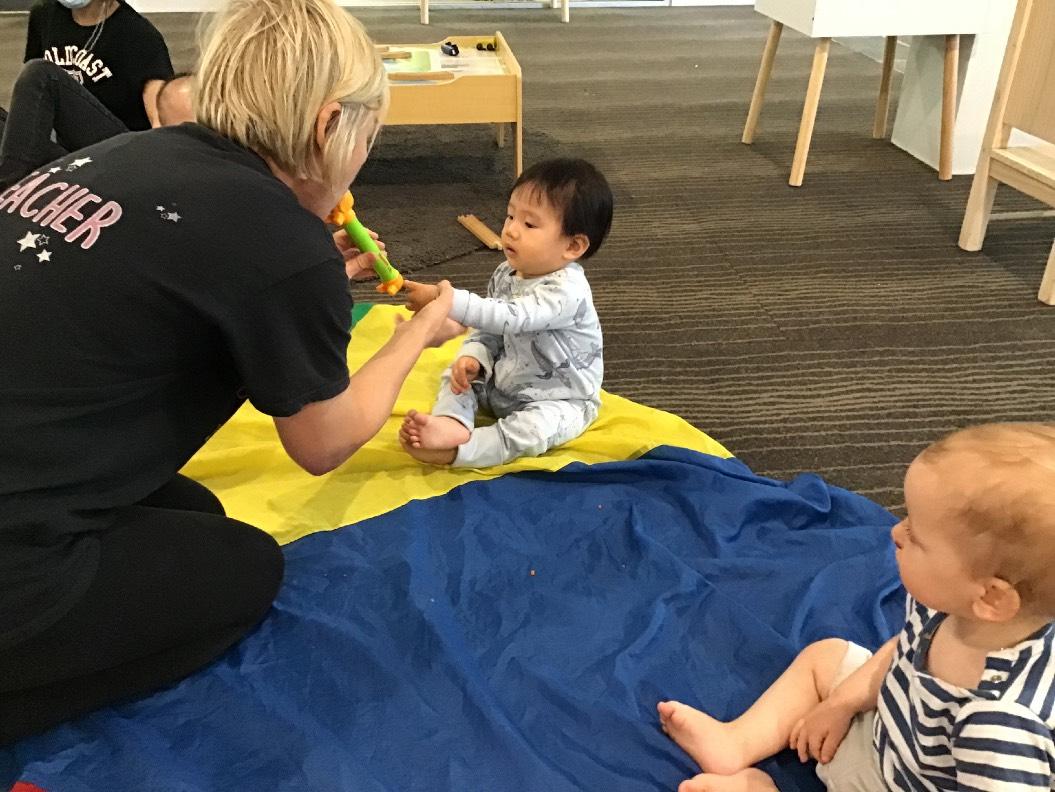
45 Drama
Piano
By Mr Alan Tang
This week was the first week of piano lessons. We welcomed all the faces that have joined Reddam this year. We had many excited children who discovered or rediscovered the joy of playing the piano. Stage Baby, 1 and 2 were entertained with a number of nursery rhymes alongside with some piano classics such as "Fur Elise" and "Turkish March".
Stage 3 and 4 were introduced with the fundamentals of the piano keys pattern. Identifying the key names for C, D and E with an interactive printed out pattern chart, it increased the exposure for children who do not have a keyboard at home. It encourages children for future music learning since it will become a new "normal" for their upbringing. Next week, we will learn how to play "Middle C".
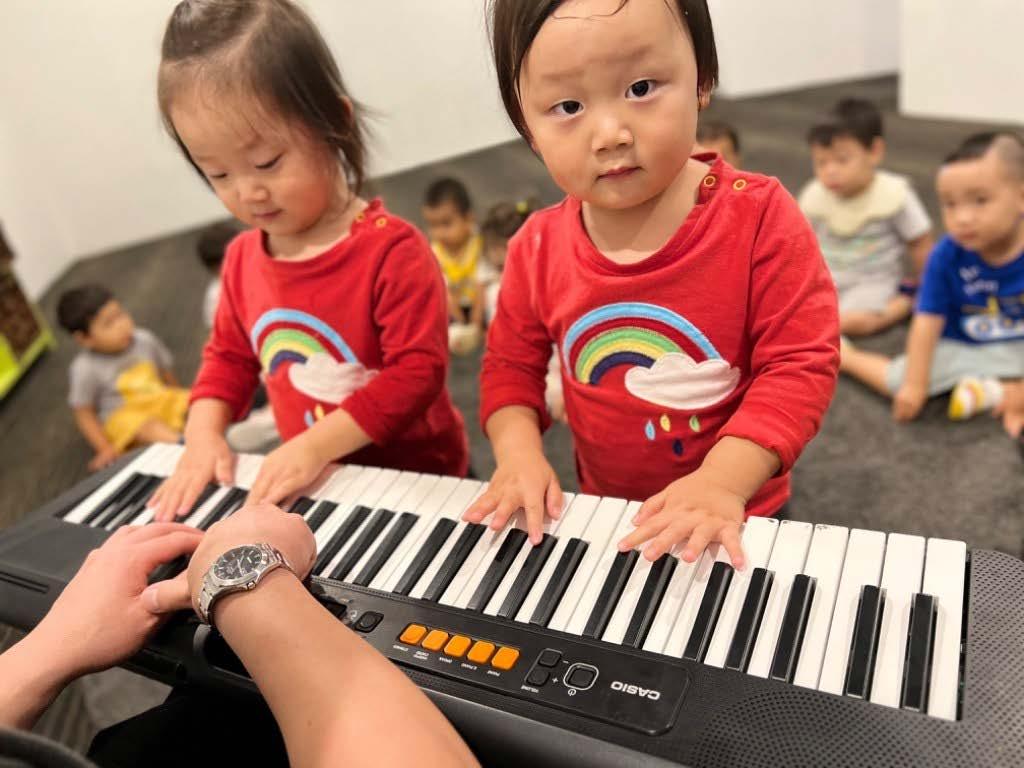
REDDAM EARLY LEARNING SCHOOL | ST LEONARDS NEWSLETTER 46
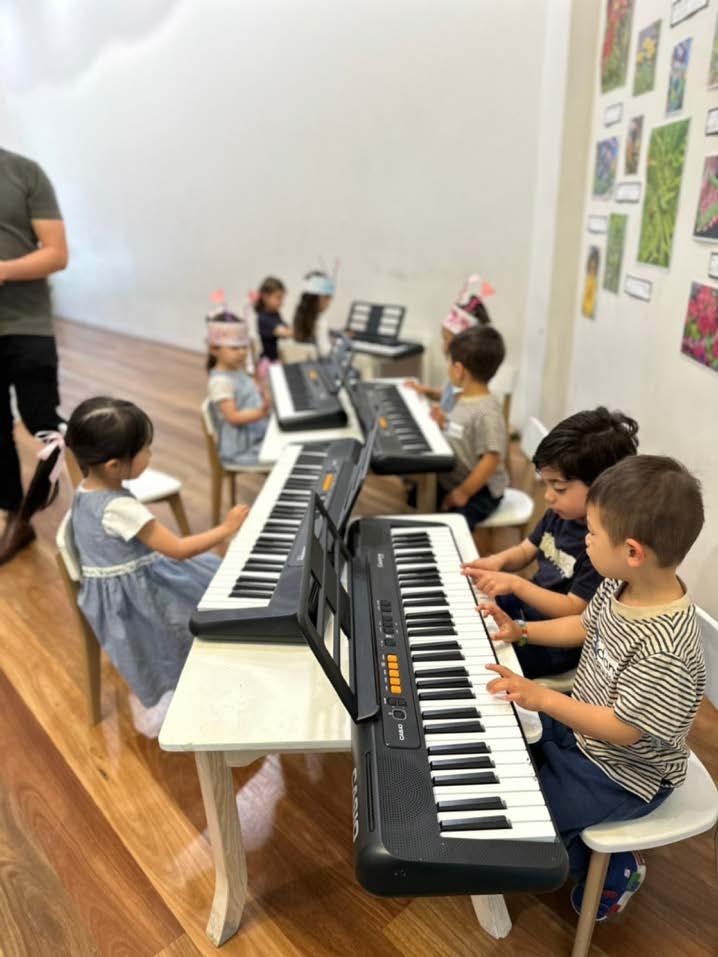
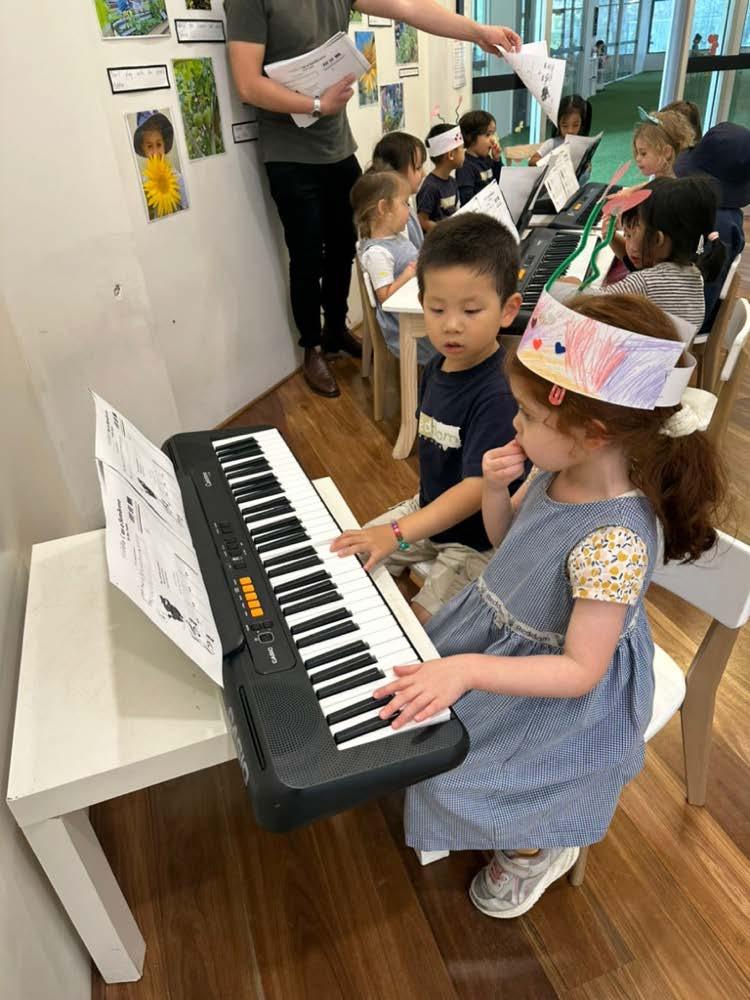
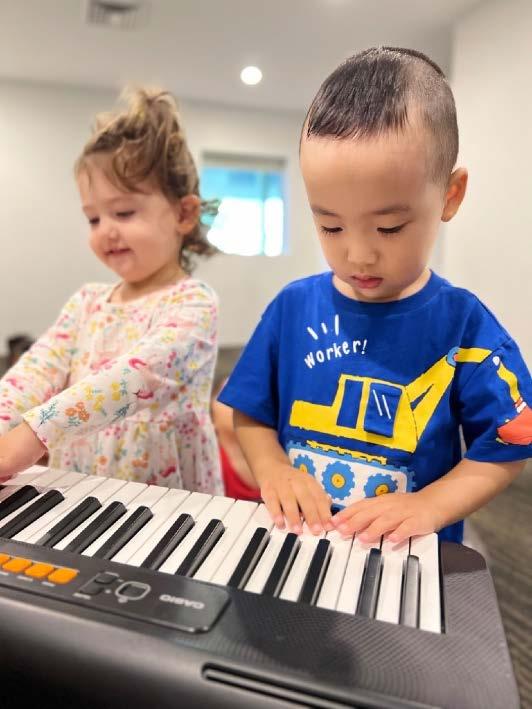
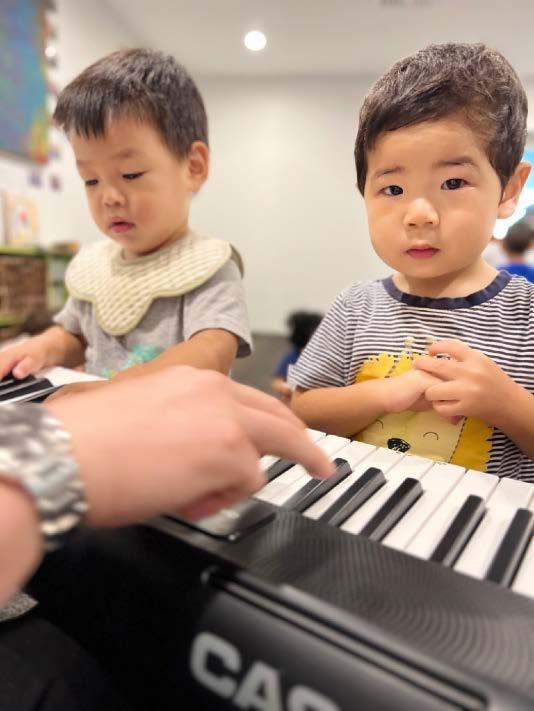
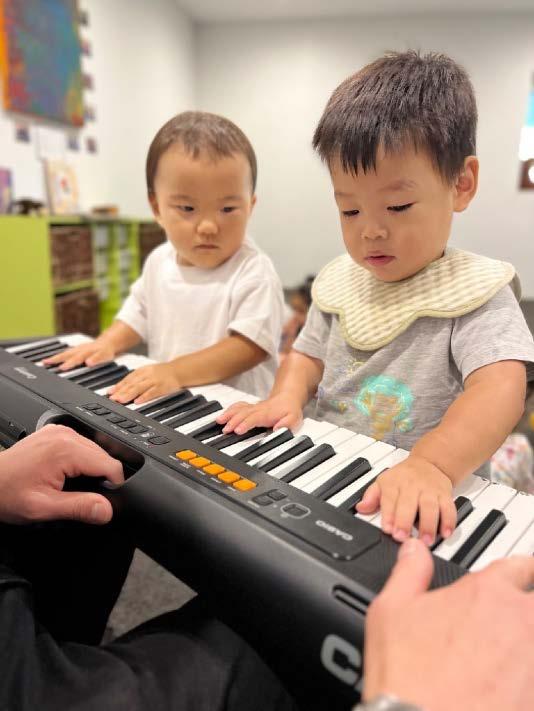
REDDAM EARLY LEARNING SCHOOL 47
Piano
My Gym

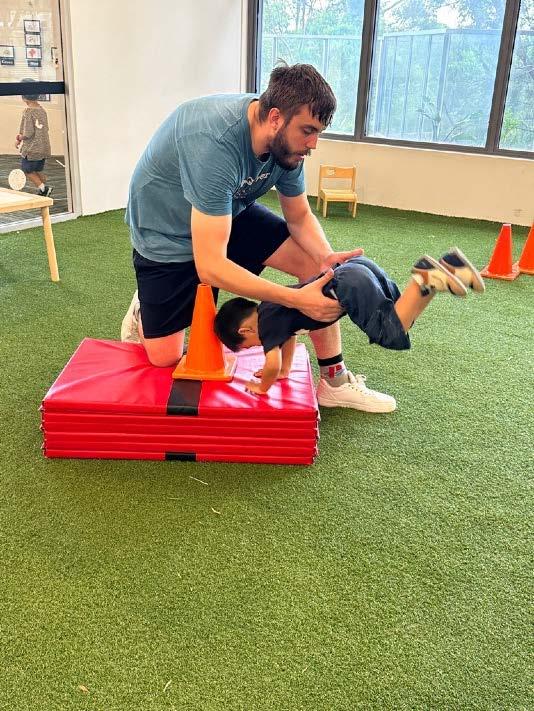
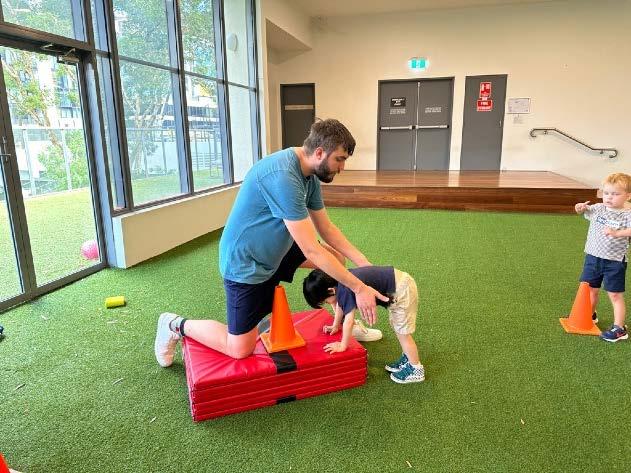
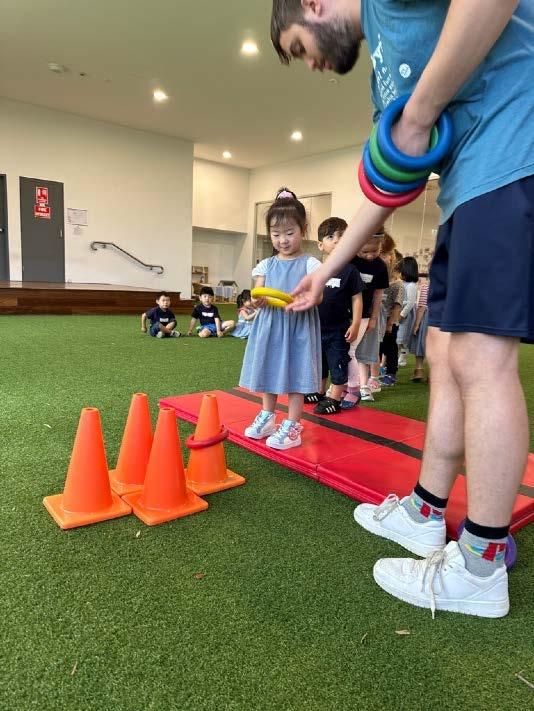
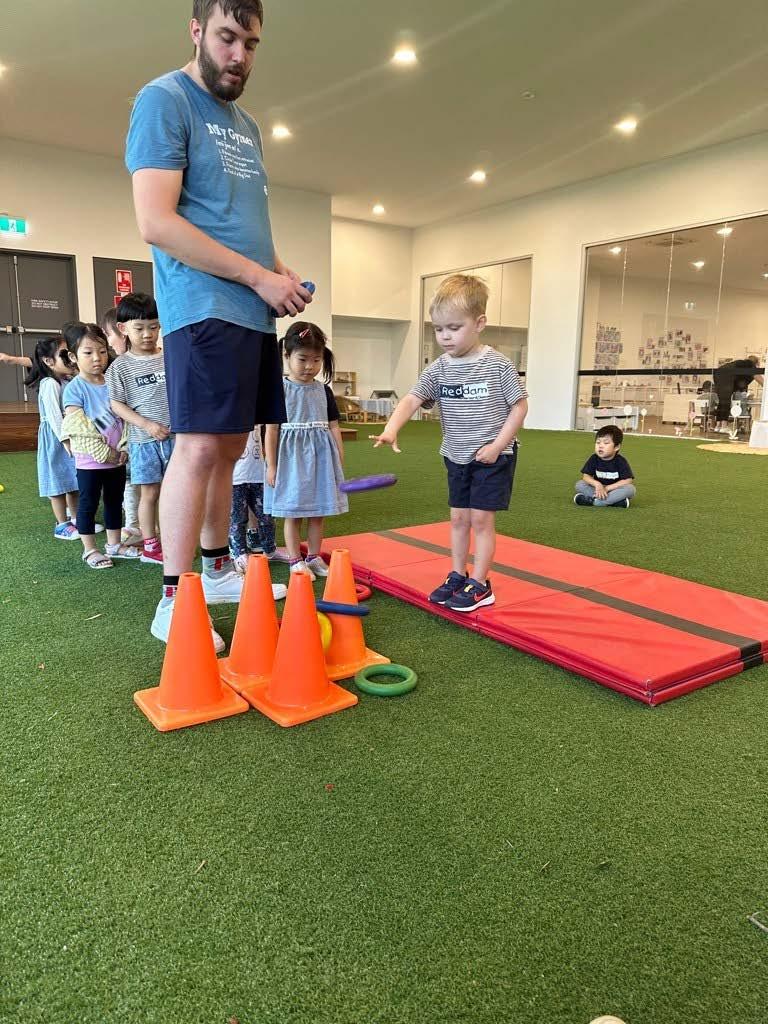
REDDAM EARLY LEARNING SCHOOL | ST LEONARDS NEWSLETTER 48
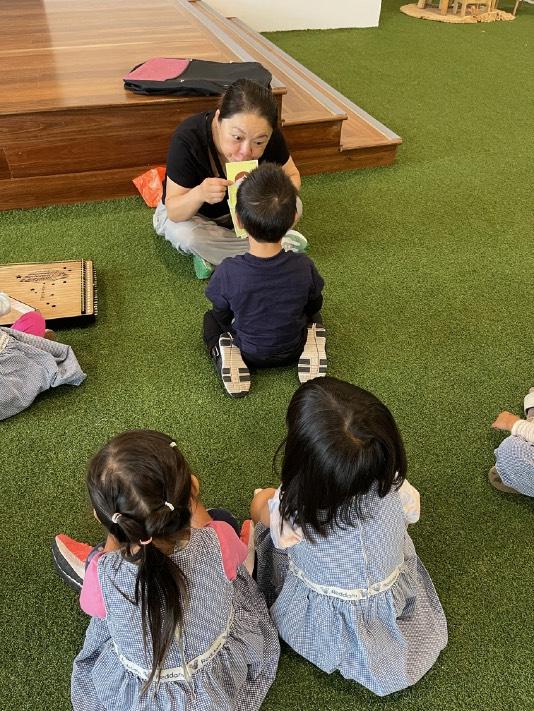
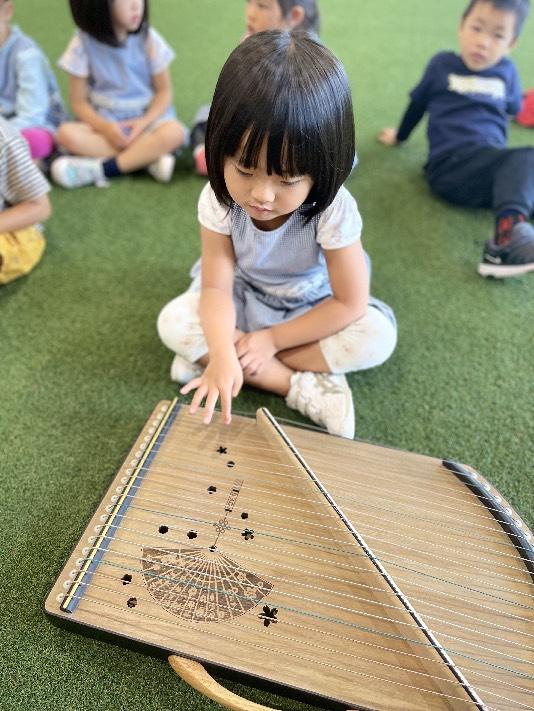
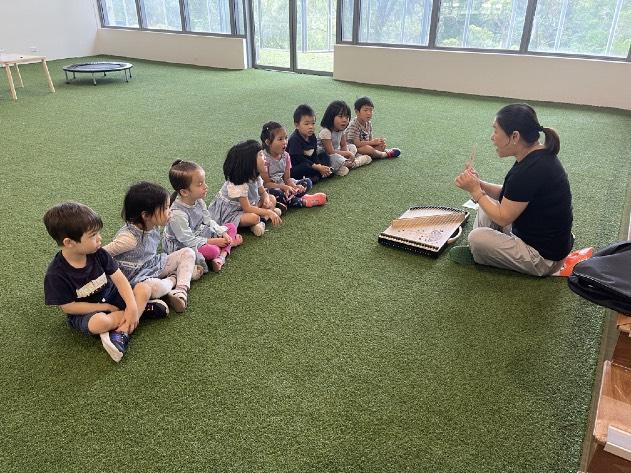
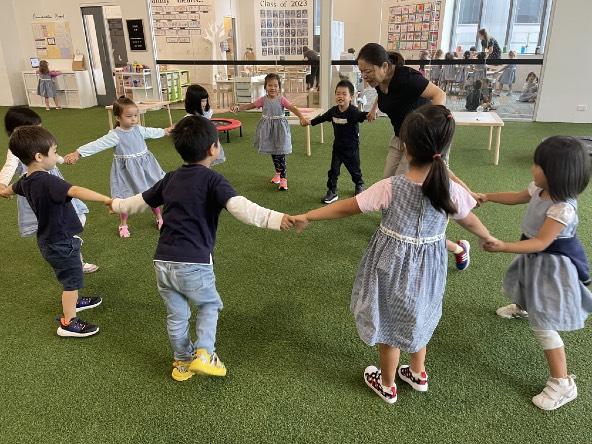
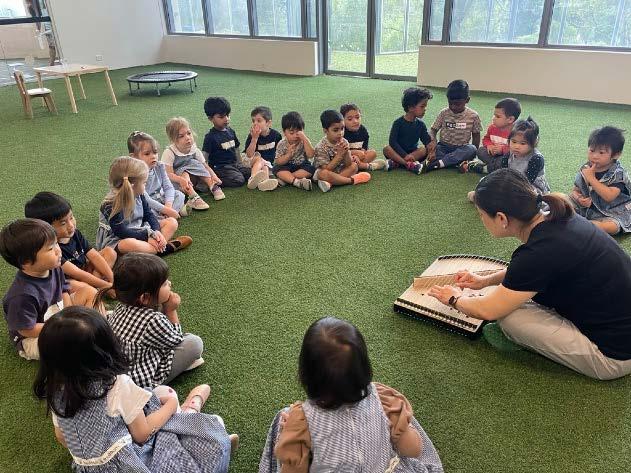
REDDAM EARLY LEARNING SCHOOL | ST LEONARDS NEWSLETTER 49 Mandarin














































































































































